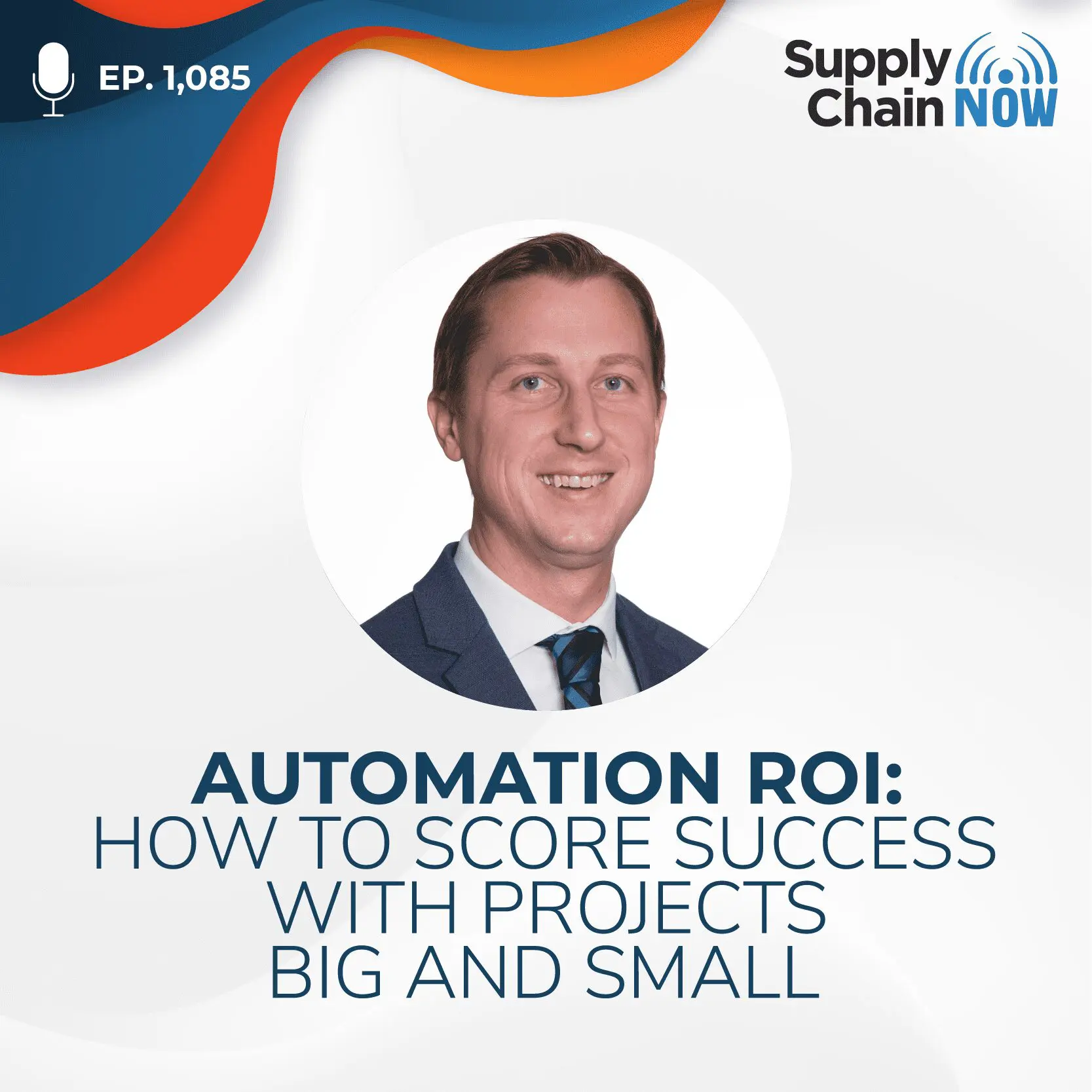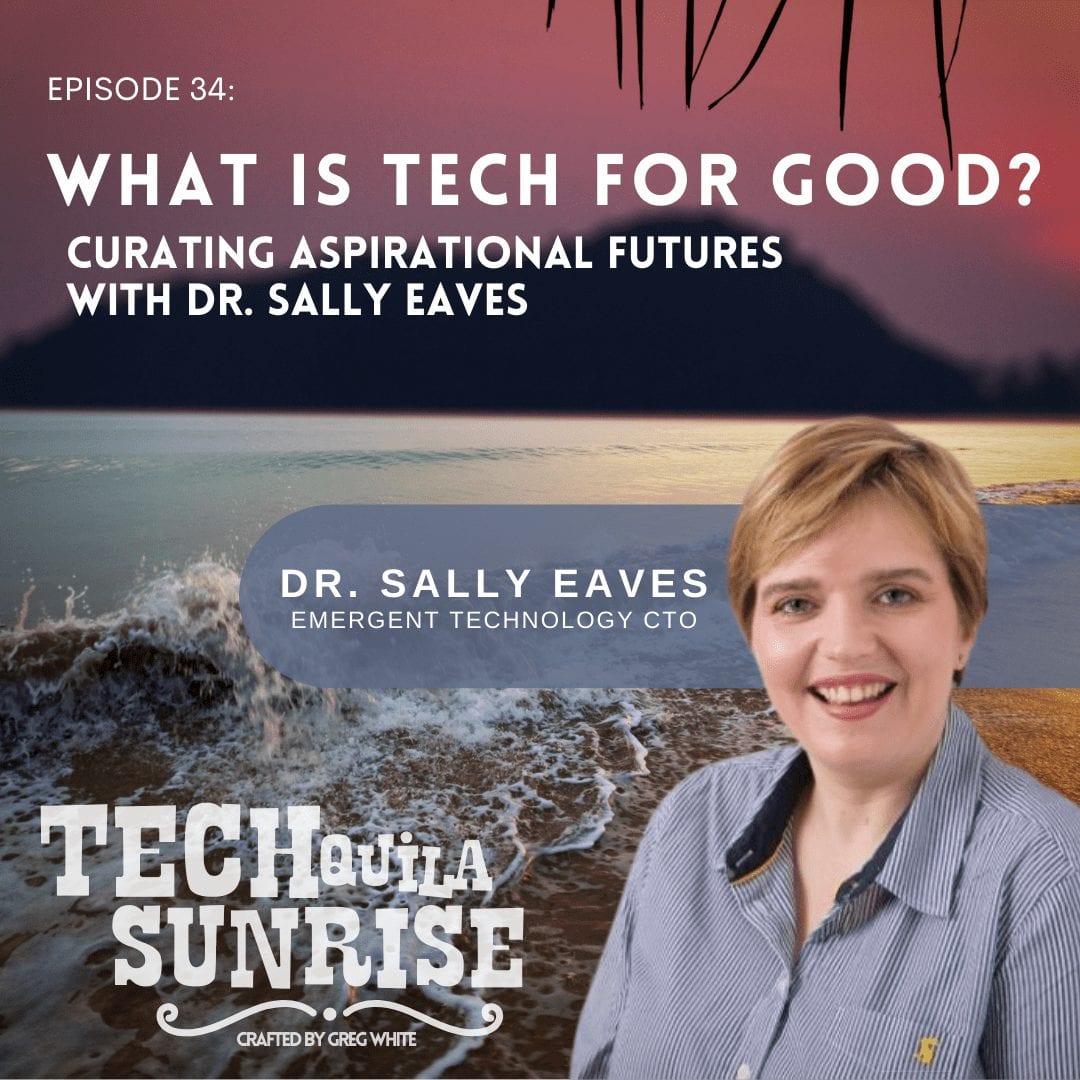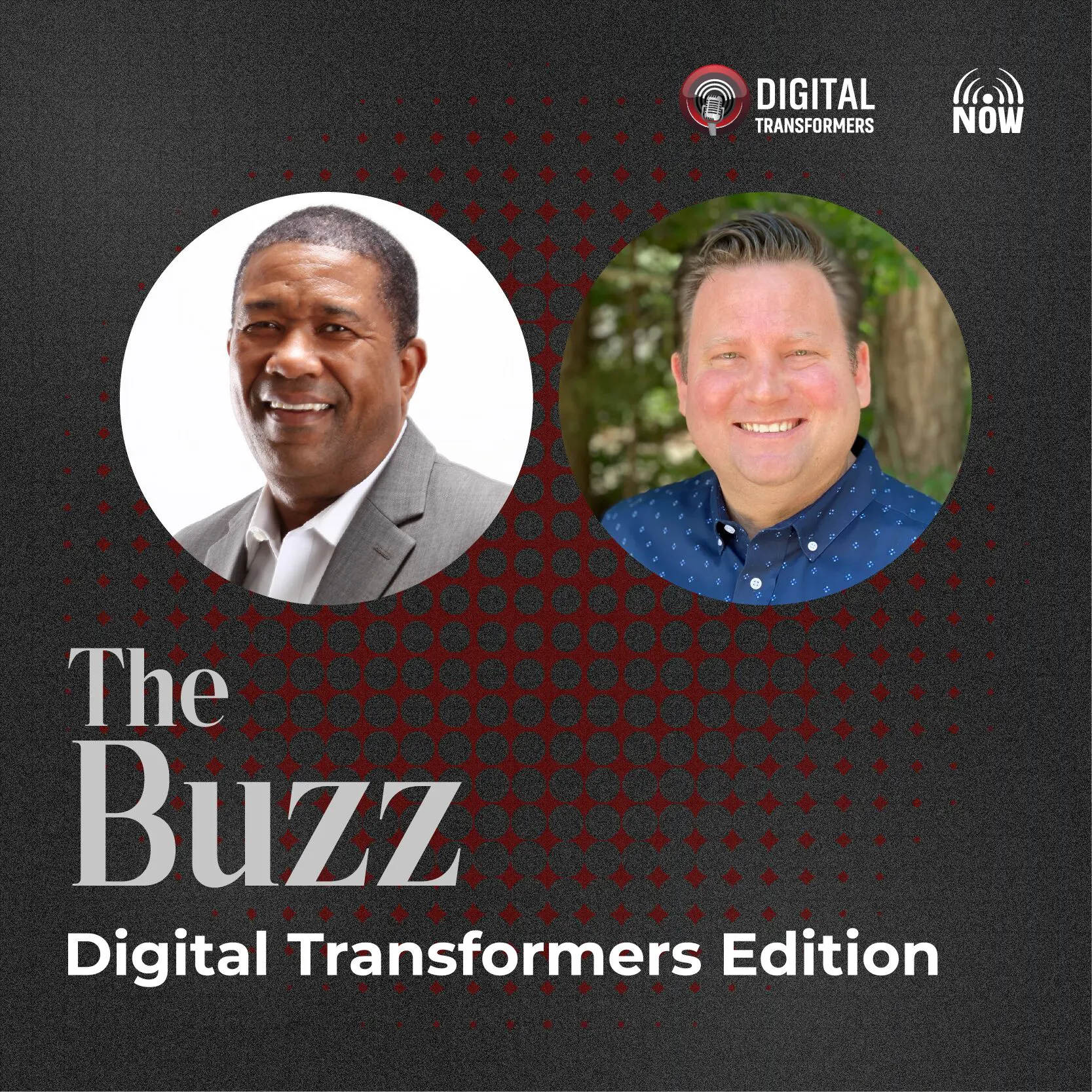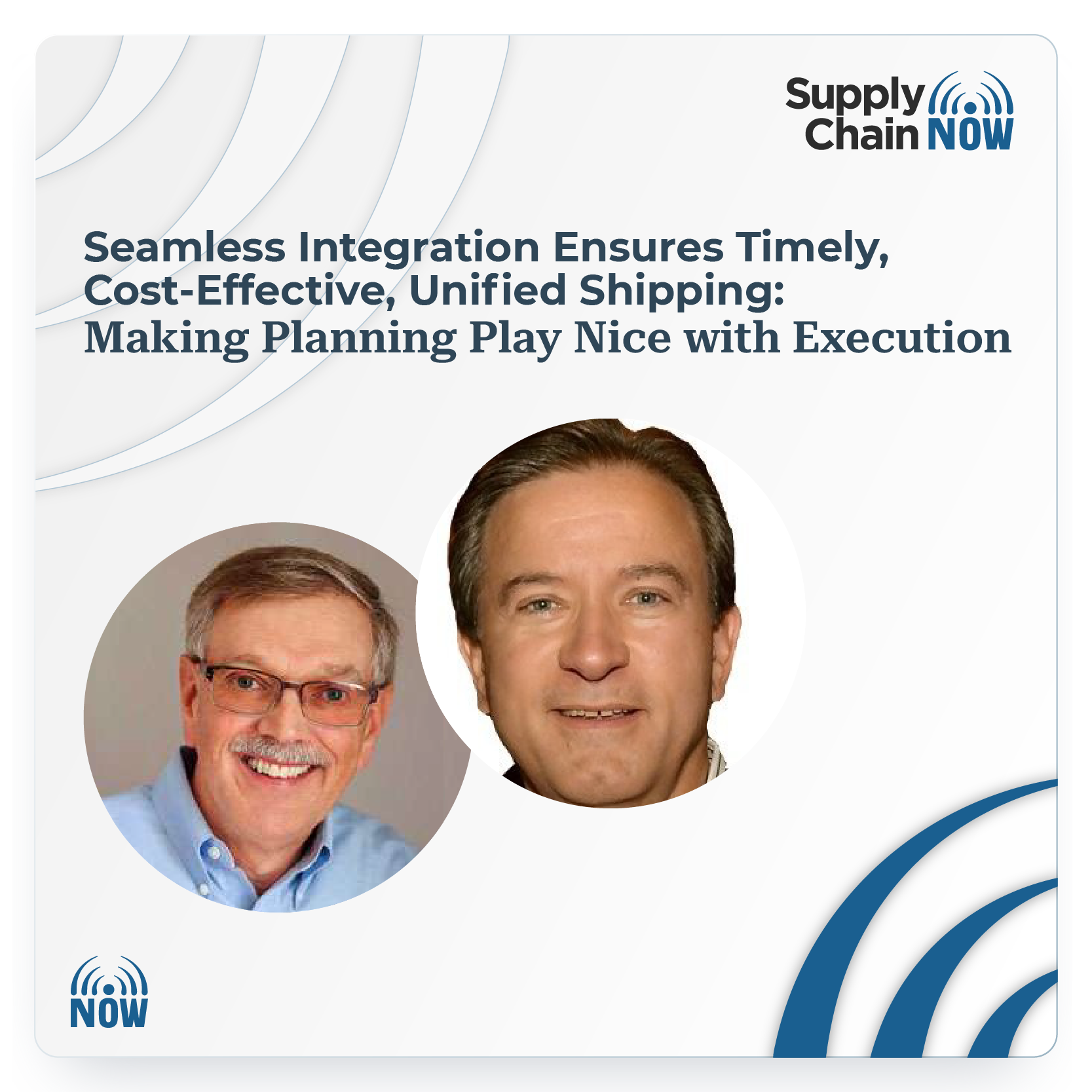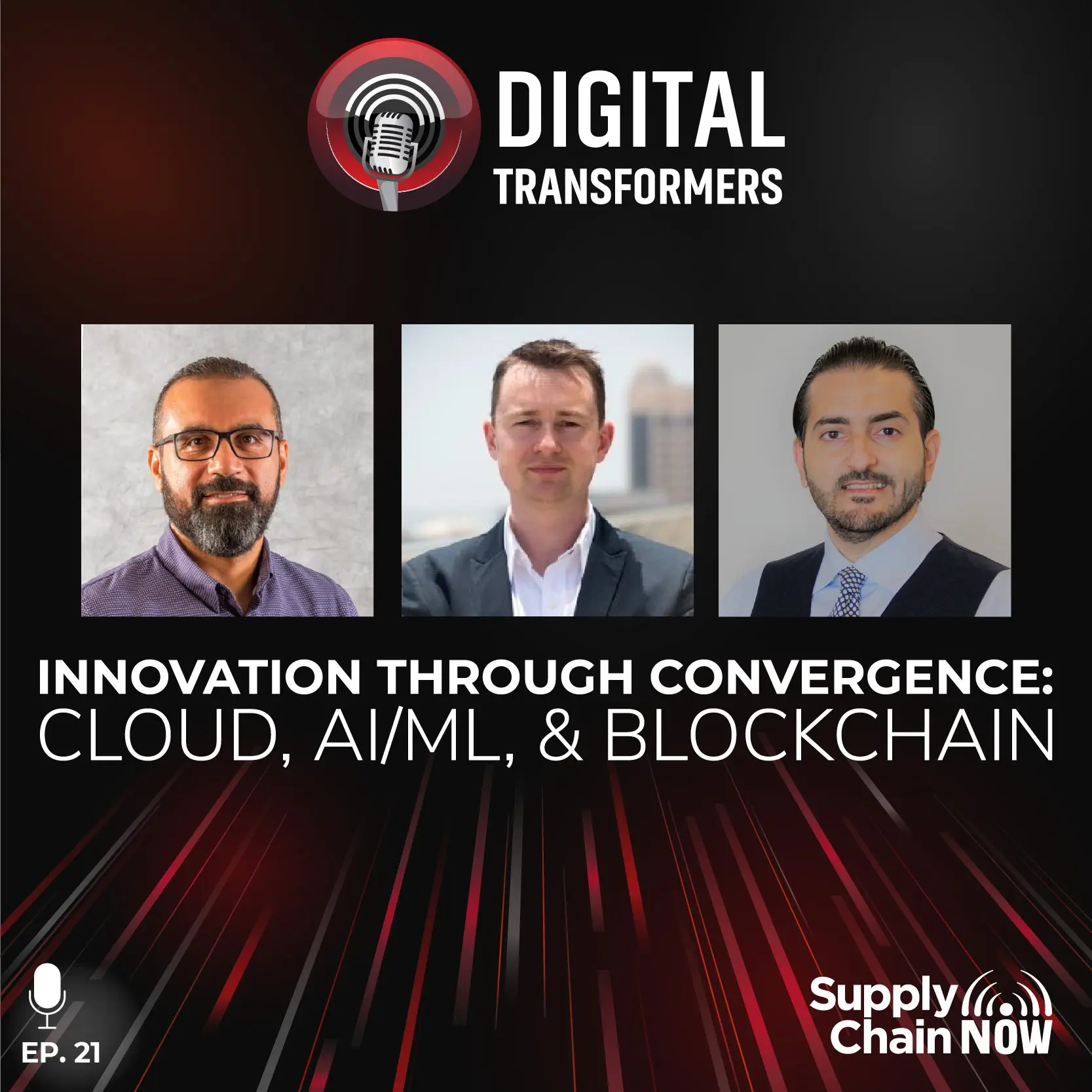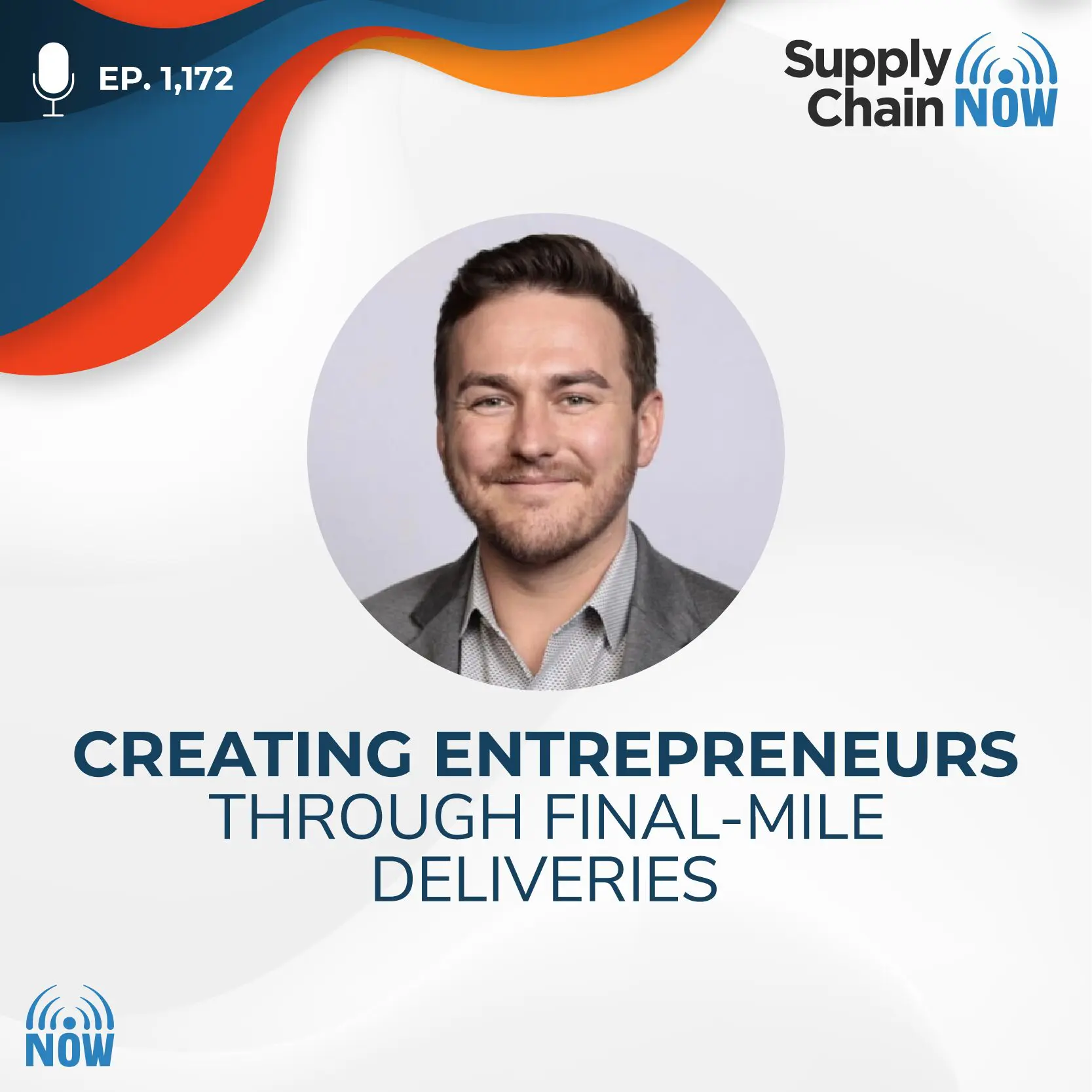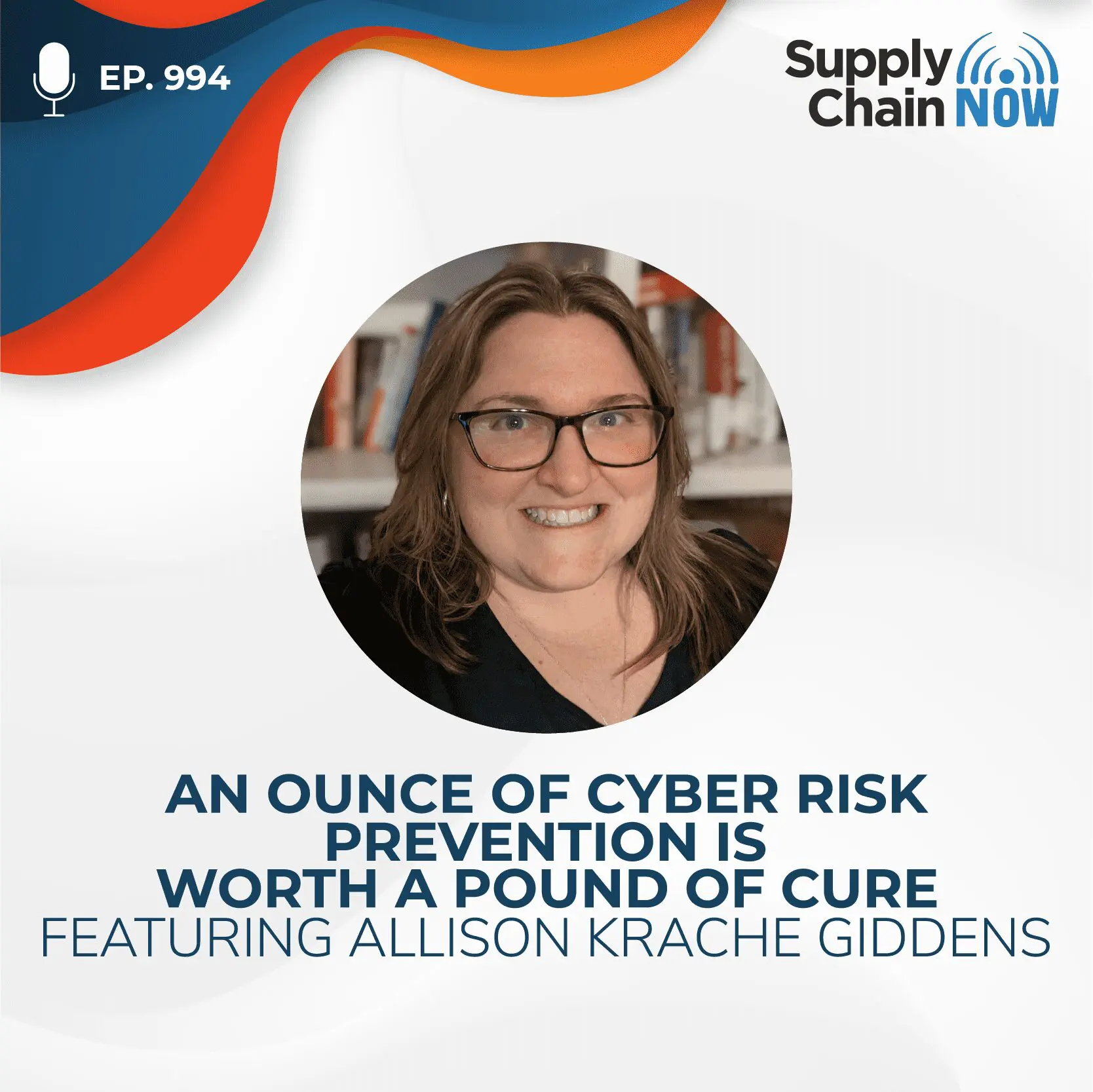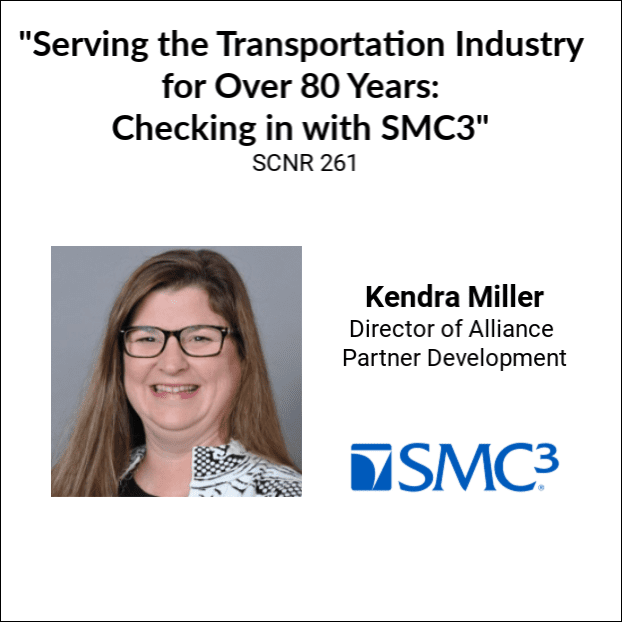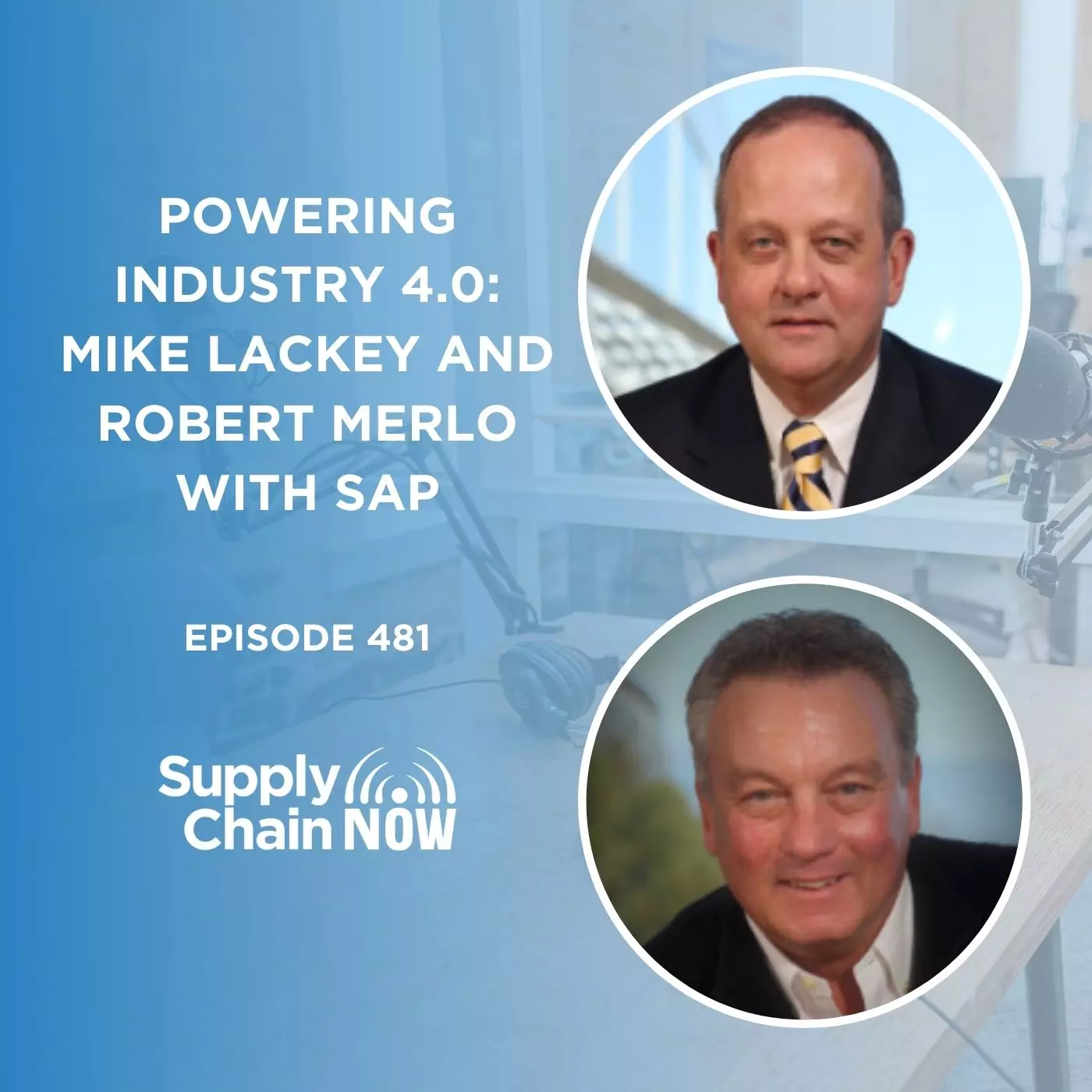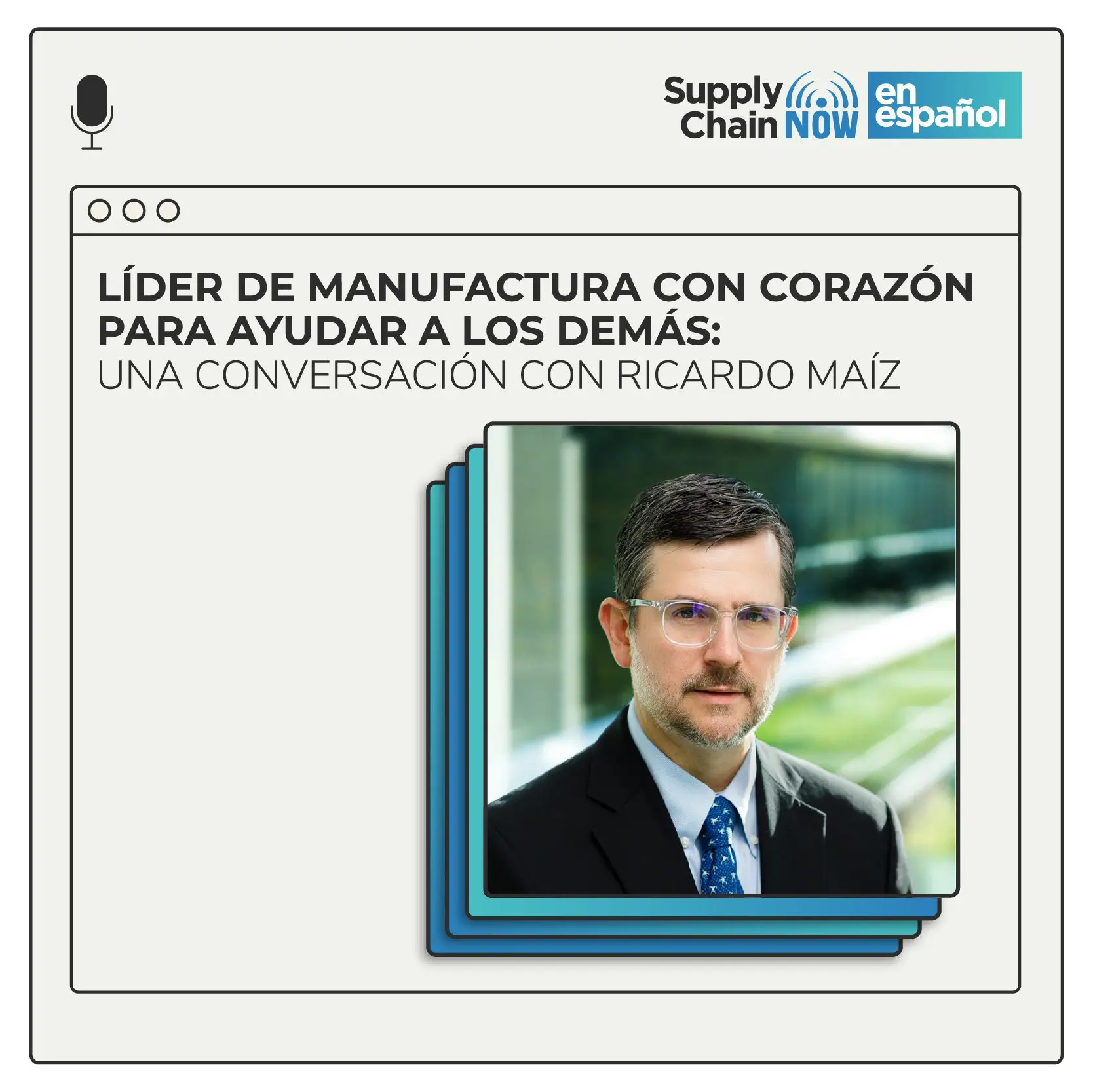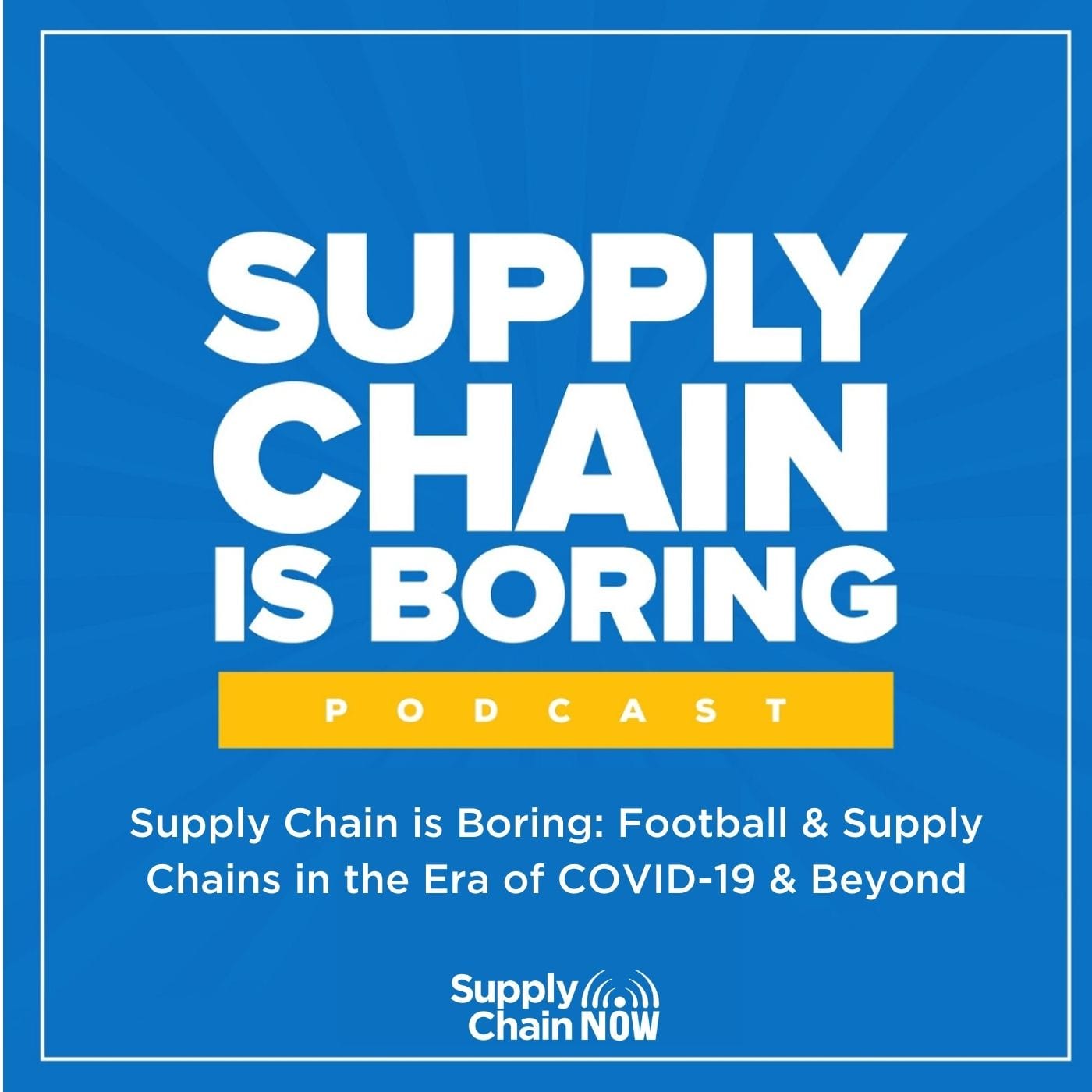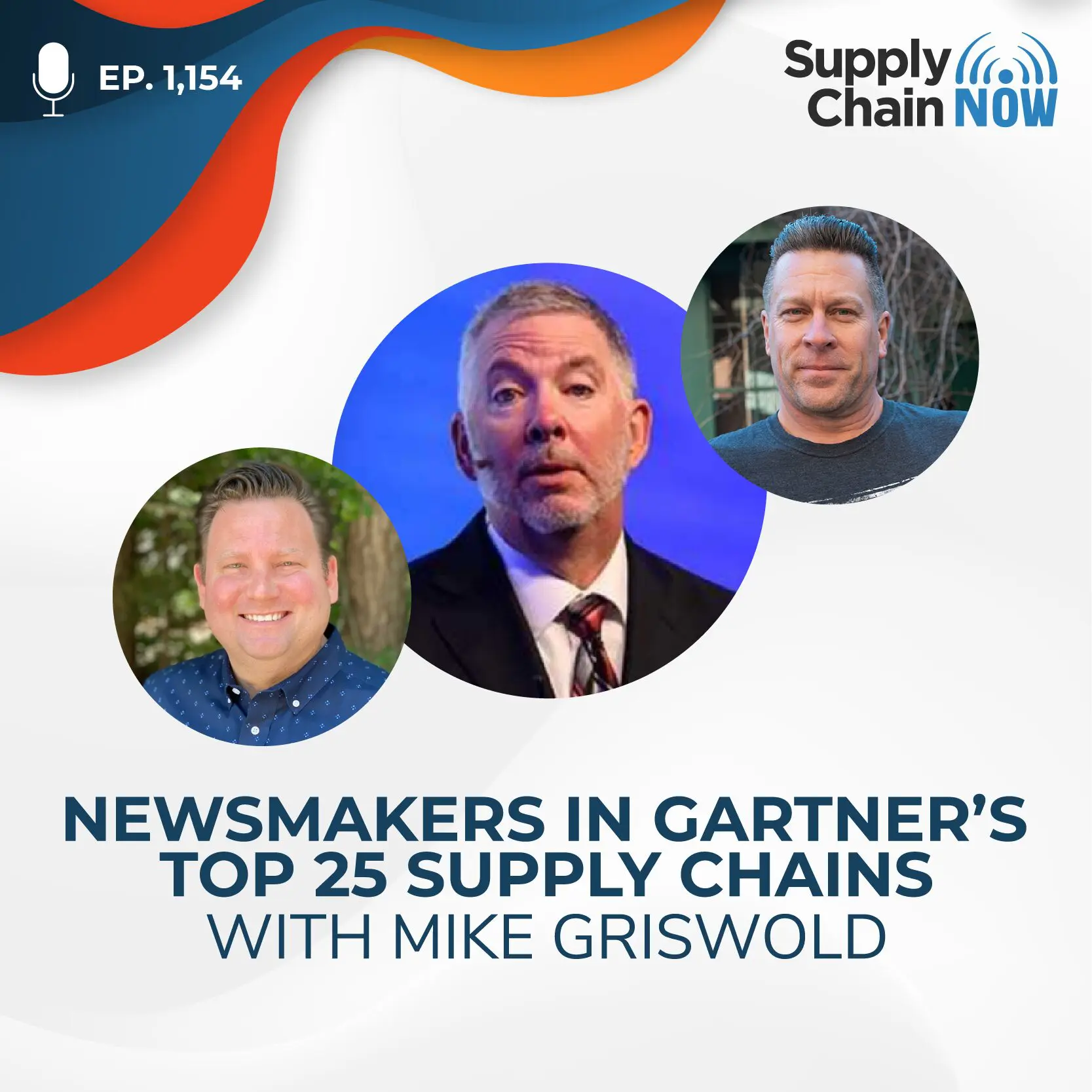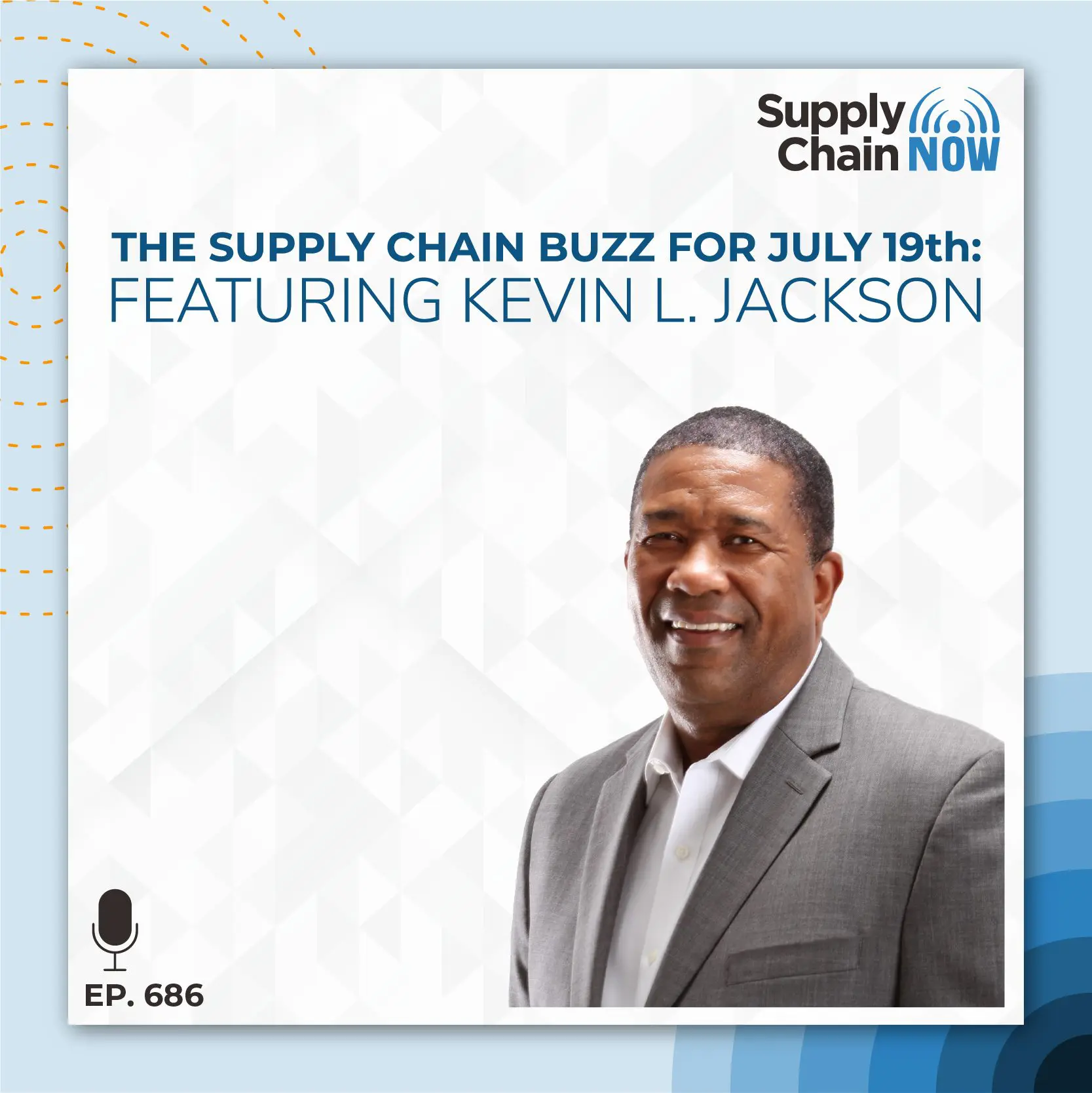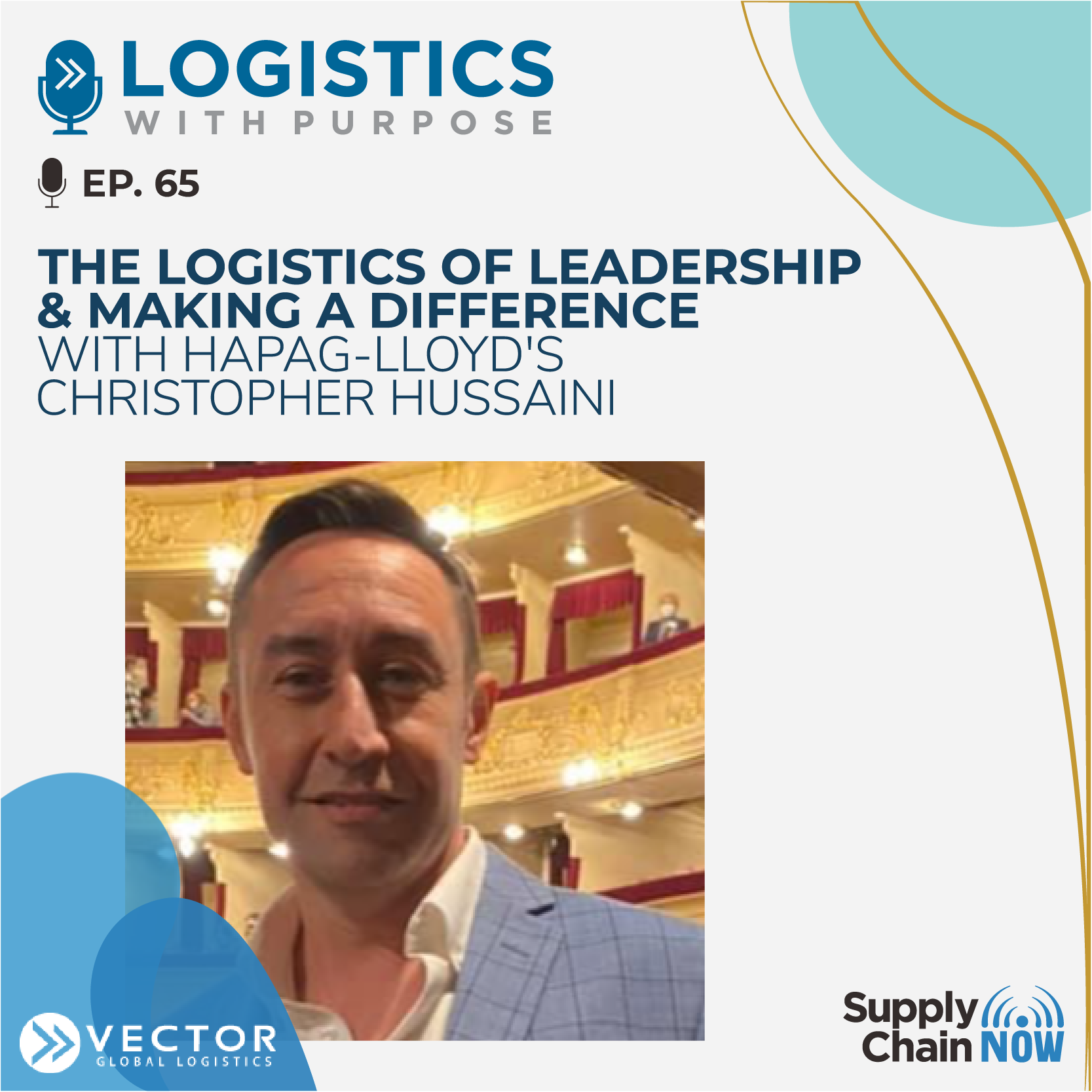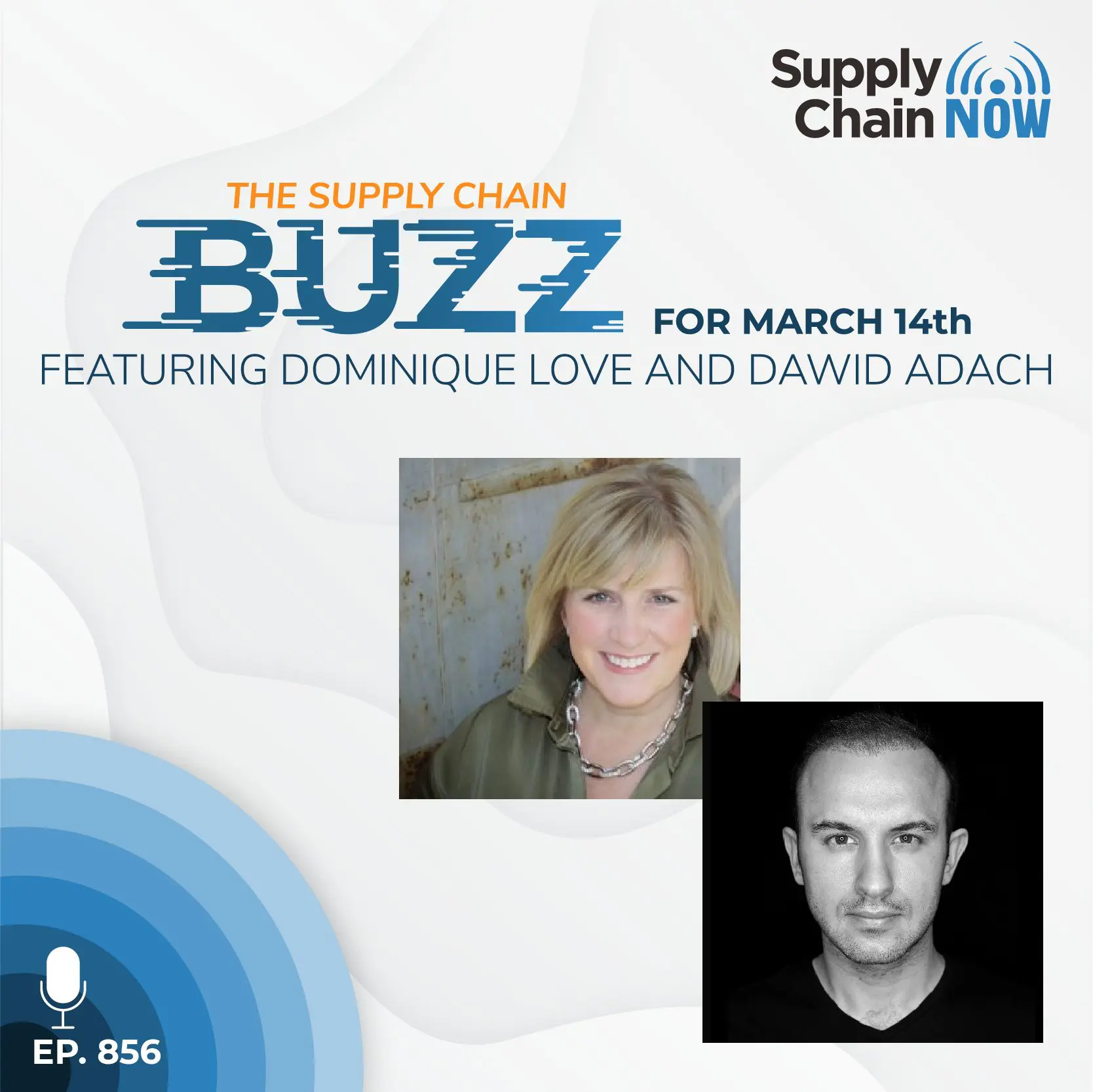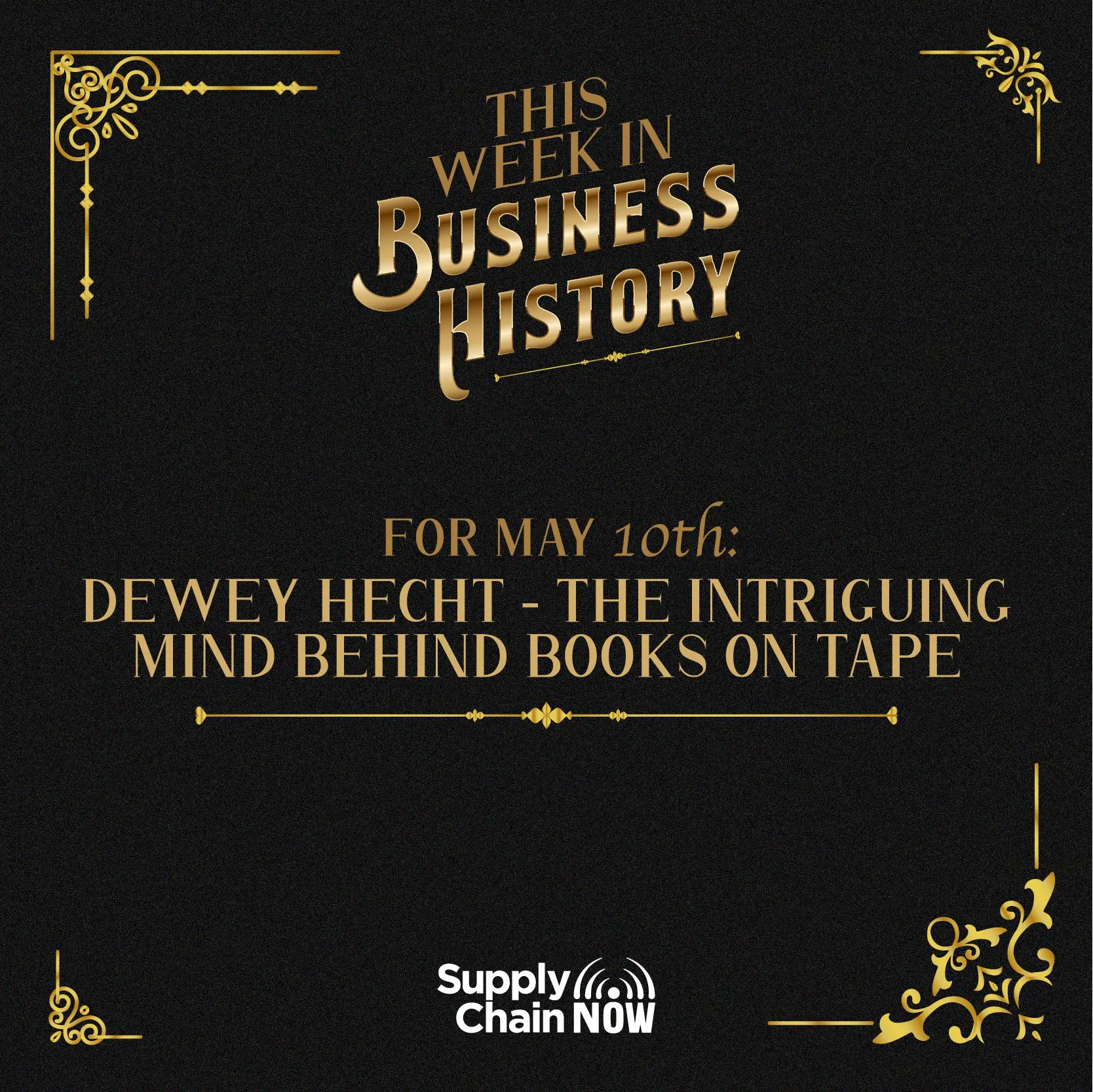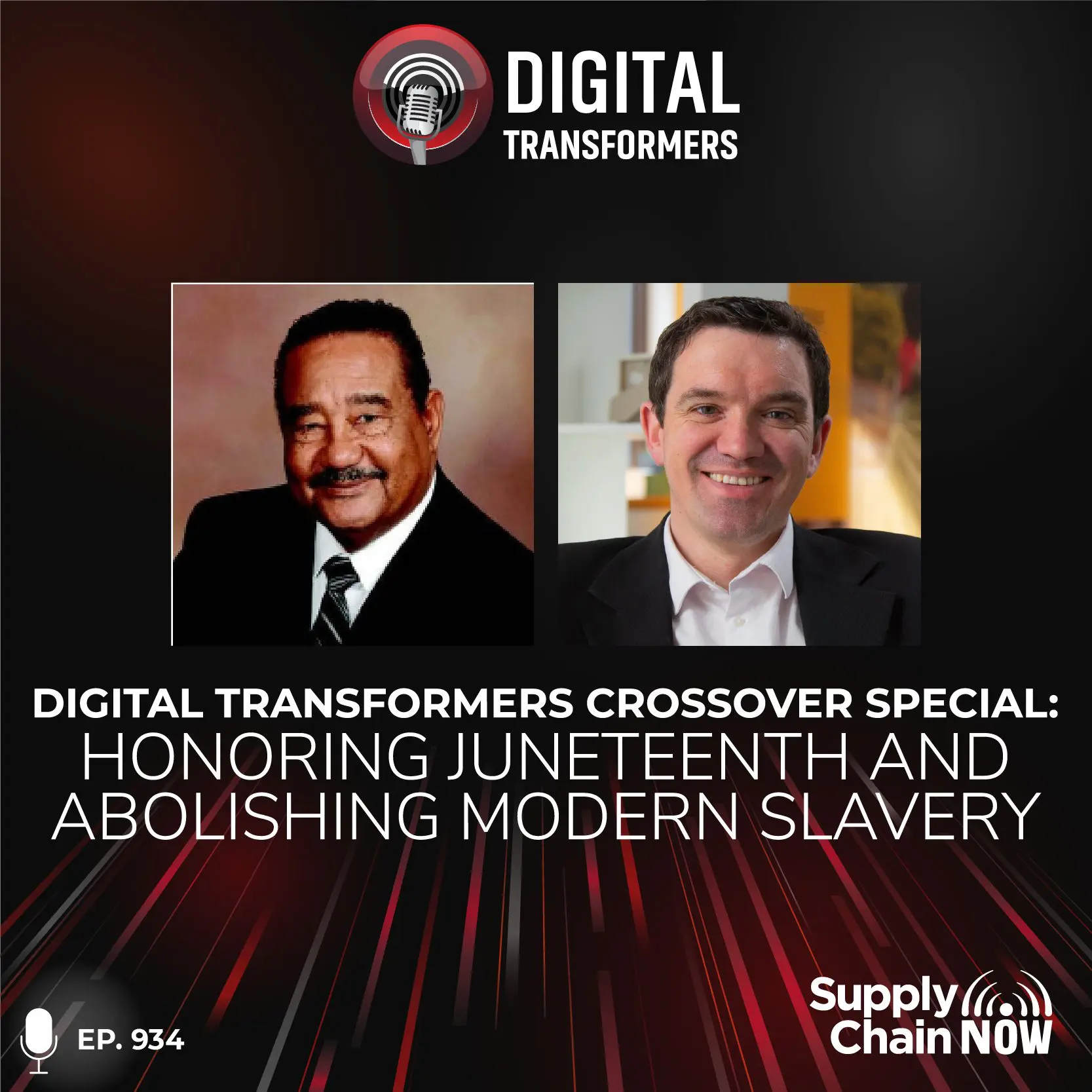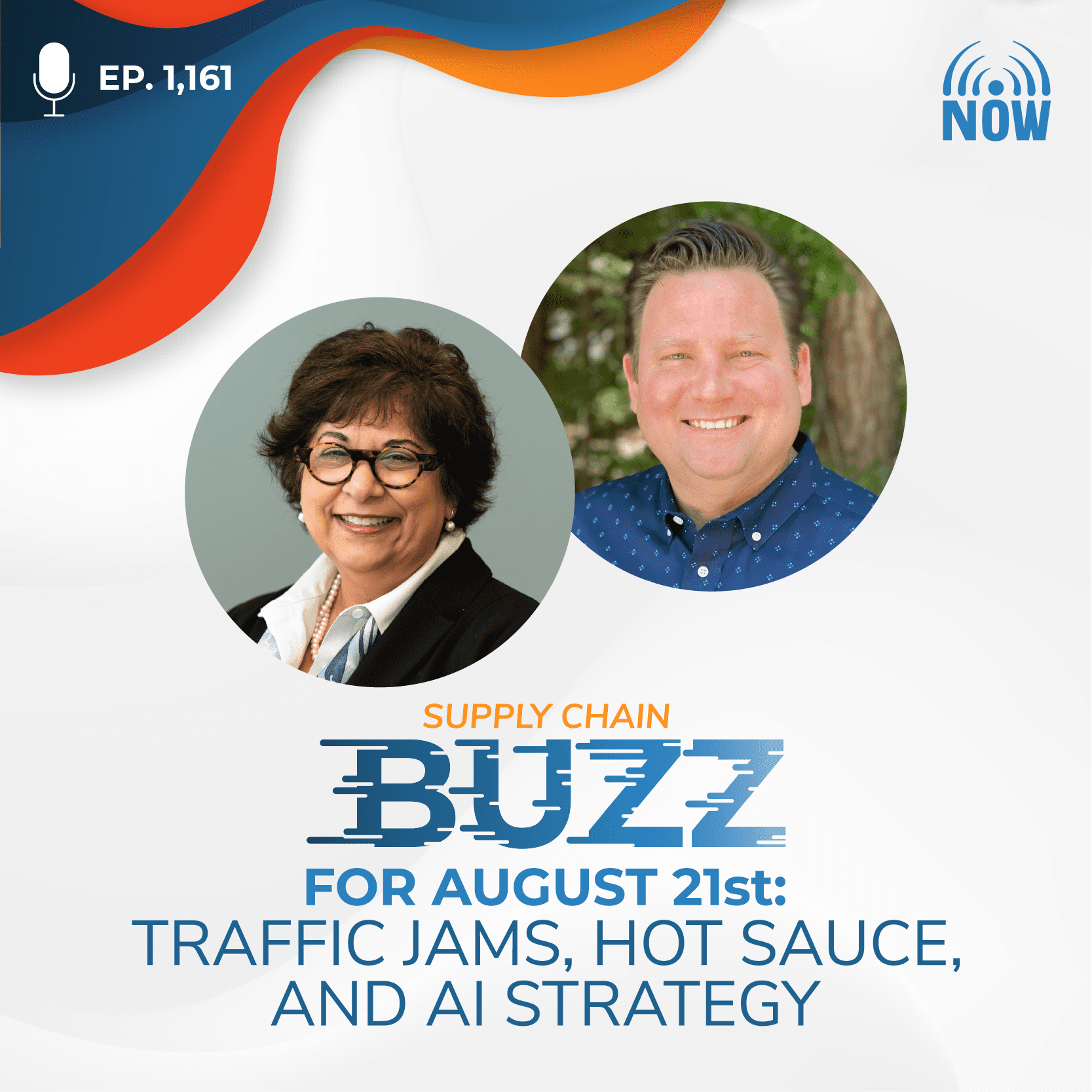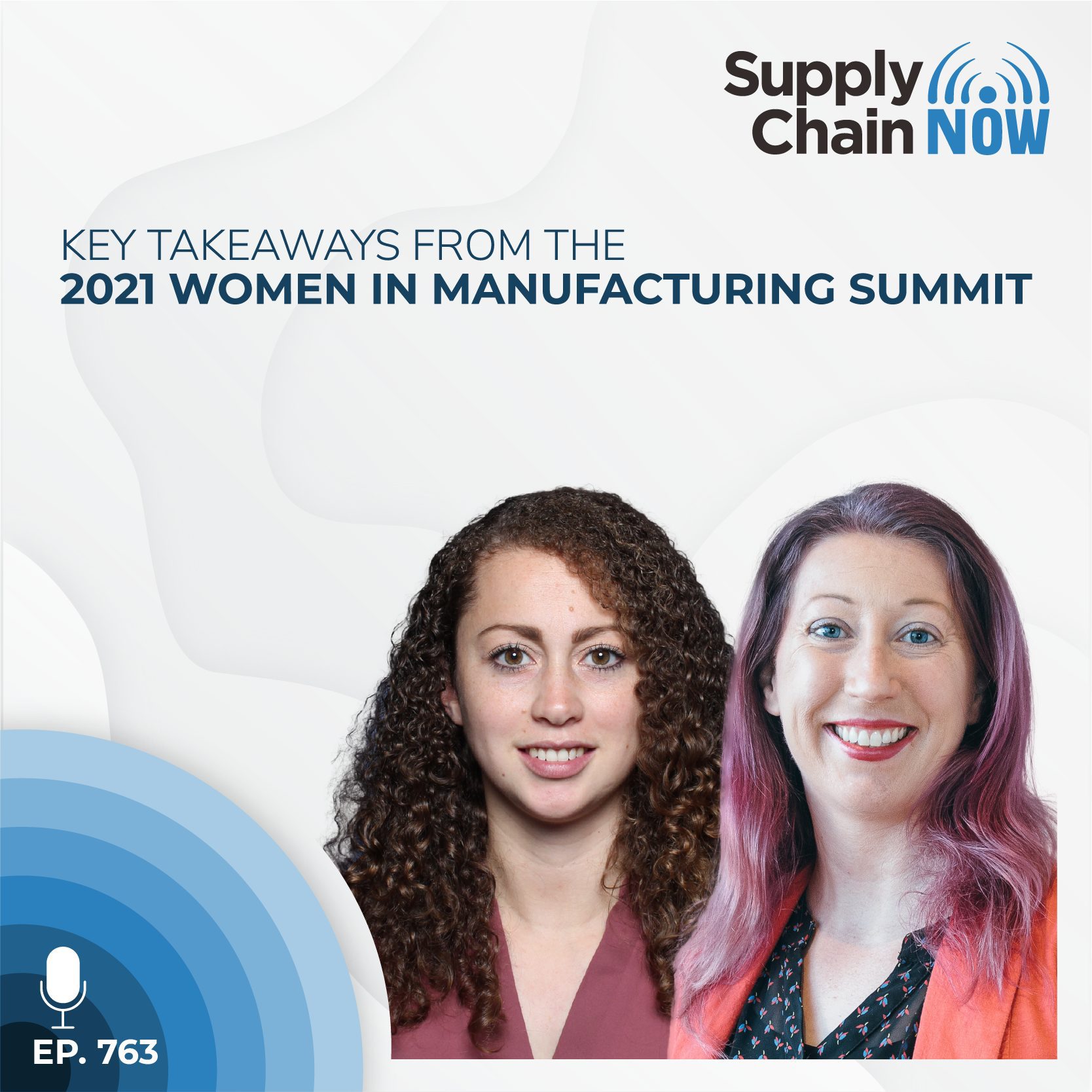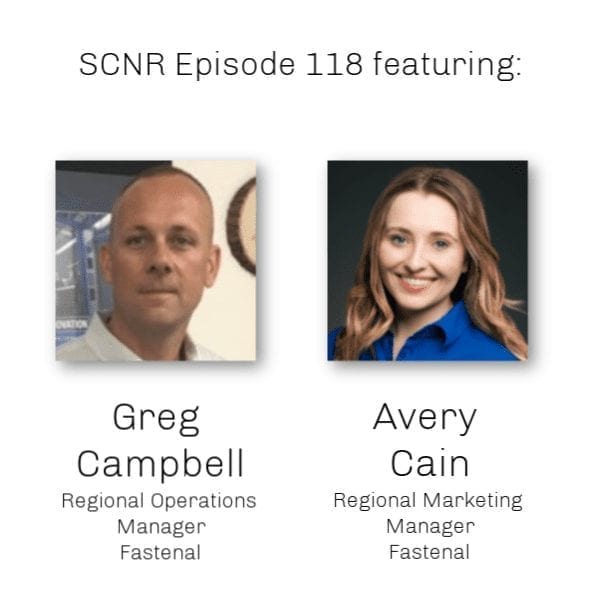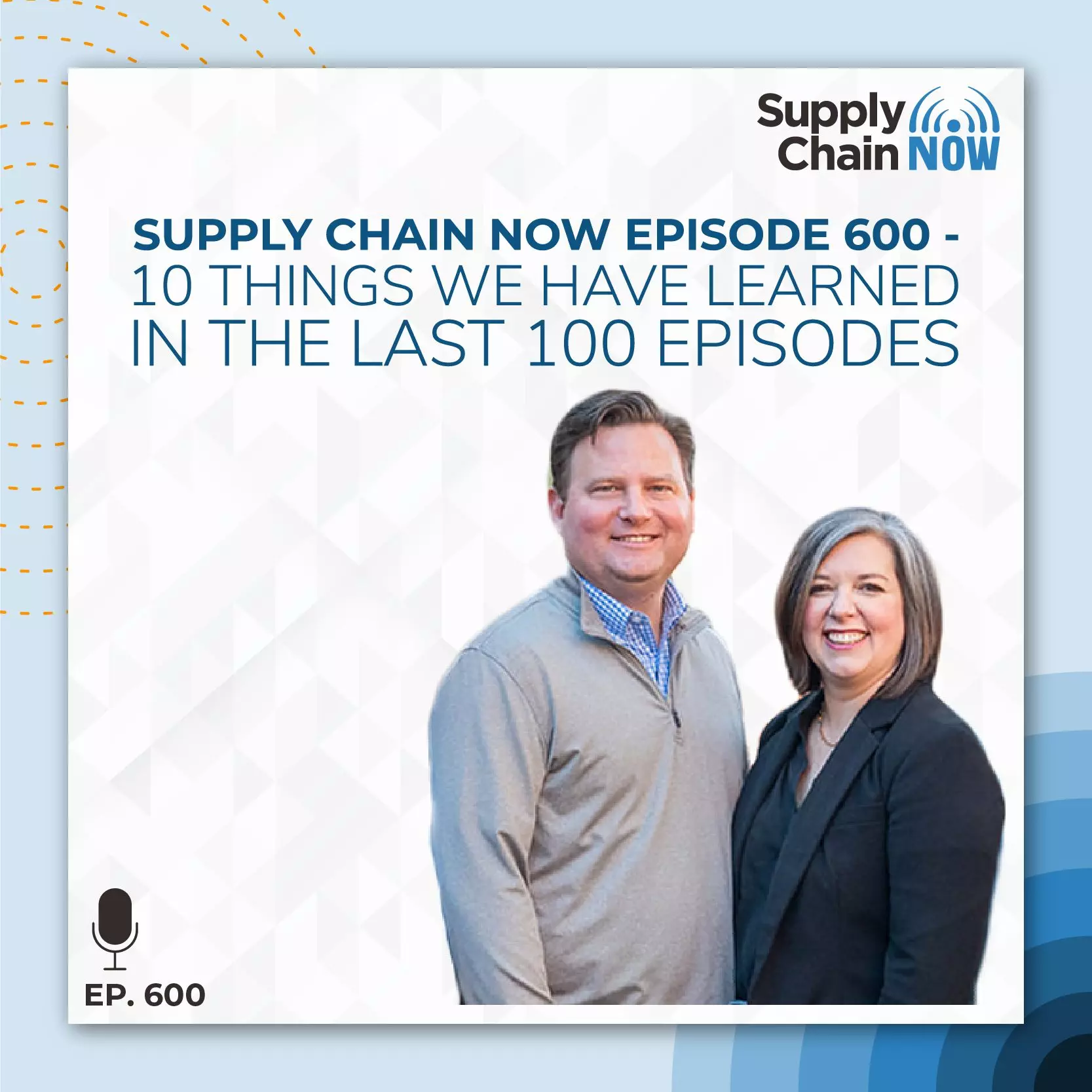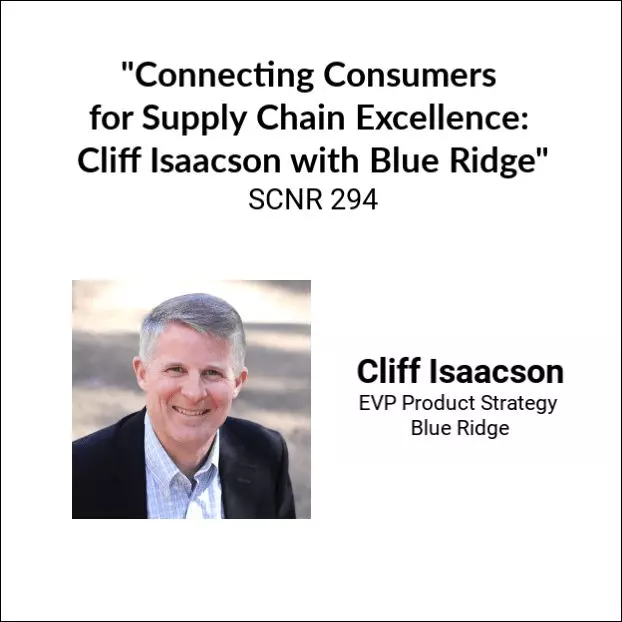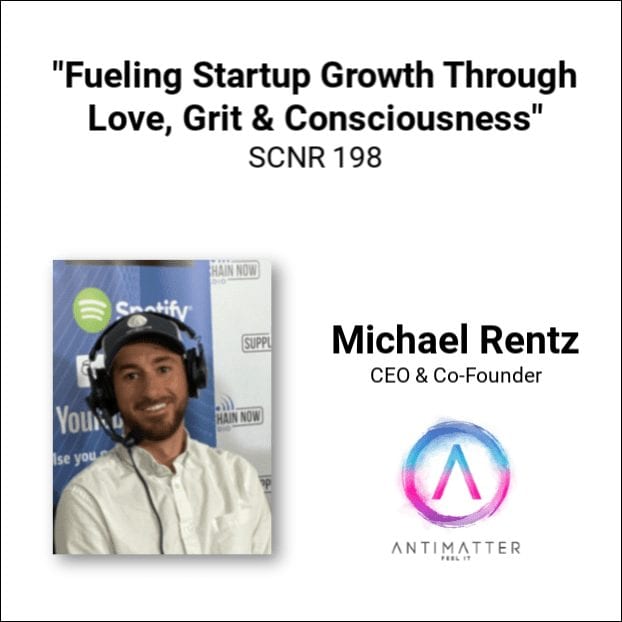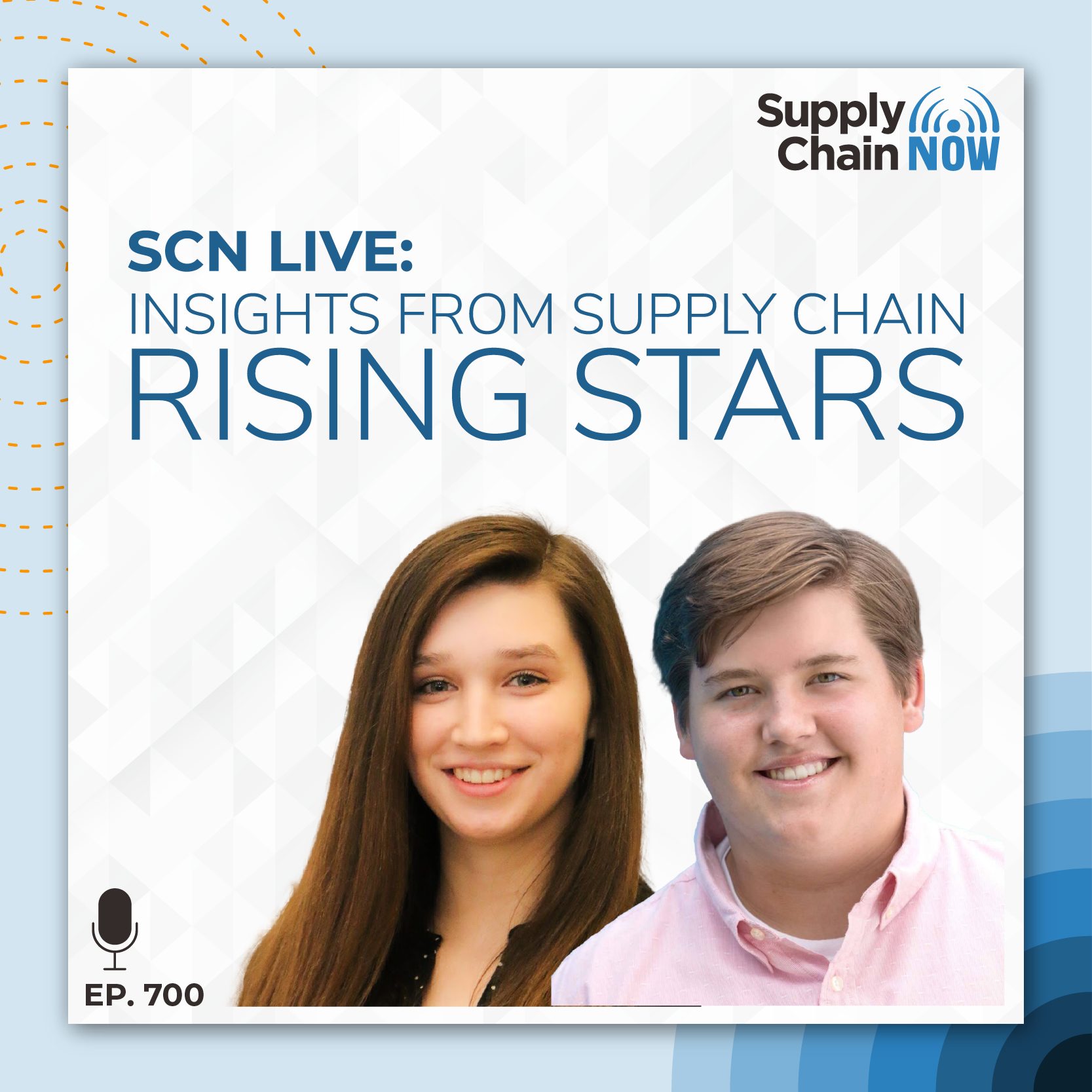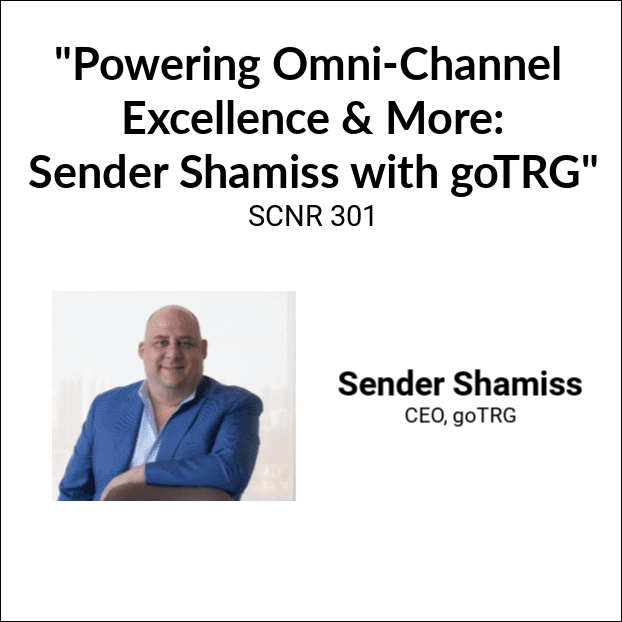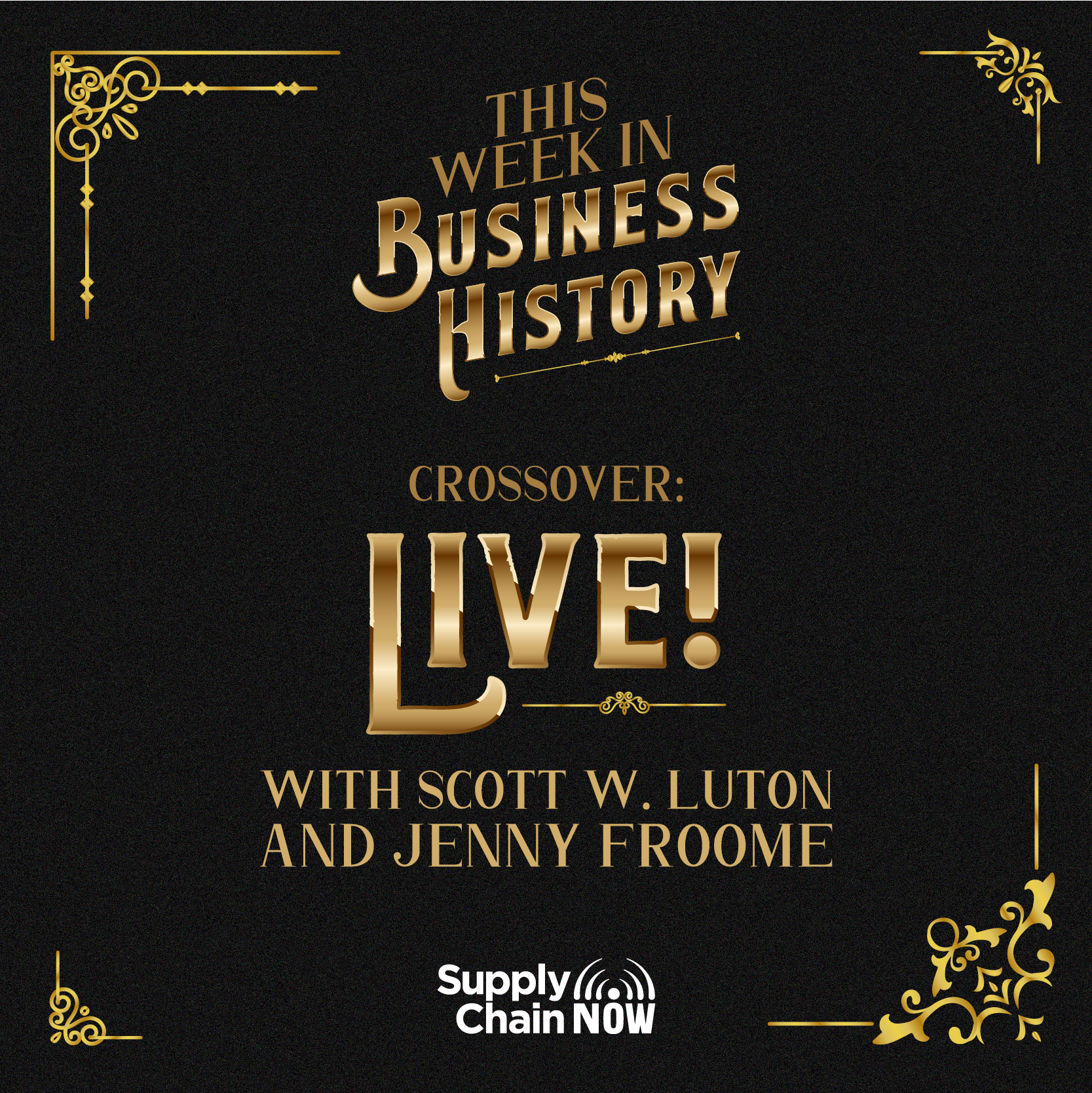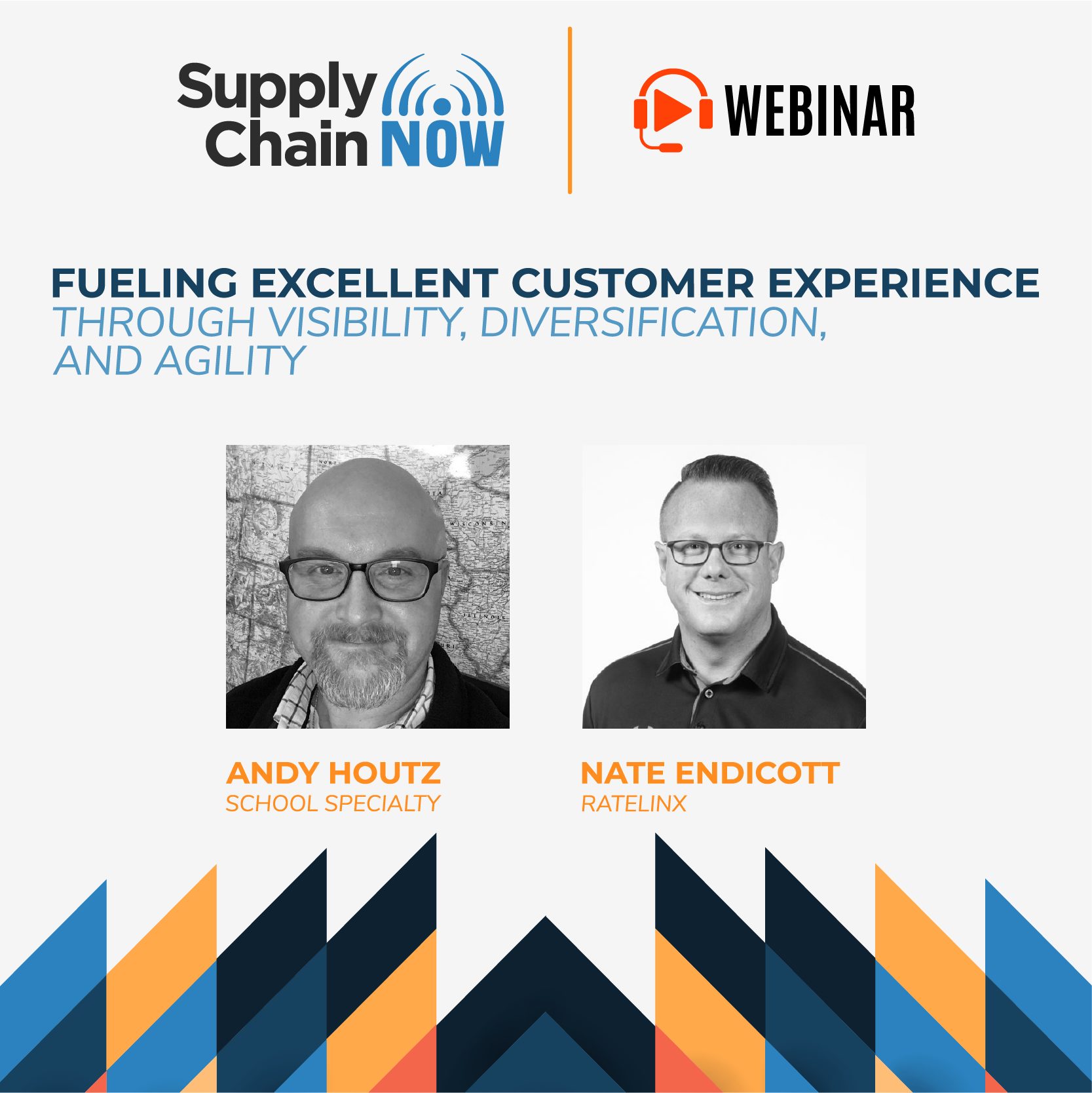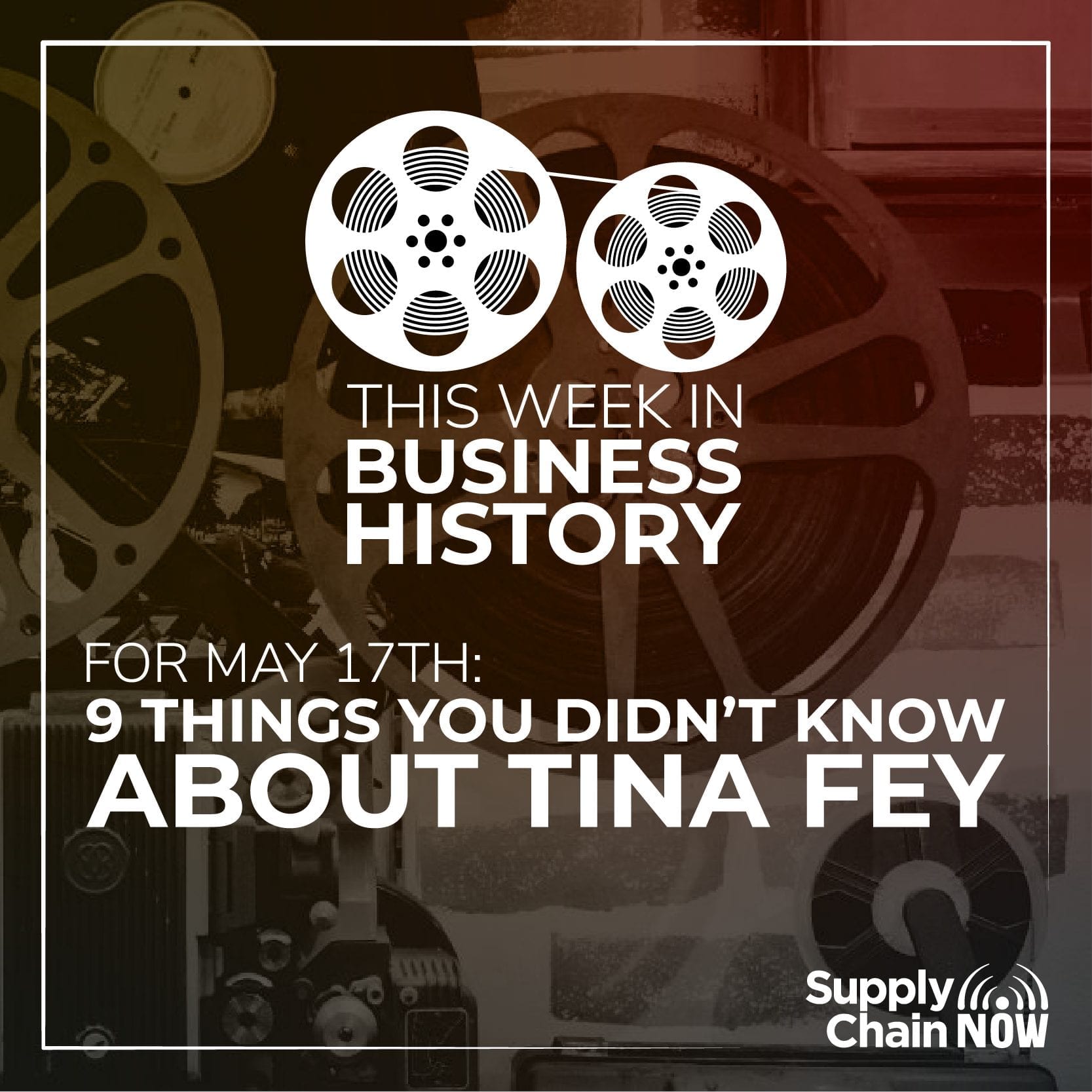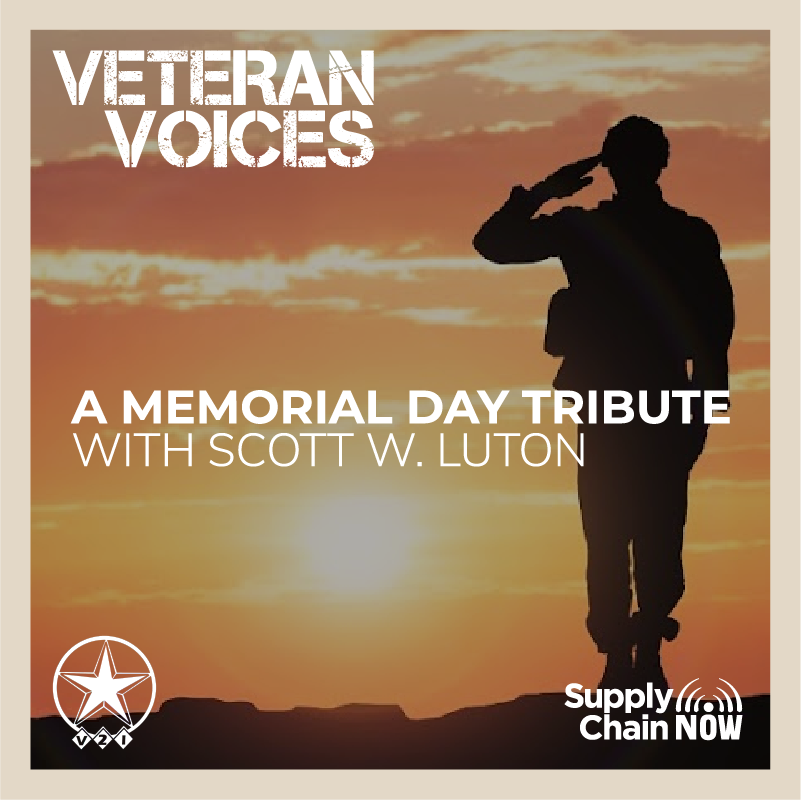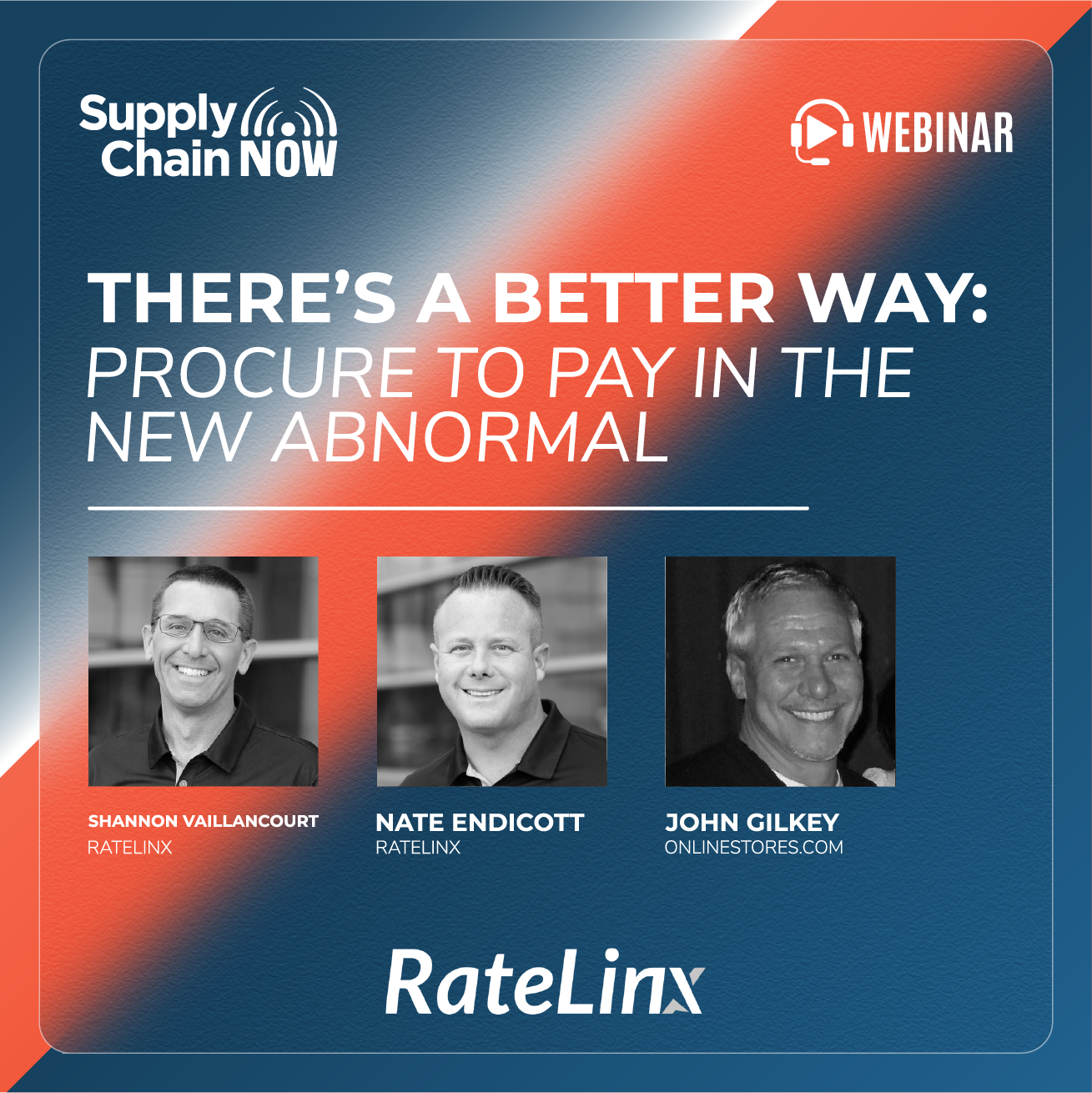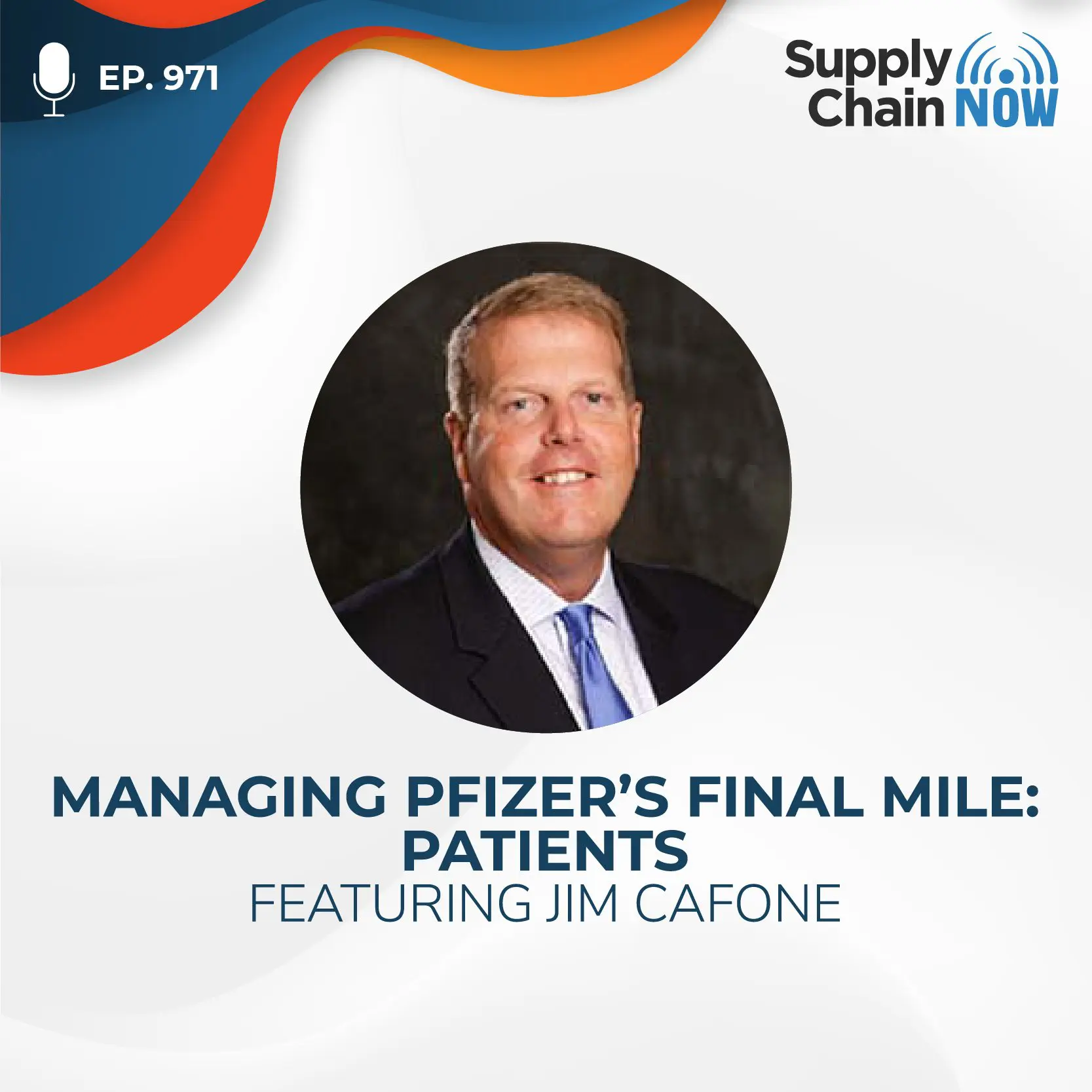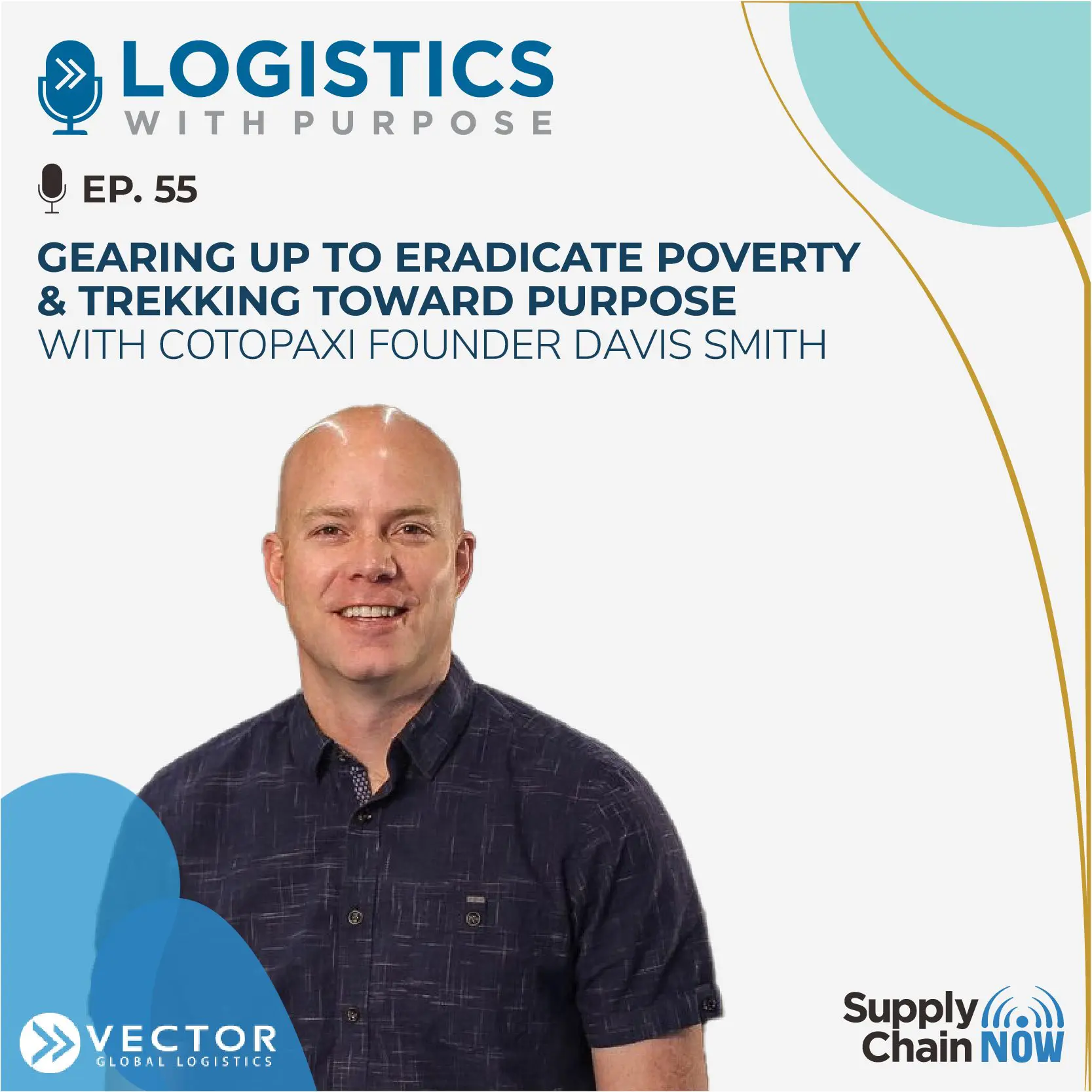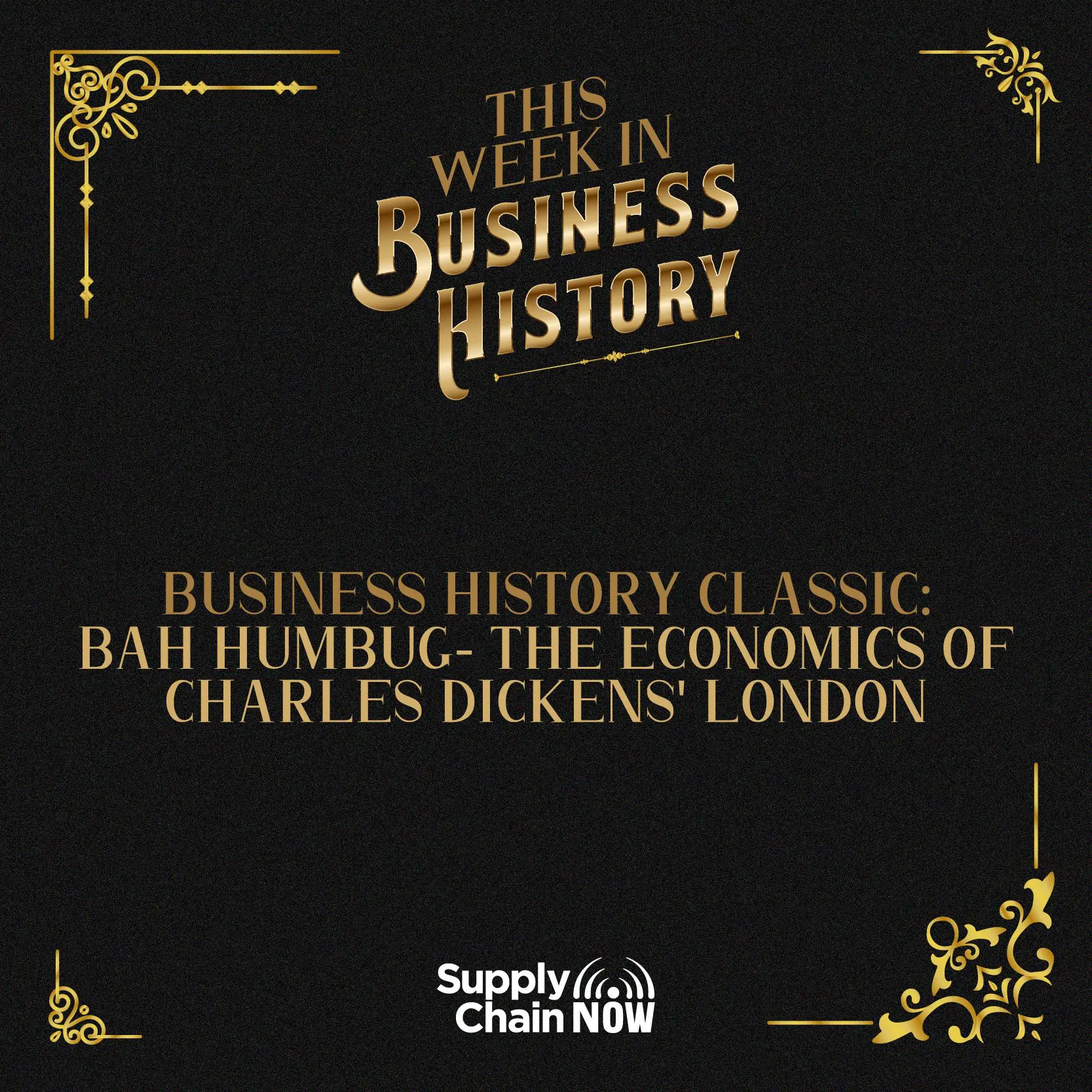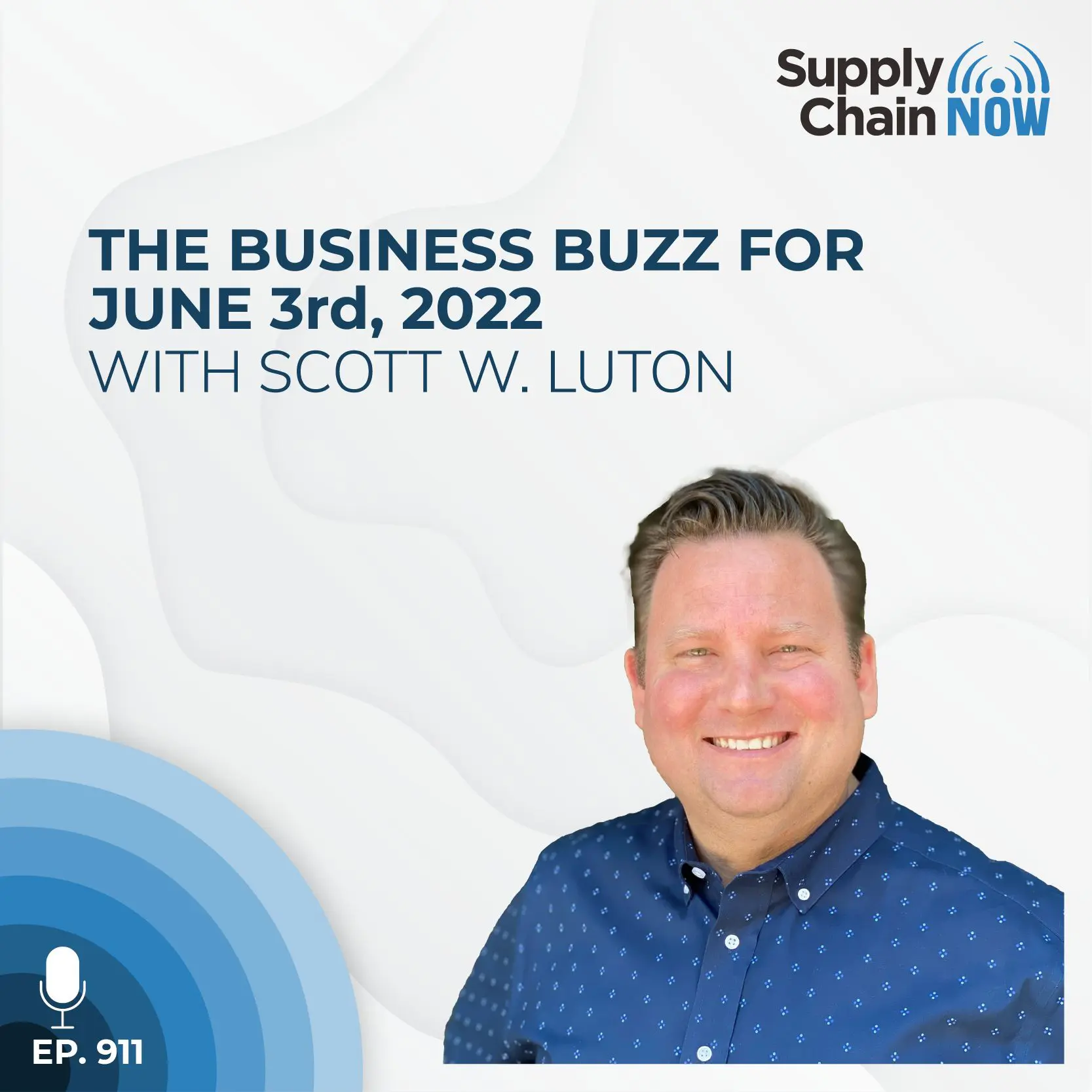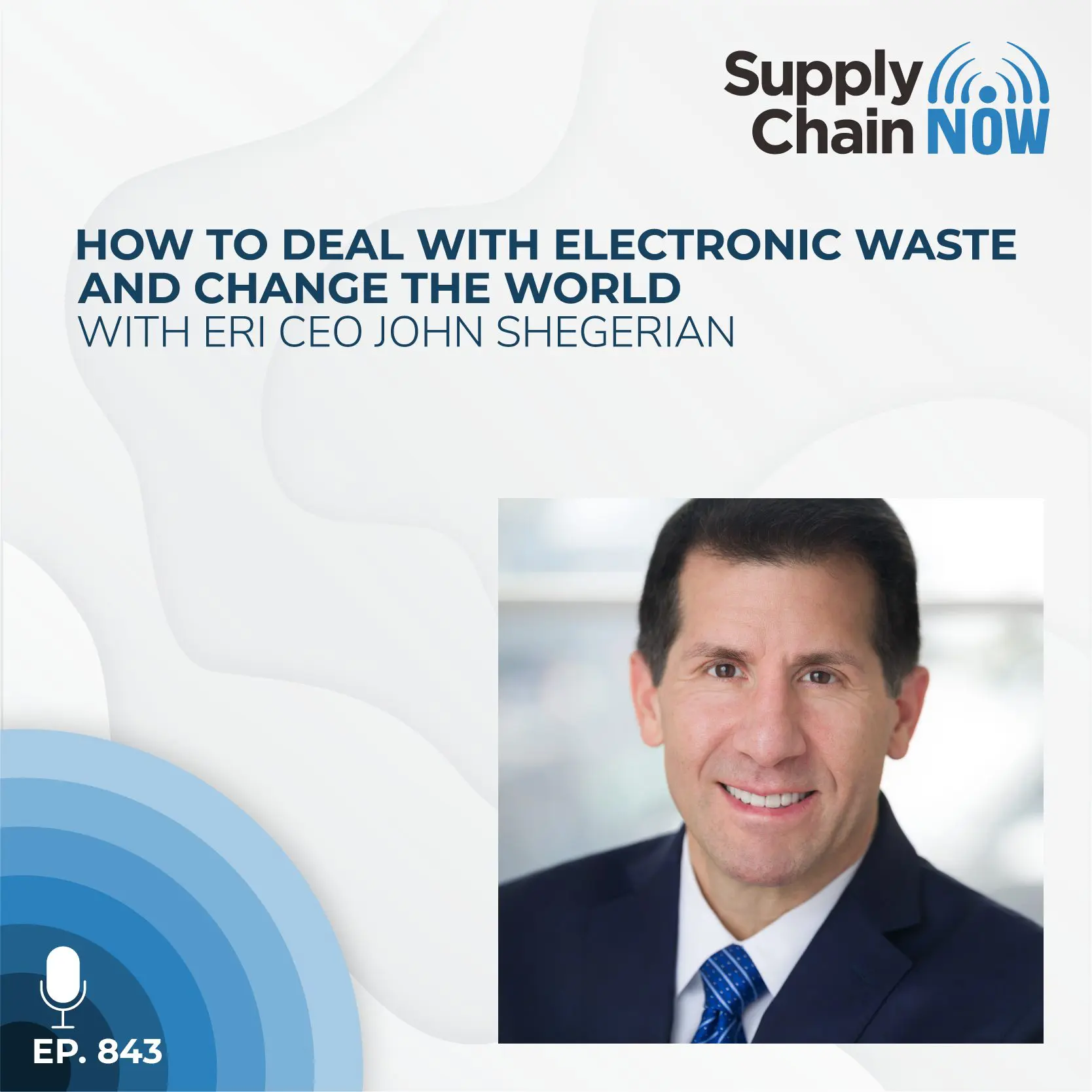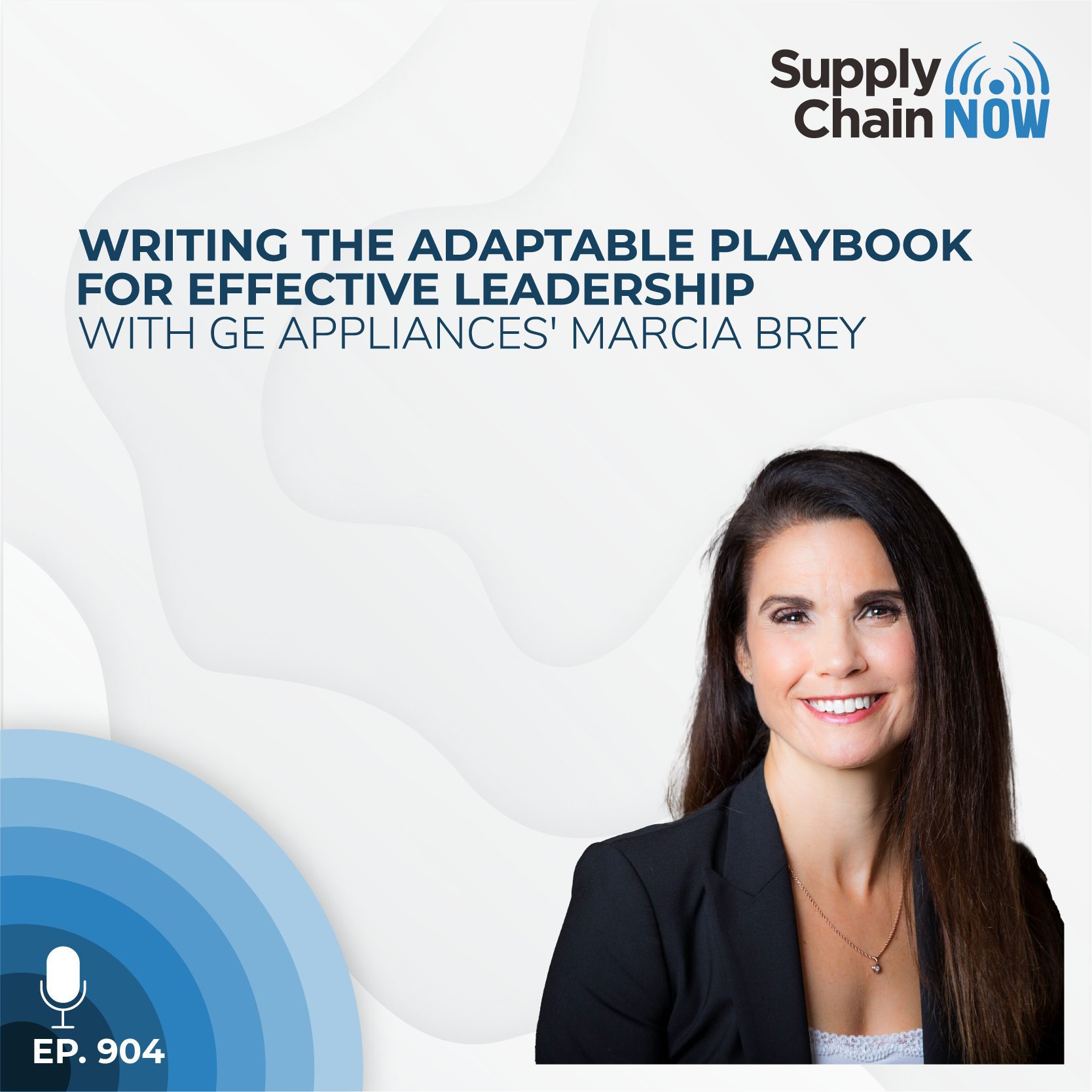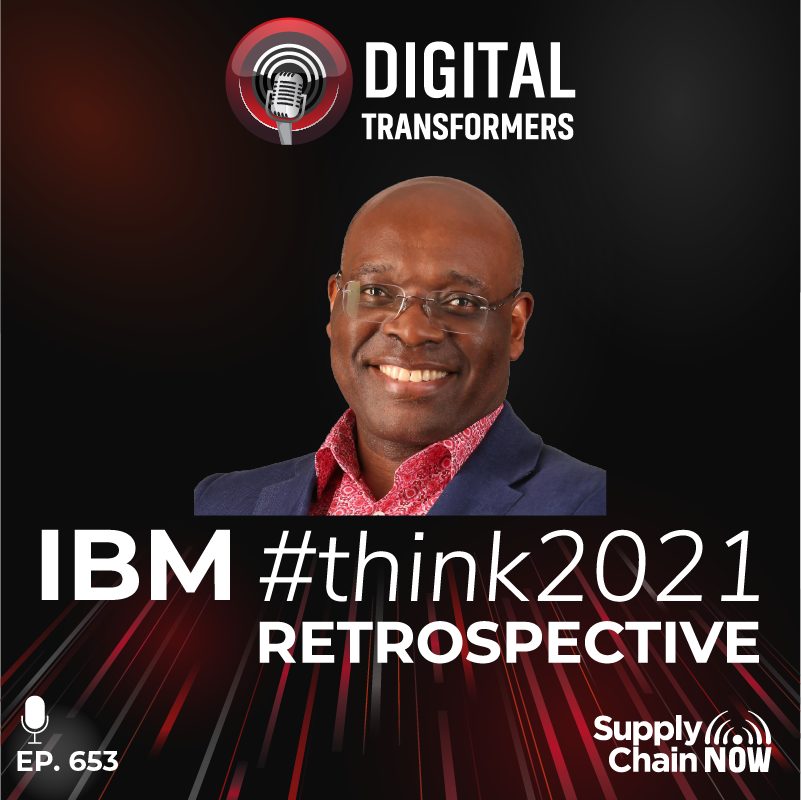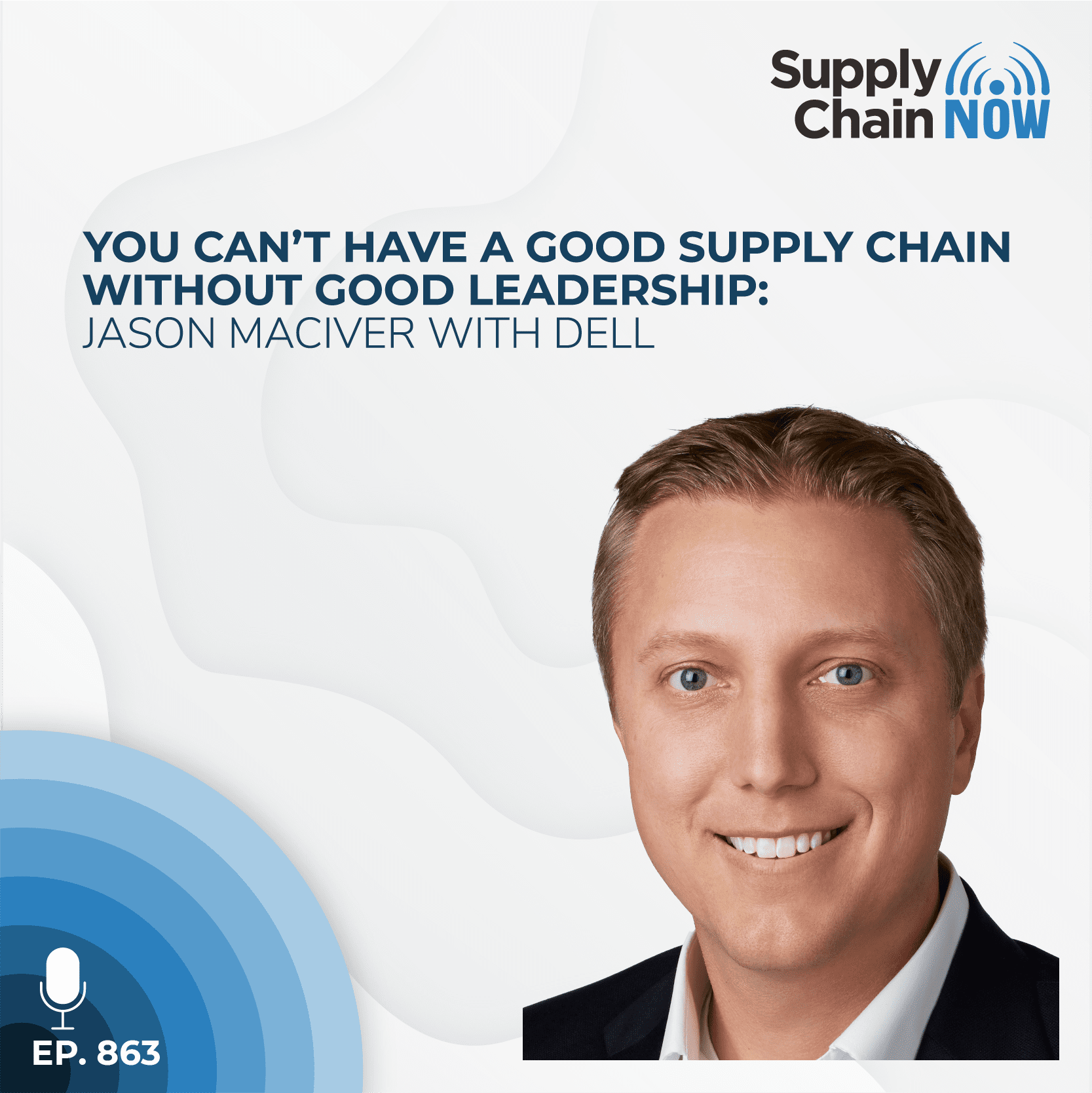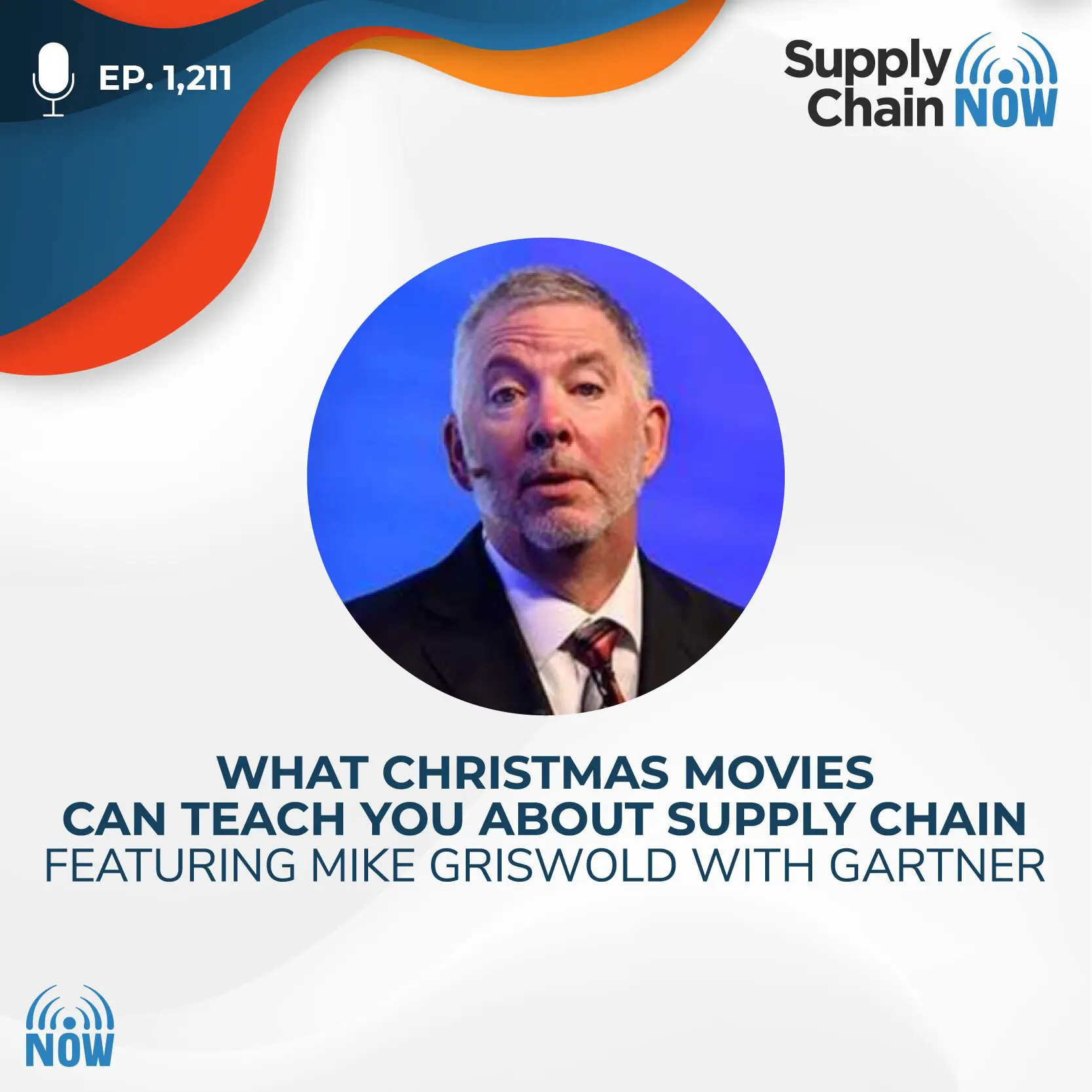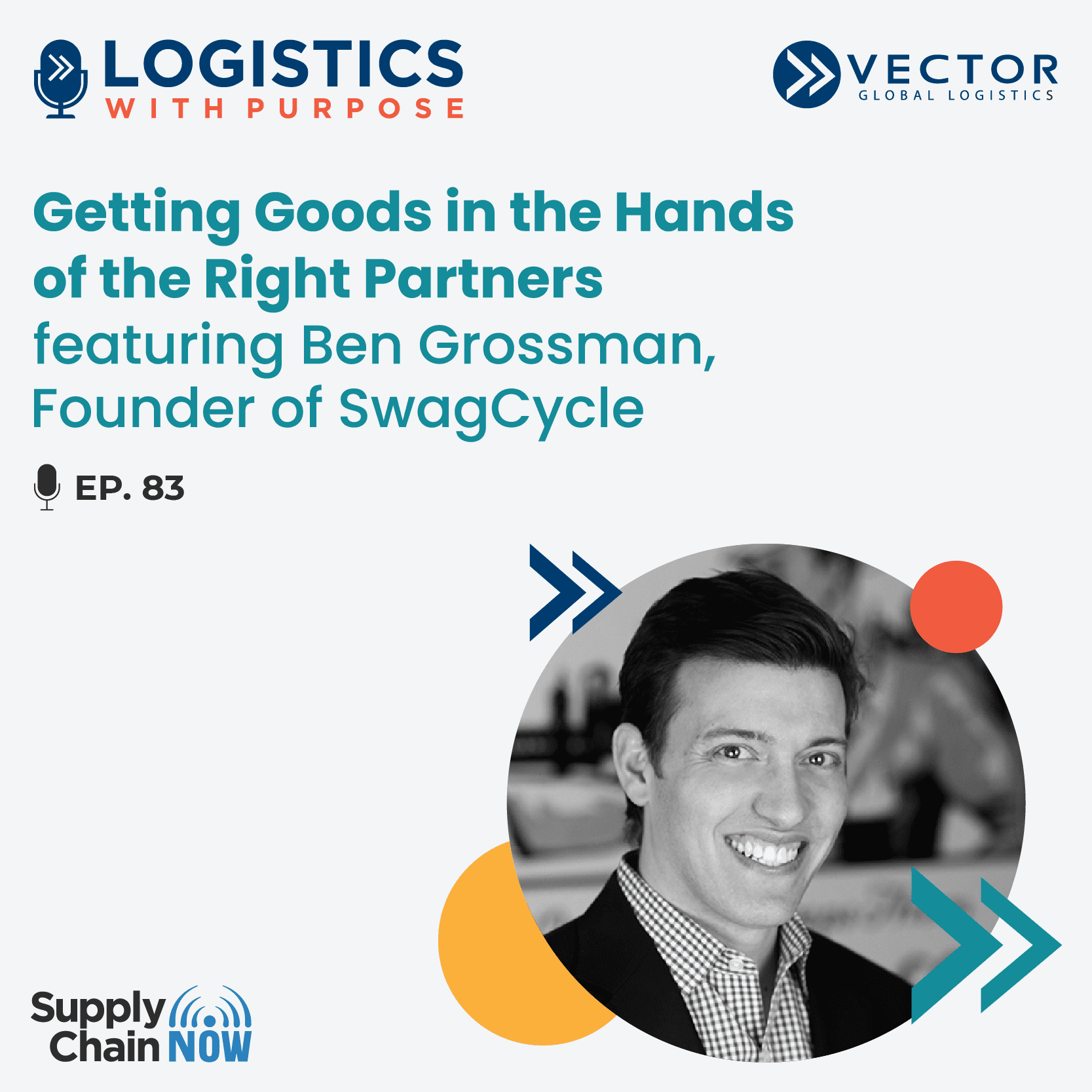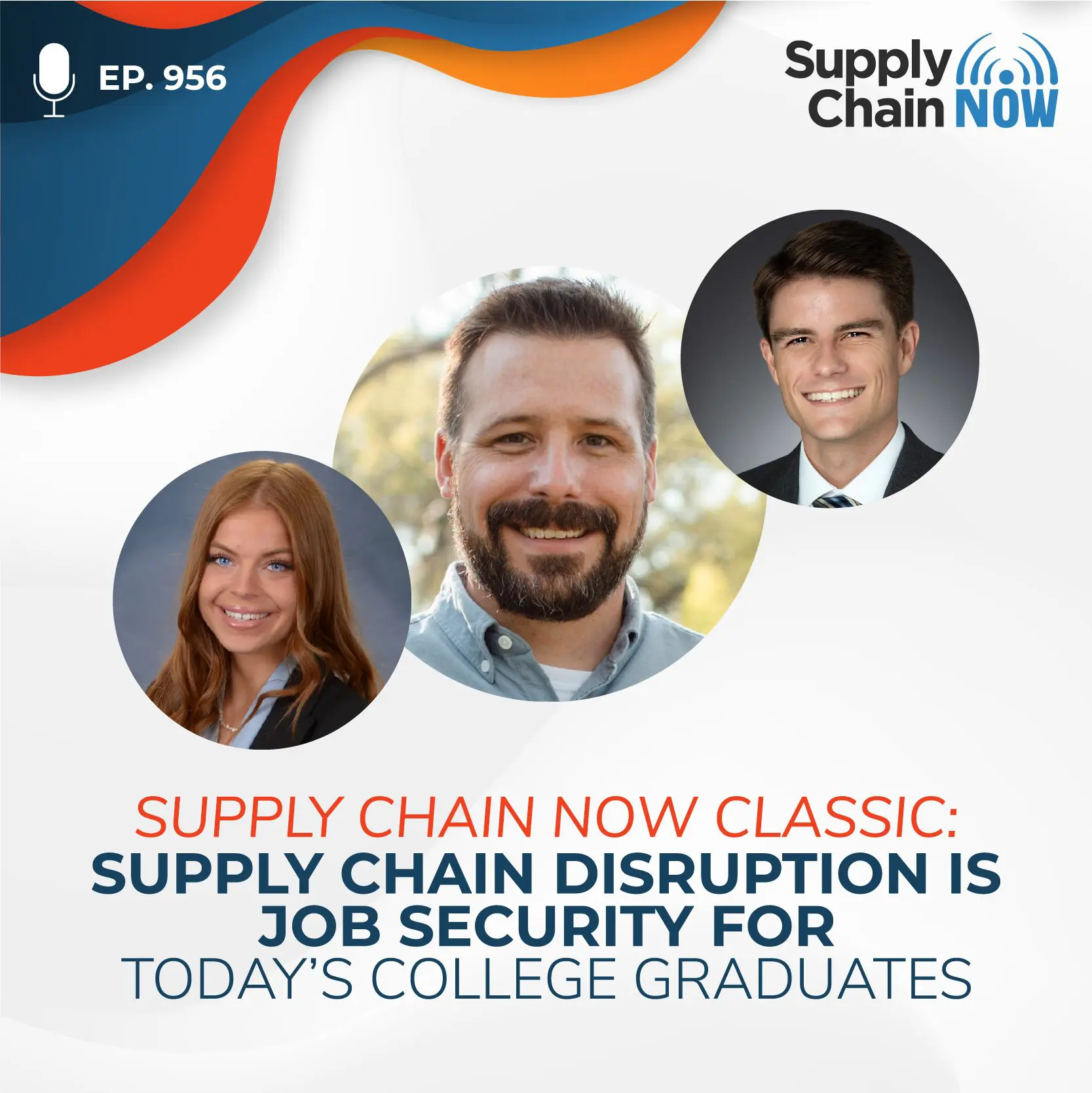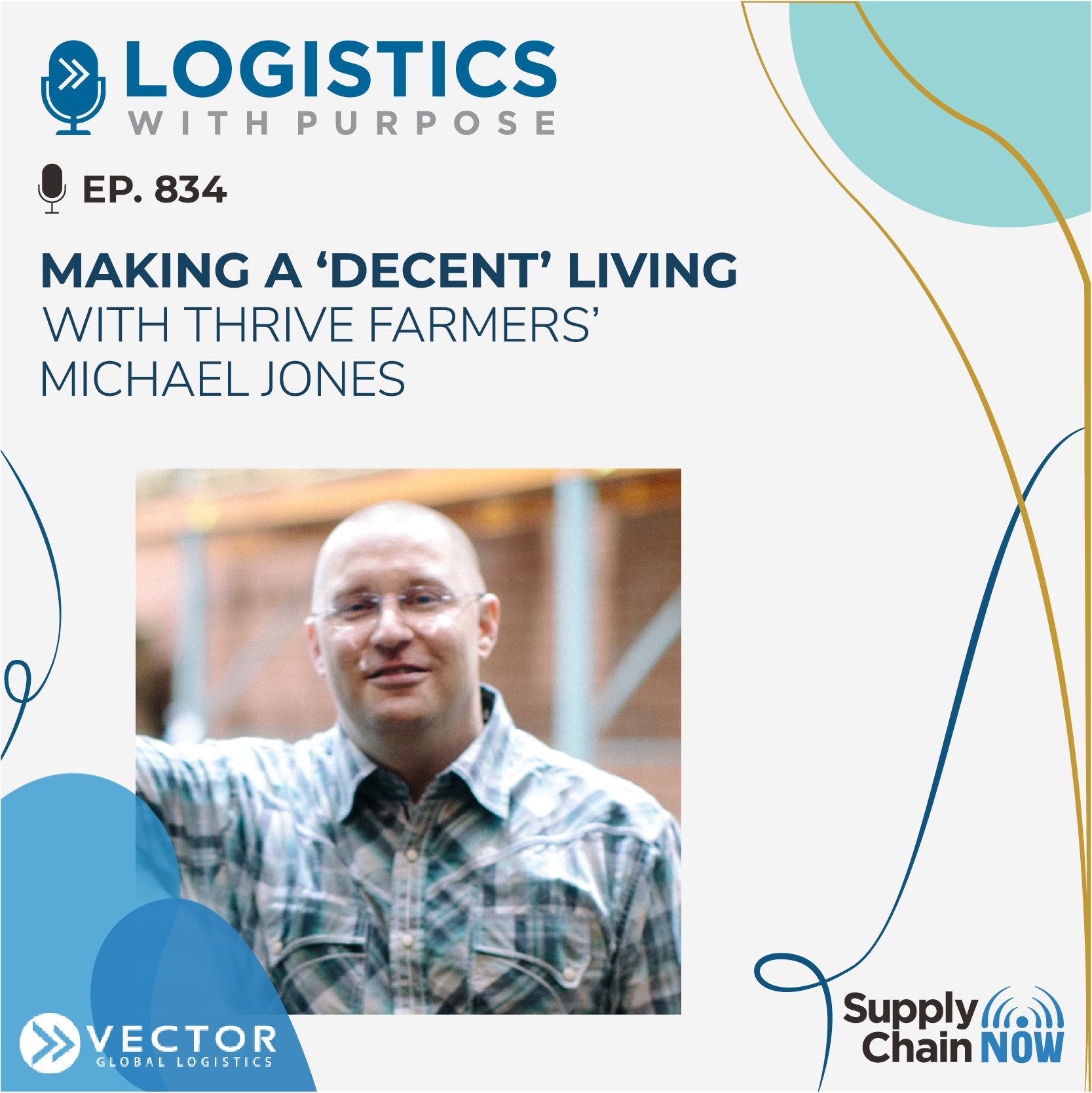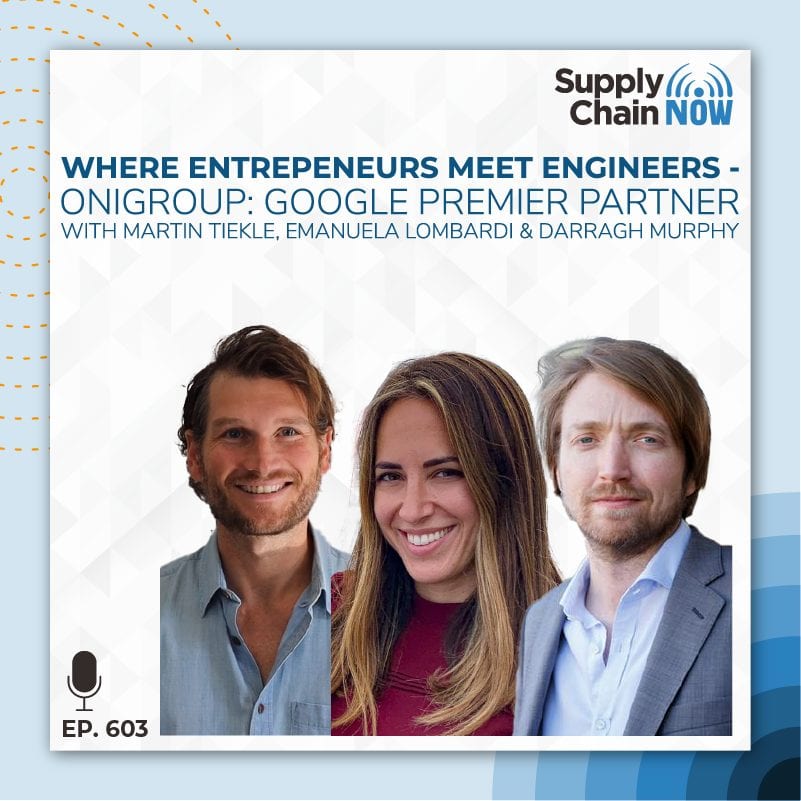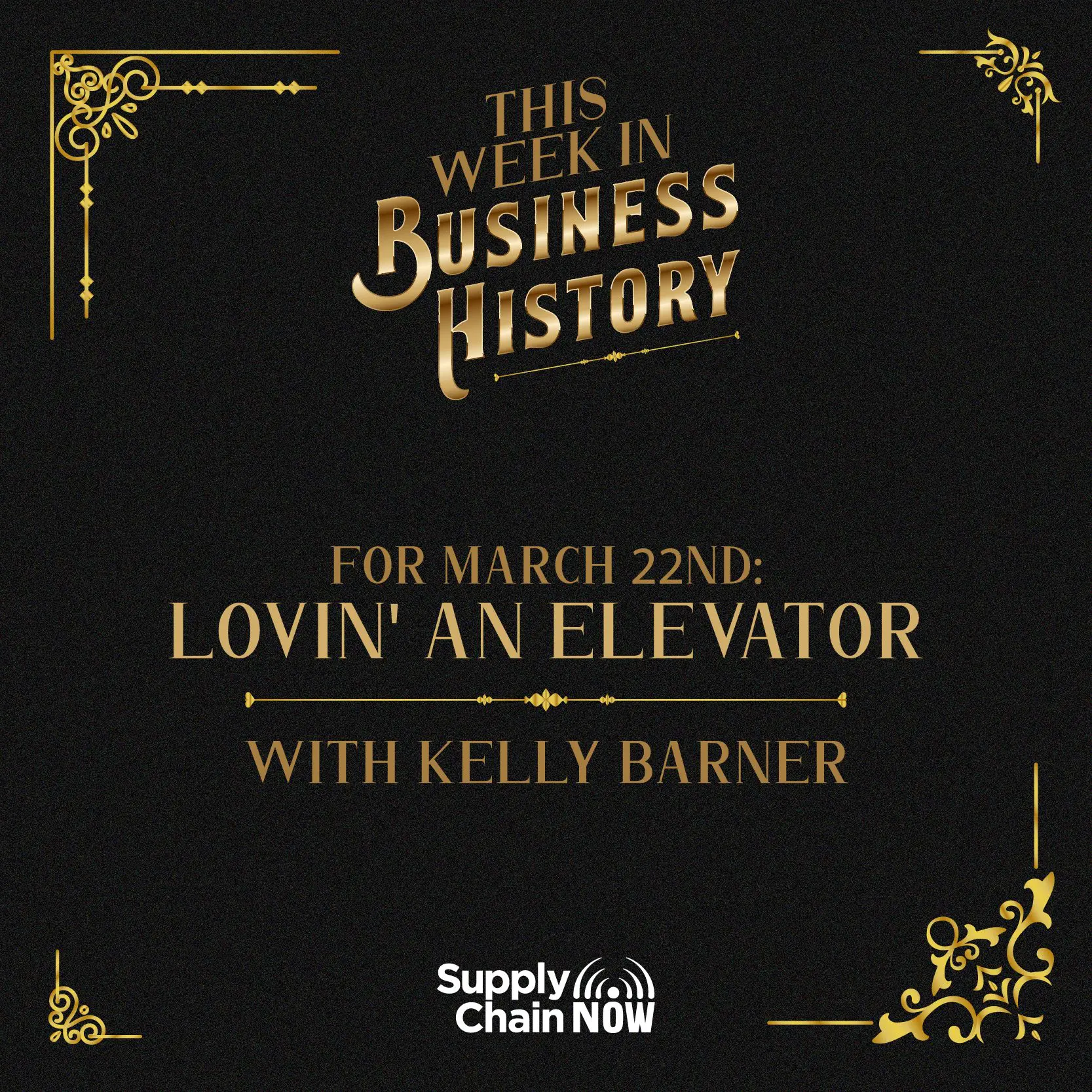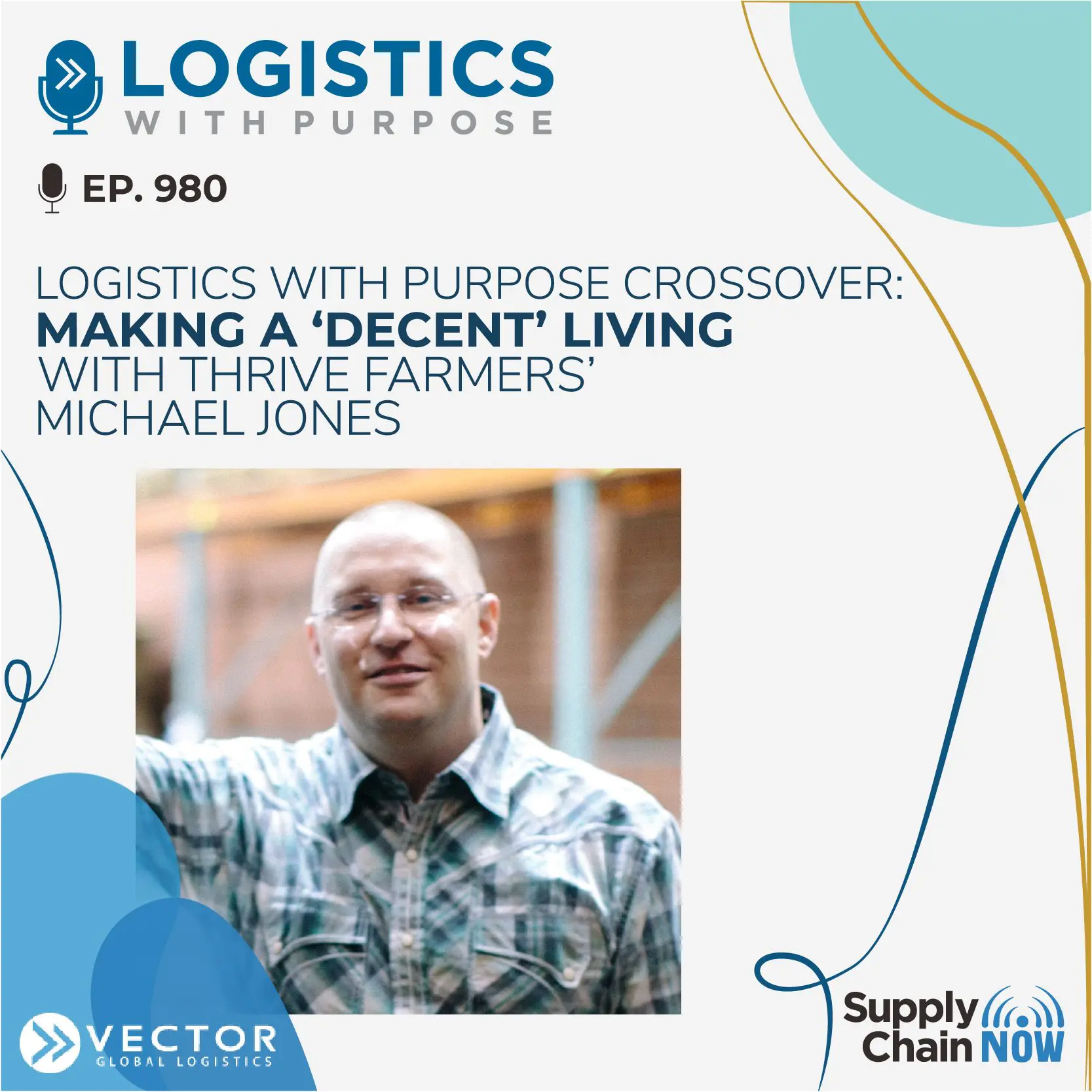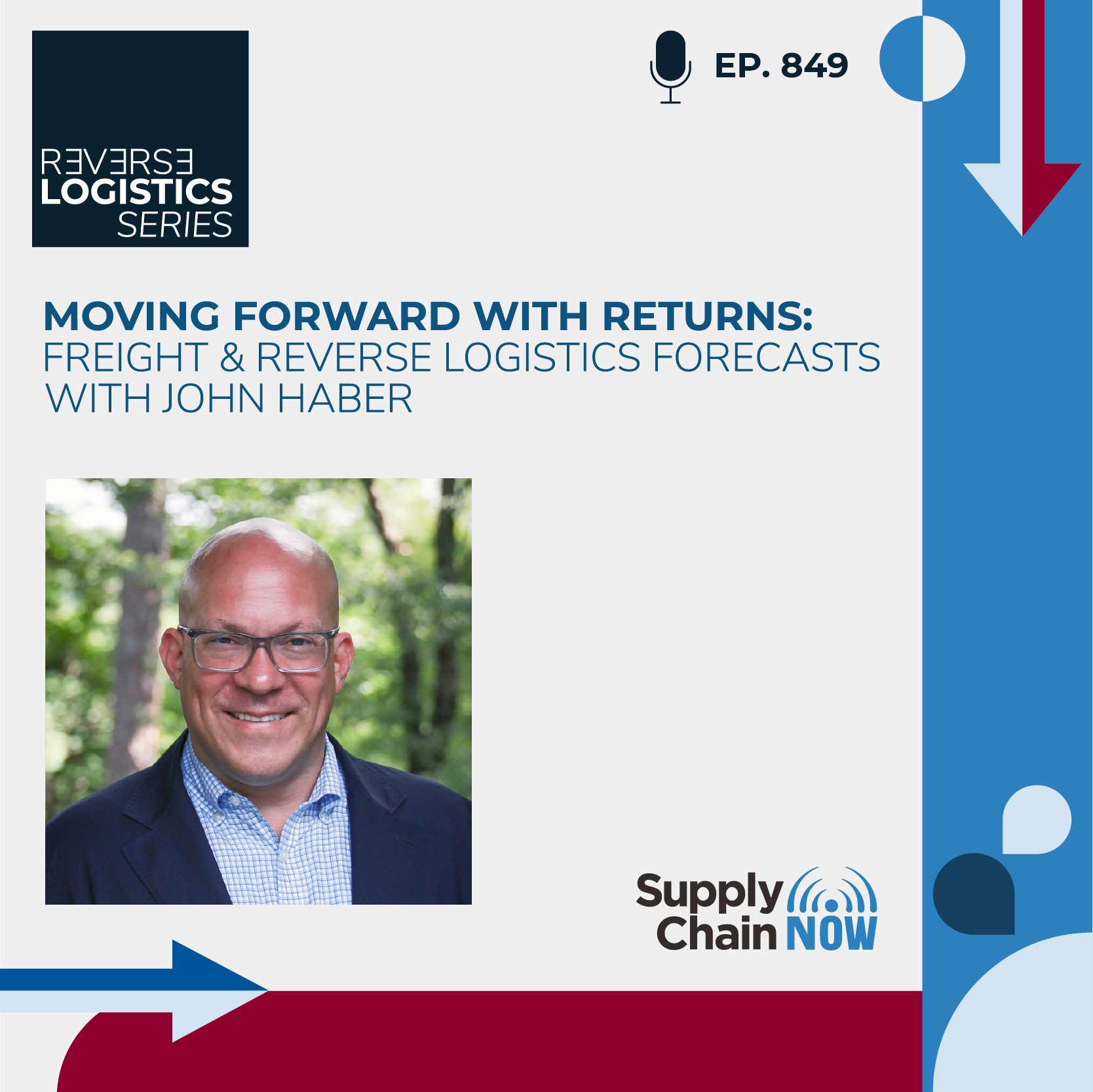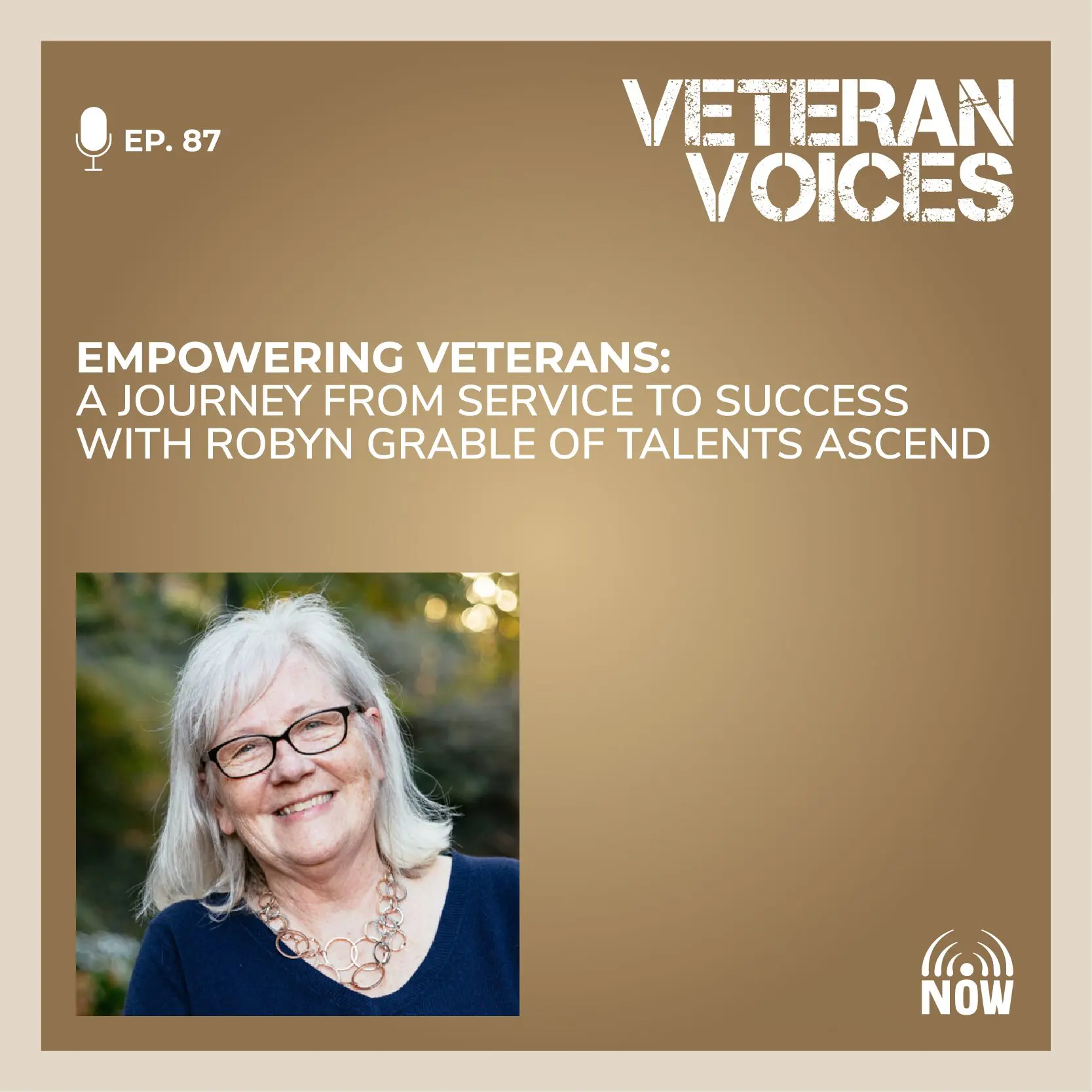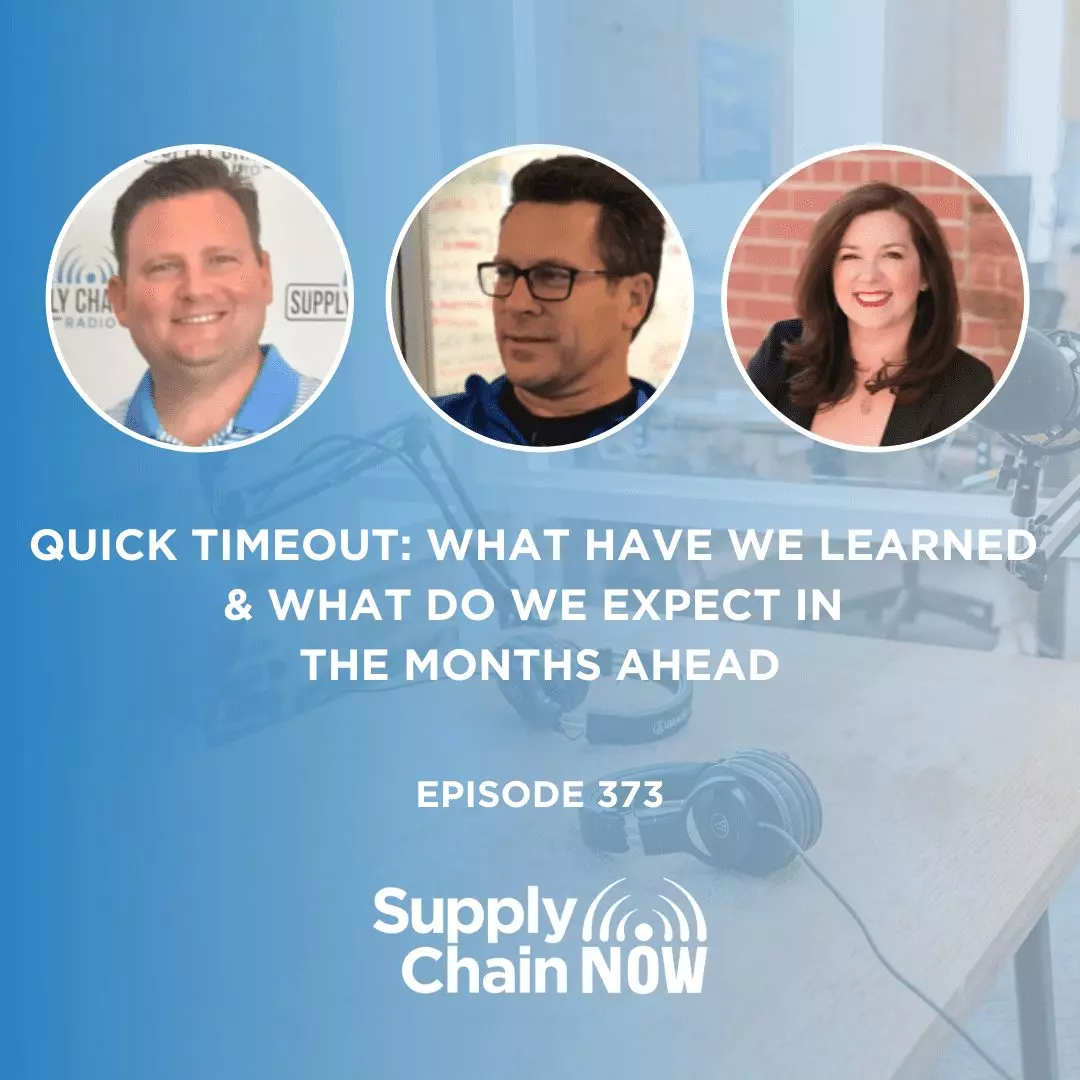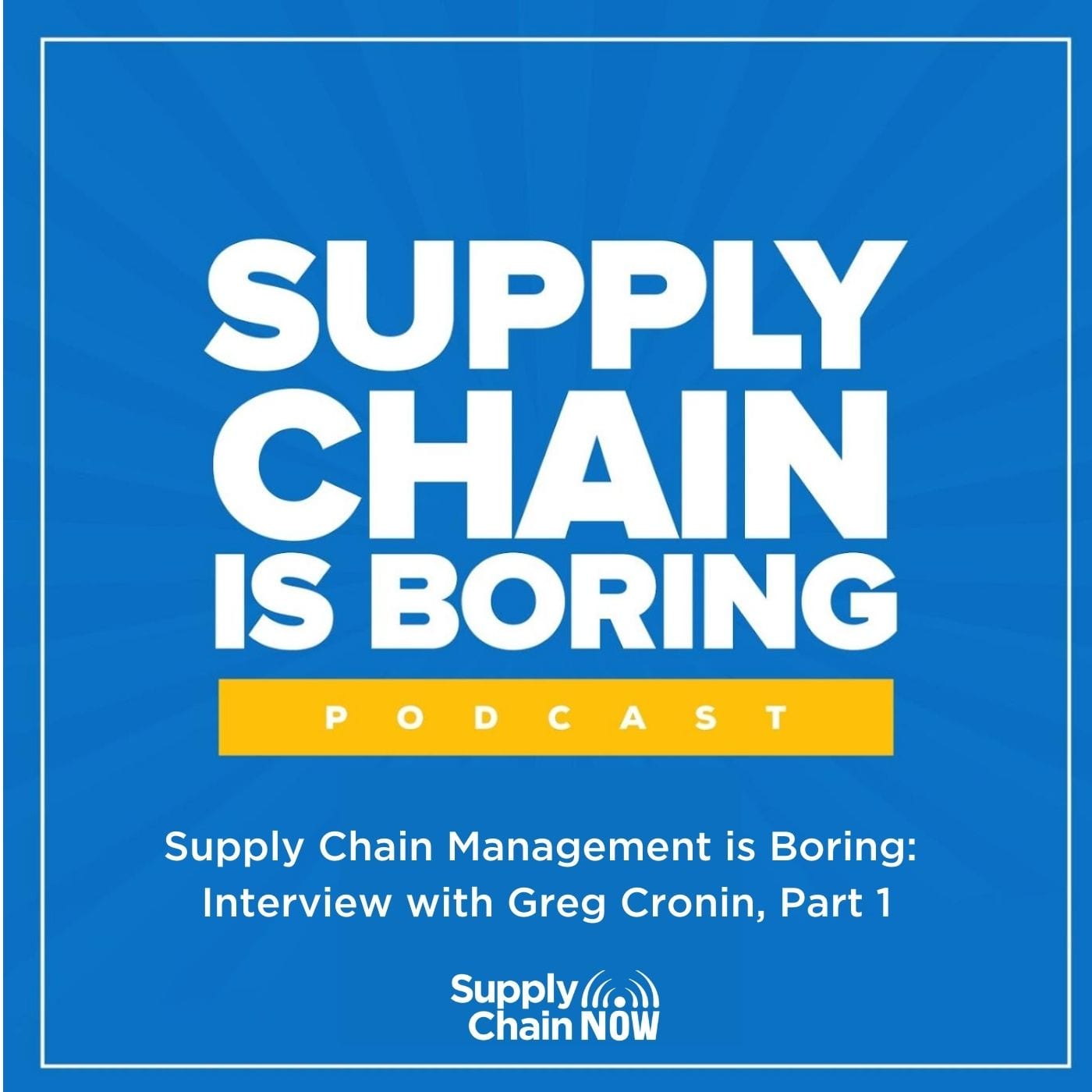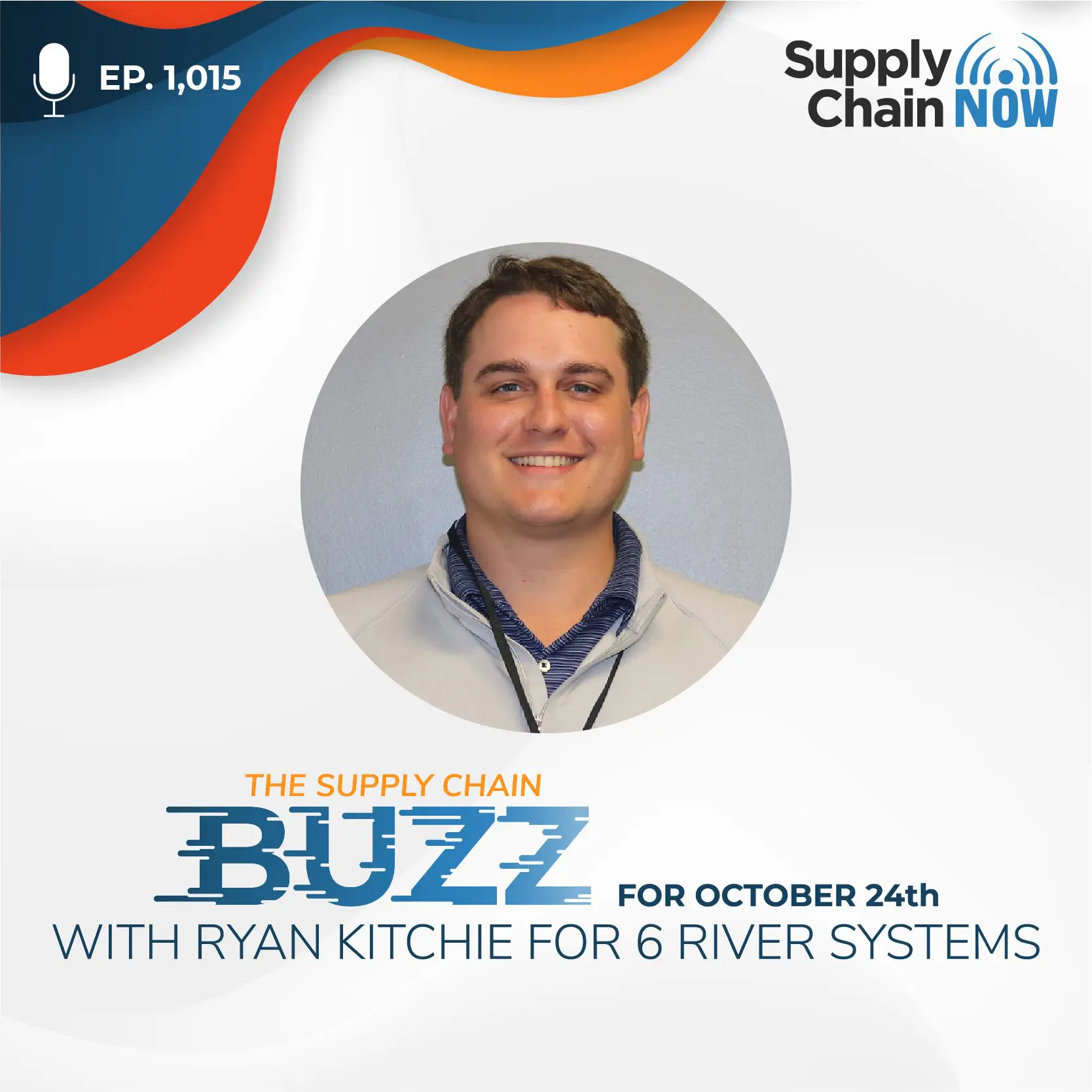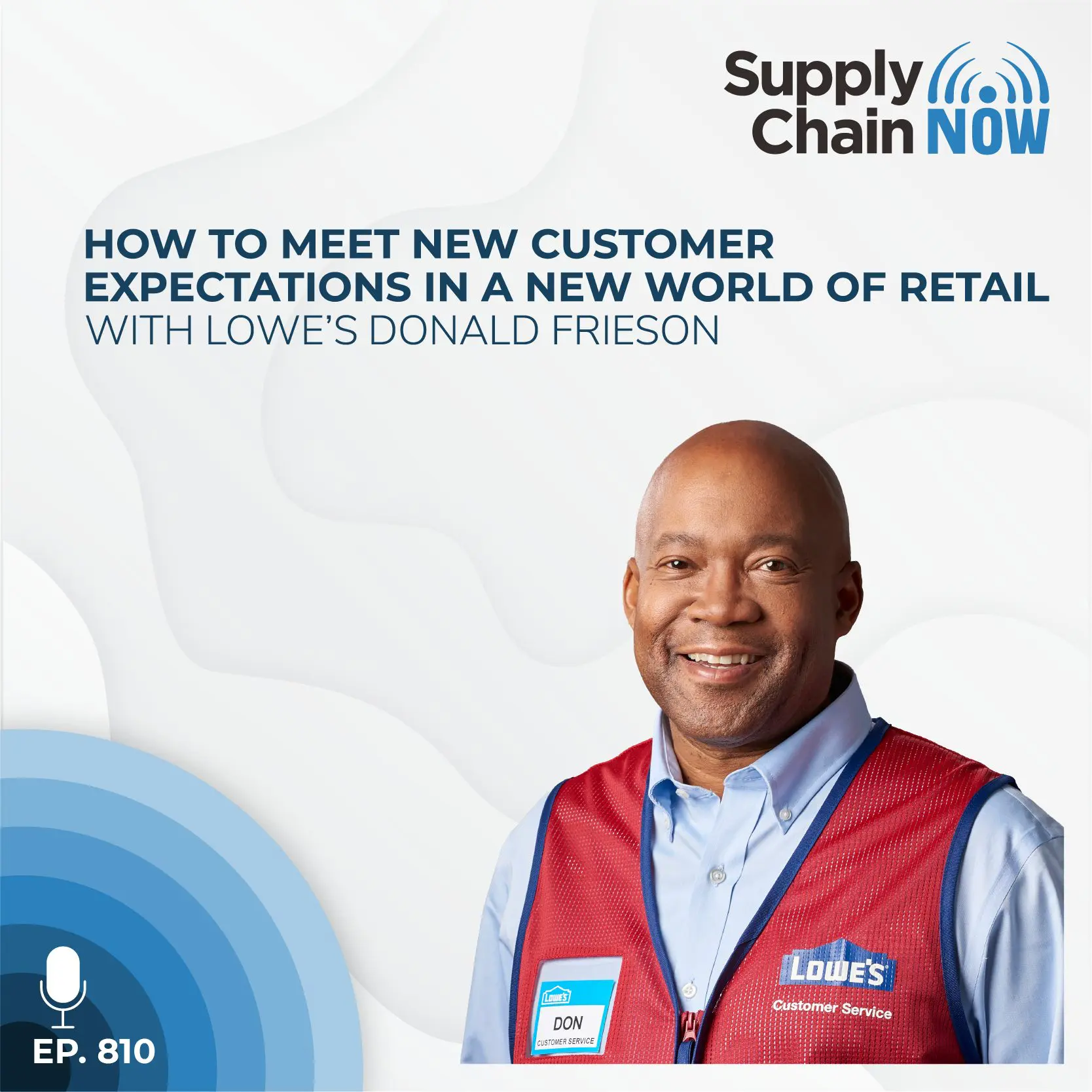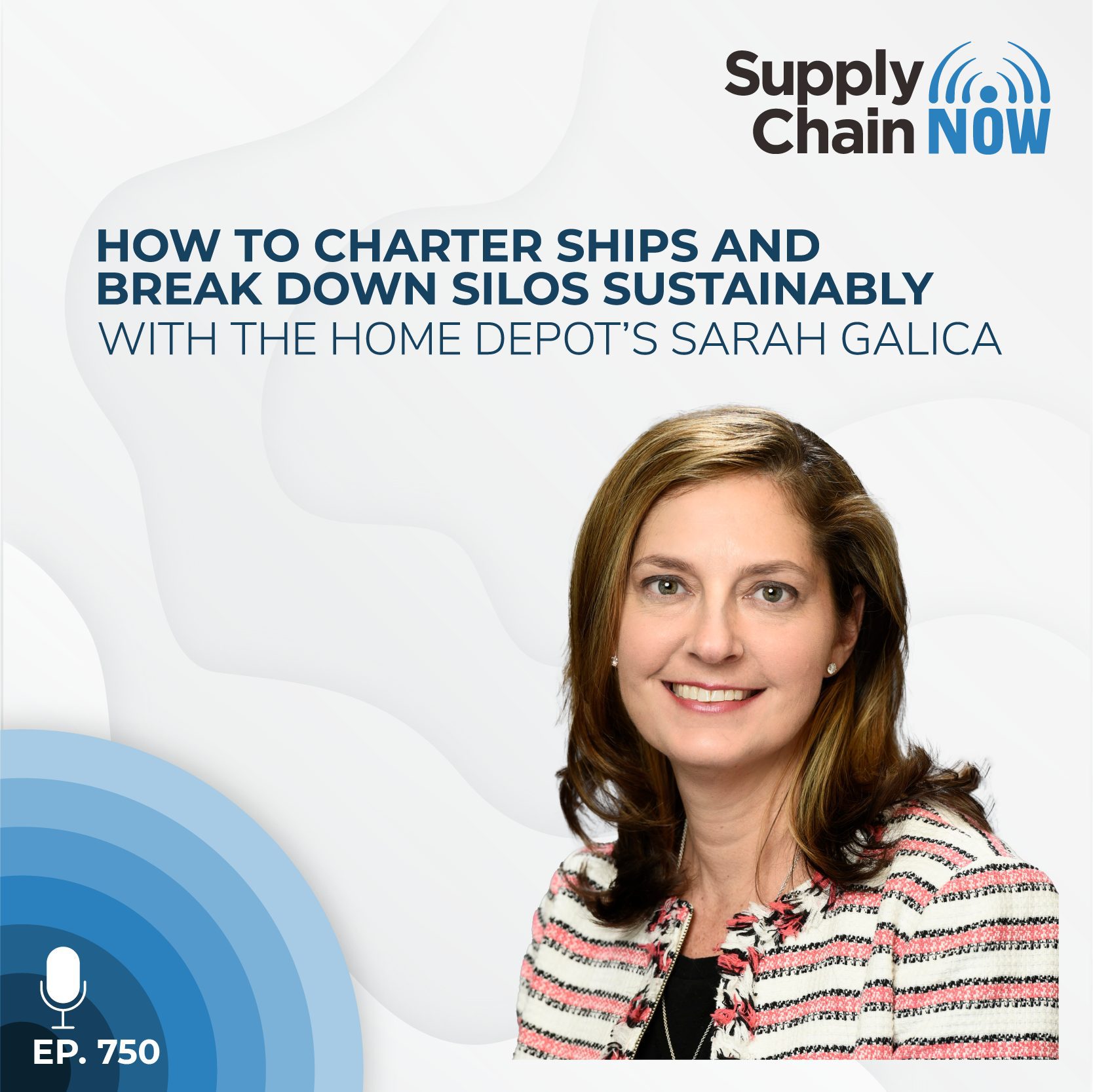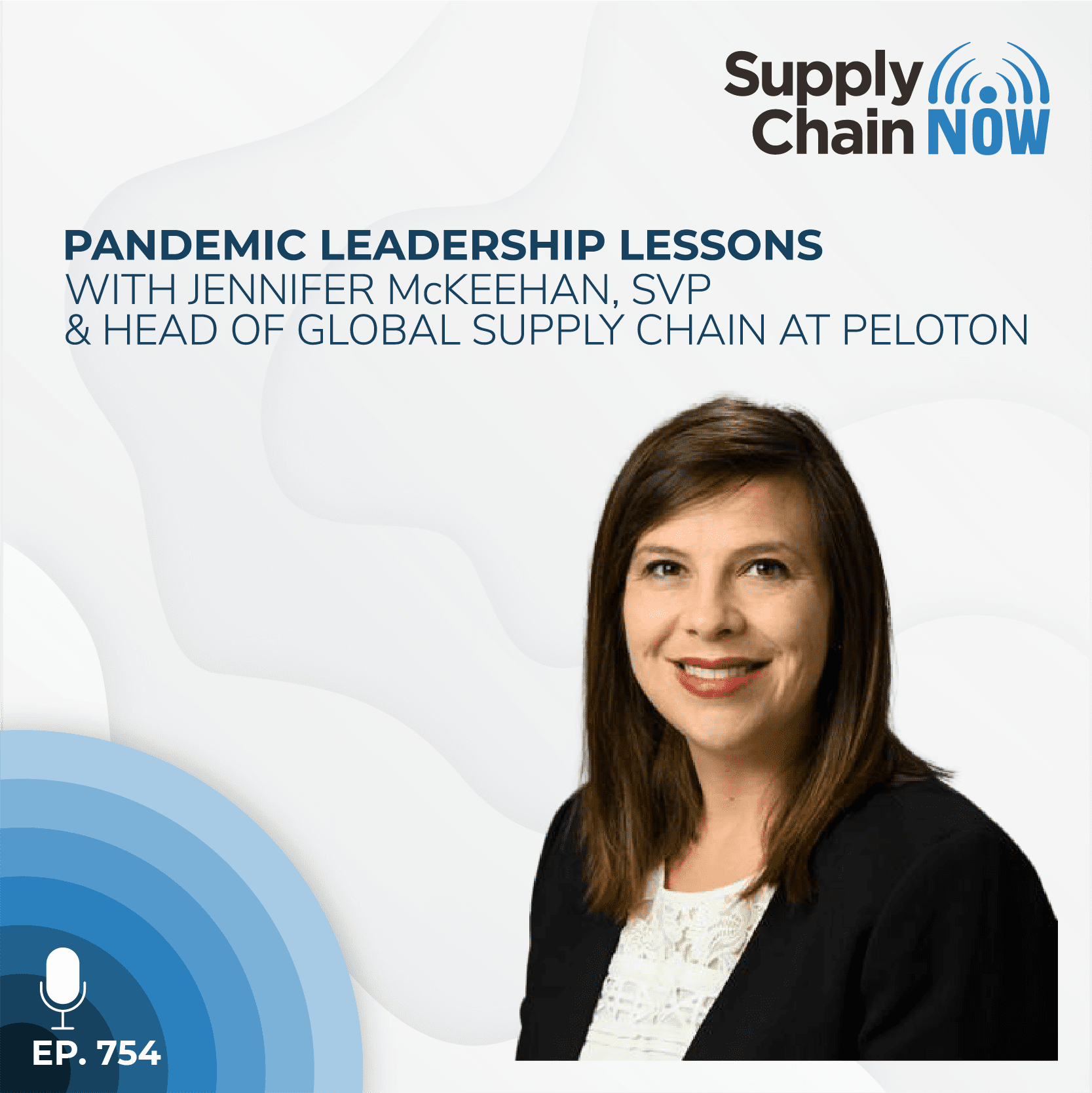
Companies are digital, right? Nobody's analog anymore, but we're still not getting the value that being digital really promised.
-Christine Barnhart, Verusen
Episode Summary
While everyone’s clamoring for more data, AI and ML to transform their supply chains, Verusen CEO Paul Noble and VP of Product Strategy and Go-to-Market Christine Barnhart are taking a different approach. How can you leverage technology to strengthen your supply chain without first clearly defining what challenges it will solve—and what business processes need to change? Join Scott as he chats with Paul and Christine on the supply chain’s greatest power–people–and how we can solve more problems with diverse teams, human expertise, material truth, a new approach to leveraging supply chain tech, and, yes, automation, AI and ML — when strategically placed to make the greatest impact.
Episode Transcript
Intro/Outro (00:03):
Welcome to supply chain. Now the voice of global supply chain supply chain now focuses on the best in the business for our worldwide audience, the people, the technologies, the best practices, and today’s critical issues. The challenges and opportunities stay tuned to hear from those making global business happen right here on supply chain now.
Scott Luton (00:33):
Hey, good morning, Scott Luton and Greg White here with you on supply chain now. Welcome to today’s. Big time live stream, Greg, how you doing?
Greg White (00:41):
Well? I’m good. I’m back in the home studio coming fresh off of a win on Sunday, a little rough from, from maybe some enthusiasm and also some spirited discussions about the NFL’s overtime rules. But I am here and ready to talk supply
Scott Luton (00:56):
Chain. What a trooper, what a trooper. All right, so really quick question, in a nutshell. Yeah, the best food you got while you’re tailgating in that Kansas city, uh, gorgeous, packed loud stadium and the big win over the bills. Yeah. The best
Greg White (01:10):
Food that there is on the planet. Barbecued brisket. Yeah. Fantastic. So
Scott Luton (01:15):
Did you bring some for us today? I
Greg White (01:17):
Did, but it didn’t make it home. <laugh> I’m not sure what happened.
Scott Luton (01:21):
Well, Hey, we’re glad to have you back. I know it’s been a, a busy, crazy time of travel, big wins, big business. And Hey, today’s episode kind of follows along those lines today. Yeah, exactly. It’s all about global supply chains, greatest power. I would say Greg it’s people and we’re gonna be talking and asking and answering the key question. Our business leaders, doing enough to support their people. During these turbulent times, Greg, we get two of our favorite people in industry joining us. We’re gonna be featuring Paul Noble and Christine Barnhart from ver and a company on the move that is powering the material truth. Greg, are you ready for today’s conversation? I am ready.
Greg White (01:59):
Yes. I have many fun conversations with Paul about supply chain. So I’m looking for, or the yet another
Scott Luton (02:04):
Wonderful, but Hey, all the folks in the sky boxes, the cheap seats call it what you will buckle. Let ’em get ready. Cause we want to hear from you too. All right. So Greg, we’re gonna say hello to a few folks in just a second, but really quick. I want to, uh, make sure folks know that nominations are open for our 2022 global supply chain and procurement awards. Right? We got nine different award categories. In fact, VEON was one of our award winners last year or, or two years ago rather. Uh, when we did these live at Mox, that was fun. Yeah. Doesn’t matter where your operation is or where your people are. The entire globe is open and better. Best part about this. Greg is that nomination fees are all getting donated to our friends at hope for justice and nonprofit on the move, right?
Greg White (02:48):
Yeah, no doubt. I mean, I think it’s brilliant. What you and excuse Mekel and Phil Addison have done to not only first of all, combine supply chain and procurement as they are so tightly woven so often, but to produce a global award and then to do so much good for charity, of course, you know, hope for justice is all about human trafficking and slavery. So any impact we can have on that is appropriate, right? Because we know that some of those issues exist in supply chain world today.
Scott Luton (03:19):
Excellent point. Yeah. So folks, you can learn more at supply chain, procurement awards.com, real creative supply chain, procurement awards, and easy genius.
Greg White (03:28):
We ought give ’em a nickname, Scott. Right?
Scott Luton (03:32):
I think they have the Skippy as coined by one and only Greg white. Okay. So we’ve got a big two big with us here today. Stay tuned just a second or two as we bring them into the stream, let’s say hello to a few folks. Folks. We want to hear from you today. As we walk through this conversation with Paul, Christine and Greg Latif is tuned in via LinkedIn. Great to see you here. Latif, let us know where you’re tuned in from Greg. As you know, clay, diesel Phillips is tuned in yeah. Part of the team make national
Greg White (04:00):
Champion clay
Scott Luton (04:00):
Phillips <laugh> national champion. That’s right. Big fan and alum of the university of Georgia, the reigning national champs. And we should say big, thanks to clay and Amanda and Chantel and Catherine, all part of the production team, helping to make things happen here today. Benjamin gold clay. One of our favorites been for a while. He says, boys, you’re looking good. Glad to be back in the livestream. Yeah. I think Benjamin is looking, man. He’s looking sharp.
Greg White (04:26):
Well, he’s a big city boy now, so right. I’m sure he is wearing his Armani suits and
Scott Luton (04:32):
Well, I saw <laugh>. I saw, I think I saw something on social that Benjamin was doing some mentoring or maybe speaking classes or something. So Benjamin let us know beyond doing good things in supply chain. Let us know what you’ve been up to. Um, Addie Robinson tuned in from Atlanta via LinkedIn Addie. Great to have you here today. Anna McGovern it’s with us, not, you know, this ring name rings a bell for you, Greg, right? Yeah. She
Greg White (04:58):
Is a former presidential candidate. Oh no. Want that one?
Scott Luton (05:02):
<laugh> I bet you get hears that a lot. She’s a Titan in all things. Procurement supply chain, uh, she says hello from Connecticut guys. Amazing weekend of football. Yes. Anna. We’re gonna be touched on that. Let us know your favorite team, but great to see, see you here today. Via link team
Greg White (05:17):
Connecticut. Connecticut’s so cold. It’s a great state to watch football from for, for sure. Right? <laugh> right by the fireplace.
Scott Luton (05:25):
<laugh> with your hot Totty and yeah. Laying by the fire. Maybe. I don’t know. Henry weight book. <laugh> well, if you’re a Falcons fan, you had plenty of time to read during the playoffs. And, and I say that with all humility as a, a resident Falcons fan. Okay. Um, car and got some good news. You’re part of livestream already. We your own, you found a link and you’re with us. Tell us where you’re tuned in from there via LinkedIn. All right. Marie hut is with us, Marie. Great to see you here. Marie says she just signed up for Mox this morning to mod ex Greg. So it’s like the biggest supply chain circus in the Western hemisphere, right?
Greg White (06:02):
It is. And I mean, you know, it’s big when they expand one of the biggest event centers on the planet to accommodate almost solely that one show
Scott Luton (06:12):
<laugh> is amazing. It is amazing. And Marie, great, great to have you with us here to day admire all the things you’re doing in supply chain, leading supply chain, helping to make it happen. Memories back with this memory has been, she’s been on fire, Greg. I don’t know if I know all your travels. If you had a chance to tune in memory has been dropping it here lately, the supply chain insiders featuring this week. I think we’re trying to do some new things with those insiders features. Maybe
Greg White (06:37):
That’s great group.
Scott Luton (06:39):
We gotta check it out. We gotta check it out. We gotta gotta reinvent
Greg White (06:43):
On LinkedIn. It’s a LinkedIn group. So
Scott Luton (06:46):
Join that sucker. Join that. Join that sucker <laugh> advice with Greg white join that’s sucker. That’s a t-shirt is some
Greg White (06:54):
People have a way with words and
Scott Luton (06:57):
Well, Hey, rest of it, <laugh> really quick for shot. Thanks for joining from, uh, Toran via LinkedIn PS, back with us from the ATL via LinkedIn Samuels tuned in via LinkedIn Jean pledger from, uh, Atlanta today. Is that a, is that a bigger event in town? Crawford McCart. This is the final thing we’re gonna bring in our guest. Crawford says, how do I get a nickname? How would you say that? Uh, Greg, what, how would you answer that question?
Greg White (07:21):
Uh, I would answer the question usually there’s beer involved. <laugh> for one <laugh> that’s right. Often it’s, you know, do something really dumb that your best friends remember you for and tag you with for the rest of your life.
Scott Luton (07:34):
<laugh> so car, if you can tell yourself and give us a, you don’t have one <laugh> right. We’ll come up with one. No doubt, but Crawford, great question. And thanks for being here today via LinkedIn. Okay, Greg, we have got to get to work. Cause when you’ve got two of the big, biggest Dyna, uh, dynamos in the world of global supply chain, we, you on a live stream, we got get ’em in and, and, and start picking their brain. Right? So with no further ado, I wanna bring in and introduce Paul Noble CEO with Von and his colleague, Christine Barnhart, vice president of product strategy and go-to market. Hey, Hey, Paul, Christine, how we doing? What’s up? Y’all
Greg White (08:15):
Hey, Hey,
Scott Luton (08:15):
How’s it going? It is so great to have. Y’all been, every time you come, every time y’all make an appearance, you come with bigger and bigger and bigger news. You’re as reliable as a us postal service folks.
Greg White (08:29):
Well, better than that, I bet <laugh> onward and upward.
Scott Luton (08:34):
So before we get into, and I love the topic we’re talking about here today, you know, uh, holding up, lifting up our supply chain workforce and Hey, challenging leaders on how are we investing? How are we supporting them? What are we giving them in terms of, um, uh, tool belt to win and succeed and thrive. So we’ll get to that in just a second. I want to, I wanna start with the heavy hitting topics, right? So I’m gonna ask y’all both. It is Friday is a national Lego day. Yes. National Lego day. And as we all know, Lego, these days is not the Legos of 1985. Take your pick. So I want to ask y’all what your, if it’s not Legos, think back to your, your childhood and give us one toy that is inseparable from you, uh, growing up in your upbringing. So Christine, we will start with the world’s biggest, most passionate Cincinnati Bengal fan, congrats to your Bengals. What would your toy be from your childhood?
Christine Barnhart (09:30):
Well, first I gotta give everybody a big Who Dey, right? <laugh> you know, I’m kind of a, I wasn’t a great like toy person as a child. I was kind of more of a bookie kind of a girl, but I did, I, I did have Barbie’s I loved Barbie, uh, not so much like the clothes and the accessories, but like, like her, her house and her car and, and, and, you know, taking those apart them back together, which is probably why I’m an engineer. So,
Greg White (09:59):
Yeah. Right.
Scott Luton (10:00):
Love it. I love it. My kids have some of those same vehicles and my daughters seem to put ’em together and then my son destroys them. And then my daughters re-engineer and come up with new vehicles. That’s amazing. Maybe they’re gonna be engineers too. Uh, Christine. All right. So Paul speaking of engineering and engineering, a good time as a kid, what was your toy that you couldn’t part with?
Paul Noble (10:23):
Yes. Super Lego fan, for sure. So it’s gonna be fun, fun this week. My son turns five tomorrow. And so Legos are a big part of our household these days for me, other then Lego, I would have to, you know, any, any one of the, the GI Joe squad with a Kung Fu grip. Yeah. Micro machines. Oh, there you go. Matchbox cars were always a big, big, uh, part of our childhood as a, any of those,
Scott Luton (10:55):
You know, he just, you just, uh, named all the things I’ve stepped on in the last week. Oh yeah. <laugh> and buttered some things outta my breath, but a lot of great toys. I remember my micro machines first came out, Legos were, I’ve always been kind of pricey and they continue to be so, so, uh, we’ll see. Yes, they do. I wanna share memory says poly pack, pockets,
Paul Noble (11:15):
Pockets. I remember though, do you? Yeah. I, I don’t remember them exactly, but I know that all the girls I went to school with had those things. Yeah. The one, the one that just came to mind too, that I thought was awesome. And I actually found it at my parents’ house, you know, within the last year or something spins. I don’t know if you knew that were, yeah. It doesn’t matter these little, like these little fighters that you had hit. Oh yeah, yeah. Like with a zip spin and they just ran into each other with a zip motor. Yep. Made the people
Scott Luton (11:51):
At, I wonder if that was a regional product, Paul.
Paul Noble (11:53):
Yeah. Might have been <laugh> in Ohio. It’s like, it’s like yer, right?
Scott Luton (11:59):
Yer. That’s right. That was a great call out. Paul. I love that. Crawford says, and Crawford may have just earned his nickname. Stop rockets. Crawford’s stock markets. Oh, card. Those had to be fun. Clay says w w E action figures until my brothers told me it wasn’t real. Cory broke his heart. That’s like telling somebody there’s no Santa Claus, which is by the way,
Paul Noble (12:22):
Gary Smith, you gotta cue the, uh, the YouTube video or the, you know, it’s real to me, that that’s right. Yeah.
Scott Luton (12:29):
Right. Gary Smith hope this finds you well up in cold New York. Uh, Gary’s doing big things in supply chain as well. Great friend of the show, hot wheels, also a big fan. Amanda’s telling herself, love my cabbage patch, dolls, and Fisher price, kitchen. She says. And finally Benjamin says spina new version of babe blade. I’m not familiar with babe blade. I I, so I’m not sure Paul
Paul Noble (12:52):
Might be, might be. I have to look that one up myself. <laugh> okay.
Scott Luton (12:56):
All right. So had a little bit of fun. I appreciate y’all sharing. Um, I wanna dive into Greg. We, we gotta get down to work. Right? We got, we got, um, two of industry leaders here and I wanna start with this Christine and Paul. And again, I love the topic we’re talking about here today and some good news. I think we’re gonna be finishing on, but let’s level set first let’s level set. And Paul wanna start with you, you know, based on this incredibly challenging environment right now, what are some of the things you’re seeing out there in the marketplace?
Paul Noble (13:22):
Yeah. Continue, you know, continued challenges across supply chain. I know we’re talking a, a big part about people. I know that, you know, Greg and I you’ve, we’ve had some recent conversations and we’re talking and, uh, leadership across all sorts of different, uh, manufacturing organizations, regardless of vertical, or are having a tough time staffing up across, across their enterprise from implant to the logistics. So yeah, that, that still remains, I think one of the big things happening, but yeah. Christine, what are you seeing? Yeah,
Christine Barnhart (13:58):
I mean, I think we still see a lot of chaos across supply chain because there’s data, but nobody knows what to do with the data. It is on one side of the business, but the other side of the business doesn’t have access to it. And I think, you know, one of the things that a lot of the analysts, including Gartner talking about is a lot of companies are making investments, um, to, to, to really get value from that. I think Gartner, um, published a statistic that said like by 20, 24, 50% of supply chains will have invested in applications that support artificial intelligence and advanced analytics. And I do think that’s spot on with what, you know, personally we’re seeing in the market as well.
Scott Luton (14:41):
Yeah. Excellent point there. Uh, and Greg, we’re seeing a ton of investment. Right. But, but as we’re gonna talk about later in the conversation, we gotta be investing in the right technology, which we’re talking,
Greg White (14:52):
You have to be clear that Excel is not technology <laugh>. Right. Right. I mean the widely, there are a lot companies platform <laugh>. Yeah. I mean, there are a lot of companies that are investing in technology. There are a lot of companies with plans to invest in technology, but Scott, we’ve talked about this for a couple months now. There are a lot of companies who’ve kind of let out a collective sigh and thought, okay, we’re past the worst of it so we can go back to Excel. Yeah. But I think that’s a really, that is a really, really dangerous position to be in is to try to wait out this disruption. And then think you can go back to the world where you can do it manually or with Excel or whatever. Um, the value of that data is not, is not just its existence. The value of its data is the ability to continue to use it and to connect it constantly connect it and control it as you use it to improve your enterprise. So
Scott Luton (15:44):
I love that Greg and Paul will come back to you because digital transformation, if I could say it, I need, my 18th cup of coffee is the rule of the day. Right. But unfortunately, technology, they’re not all the same and some are still, some are still letting us down and failing. Right?
Paul Noble (15:58):
Yeah. You can’t can’t project your way out of this one. <laugh> so, uh, no. So I think it’s, it’s important as everyone’s, you know, evaluating and, you know, putting end to end supply chain transformation together and setting out initiatives, you know, for track and trace by 2030 and all these, all these, you know, very, very desirable outcomes. Can’t adopt it fast enough though. You, you need to, you need to start doing right. And it can’t take five years. We don’t have five years to do it. And it doesn’t mean you don’t plan out for, for that, you know, those end goals and that advancement in different parts of the supply chain. Um, but you can’t turn, you can’t turn to the past to solve future problems. So I think the biggest thing we’re seeing is, you know, companies making decisions quickly, uh, trying new things that sometimes feel a little bit uncomfortable or too good to be true, but, uh, there’s a lot of cool stuff going out there on out there. And, and it’s gonna be, you know, over here talking about people today, there’s a lot of knowledge that exists across organizations and supply chain and supply networks and partners that needs to be harnessed outside of just the data in their systems too. I mean, that’s, that’s the X factor. I mean, being able to do that is a game changer.
Scott Luton (17:21):
Agreed. Agreed. All right. So Christina, I wanna come to you next really quick. I’m share a couple quick comments here. Gary Smith is echoing. What I think all three are speaking to companies that do not invest in technology will not survive, but when we talk about digital transformation technology, letting us down, Christine, anything else to add on that? And then Greg, I’m gonna come to you for one quick follow up point.
Christine Barnhart (17:42):
Yeah. I mean, I think it, it’s not so much that we don’t see people are investing. I’m not sure they’re investing in the right way. Um, you know, we did a survey last year and what it showed is that only 8% of companies were investing in AI and machine learning. And that 37% of companies were still using Excel to Greg’s point for that kind of day to day task, like inventory management. So I think, um, you know, one things we see with supply chains, they’re very strapped for resources and, and that’s not just dollars that’s people and time and you know, all of the things that go with that. And so, you know, I think digital transformation is great. Um, but we’ve been talking about it. I mean, 15 years, right. You know, companies, companies are digital, right. Nobody’s analog anymore, but we’re still not getting the value that being digital, you know, really promised.
Scott Luton (18:38):
Yeah. Well said Christine and the bangles are not analog anymore. They are fully digital. Moving ahead. All right. So Greg, I gotta come to you because I wanna circle back, uh, with a follow up question, Christine, but Greg, this talk about, you gotta move. You gotta take action. You gotta do, as Paul said, a moment ago, your
Greg White (18:56):
Thoughts? Yeah. The world has changed forever. I mean, it’s not, we’re not in a, in the end state yet, but we’ll never go back to the way the world was before the pandemic pendulum will swing back a little bit. And the other thing is this, you know, as we’ve kind of alluded to both Paul and Christine have said, the workforce has changed 3.6 million people in the United States alone, retired or left the workforce that were not expected to LA that year. So and not. And 95% of those people were 55 and above. So did Paul’s point, we have lost a lot of intellectual capital, right? And the data that could be captured for that, you know, from that. And that means that these younger generations that will be taken over those roles, or maybe even applying old fashioned God help as Christine old fashioned technology or AI or something like that. They don’t have the data to teach these engines unless they go back and access that actual intelligence for their artificial intelligence, because that’s what creates artificial intelligence is actual intelligence. And if the workforce is changing at the rate that it has, even aside from that 3.6 million millions more jobs will be automated. So we have, have to capture that human actual intelligence to instill it into artificial intelligence and time for that is now if it wasn’t already before, right. I
Scott Luton (20:20):
Love that. Uh, if your platform’s not on fire, you need to light it. I wanna, um, <laugh> I wanna share a couple quick comments including this one. That really is gonna be a, a wonderful segue. So I think this is share asking a quick, and we’re gonna touch on this in a moment. I think this is she asking leading AI software being used in supply chain management. So hold that thought share. We’re gonna circle back on that memory says technology needs to be everyone’s responsibility and not leave it to the it department in engineering, siloed deployment is futile. I love that memory. And then Marie is making the point that I’m gonna, I’m gonna take you, uh, Christine Marie says, often we can identify the right strategies by listening to our people and then use the data to support the direction. So on that point, uh, Christine, you know what I’m hearing, all of y’all speak to and allude to. And some of the comments here is fixing supply chain problems, enabling supply chain success. Doesn’t always start with technology. Is that right?
Christine Barnhart (21:18):
Christine? I would say it probably should never, um, start with technology. It should really start with clearly defining what are the challenges and the problems that you’re trying to solve. And I think a lot of companies, they rush to whatever the shiny new, bright technology is, AI, blockchain, you know, multi echelon optimization, what, whatever whatever’s in the hype cycle. Um, but the problem with that is if all we’re doing is deploy a new technology and we’re not changing our business processes. We’re not critically thinking about how people interact with that technology, how it either makes their life better or worse. Um, we’re not gonna get the value from that technology that, that we really thought we would, we would when
Scott Luton (22:05):
We started. Yeah. Well said, Christine, right? So Paul, and give you a chance to piggyback on that. And then I’m gonna pass the Baton to one only Greg white for the next segment here. Paul, your thoughts.
Paul Noble (22:15):
Yeah, no, I think it’s outcome driven. What we’re seeing more is, you know, there’s opportunities for faster deployment, non it led outcome driven products and, and, uh, and really changing, you know, not over making things over complex, just because that’s the way it’s always been done. Like, you gotta change the way you’re looking at the outcomes that you want to drive. And, and we’re seeing more and more business leaders step into, you know, strategic decision making roles on the types of technologies that can deliver the outcomes that they desire like. And that excellent. That’s a big, big, big change, uh, especially in supply chain.
Scott Luton (23:01):
Excellent point really quick, Greg, and I’m gonna come your way. Anna McGovern says, always must start with the questions. What is the problem I’m trying to solve? And technology follows kinda what Christine was saying. Can’t apply old thinking to new shiny technology tools. All right. So Greg, your thoughts we’re going next.
Greg White (23:18):
Well, you also can’t, you also can’t expect those technology tools to solve the problem. I mean, that’s part of the issue that we have is we think plug it in it’s done, right? The truth is it takes a lot of human and support, a lot of management support and a lot of clear direction for a company to both identify the problem that they wanna solve, the solution methodology that they want to take and the outcomes that they require based on that as well, and keep their eye on the top or bottom line, whichever they’re trying to impact with that technology and make sure that they’re getting that outcome that they want. So we know that the way that people are approaching it today and for the last decade and Paul, you said notably, especially in supply chain, the way people are approaching, uh, technology, hasn’t worked so help us, <laugh> help us. What I mean, what do you see out there that, you know, that’s a better option.
Paul Noble (24:14):
So like for, for us, and we always, we always talk about it in our strategy sessions. And as we’re looking at where we’re expanding the platform, um, for our customers, you know, we have this concept that we call material truth, right? We’re developing features to give people trust that they have what they need, where they need it. That’s what they want. Right. It doesn’t need to have 10 steps and can it be simple? Can it be fast? Can it be sustainable? And it doesn’t deliver that. And we’re not, we’re not going to, you know, develop any, uh, any technology that doesn’t have that as, as the, as the driving outcome, whether you’re in procurement, ops, reliability, engineering, it, you know, simple is better. Right. And, uh, and I think that’s, that’s kind of the paradigm shift is, you know, yes, supply chain is incredibly complex and it’s not getting any less complex. Um, but we, we can simplify things, right. So if
Greg White (25:15):
I can, that’s fine. I think we can expose some things because the complexity is only a real problem. If you can’t see all the way through your network and your trading partners and your products yep. Right. Your inventories. So I think what you’re saying is, is very. key to being able to understand what, now we know a lot more about the complexity before we were kind of blind to it. Now we know it, we feel compelled to do something about it and what you’re talking about helps get there for
Scott Luton (25:43):
Sure. Agreed. Uh, so I wanna dive deeper in Theves and what the are doing in just a moment, but, but Christine, I wanna pull it back for just a second and talk about the workforce, right. Cause there, because we’ve seen those shortage in the last couple years of major trends in the workforce, that’s shaping options and shaping certainly shaping what, uh, the big challenge that, that global supply chains have in front of them, your thoughts around these major workforce trends.
Christine Barnhart (26:08):
Well, I mean, Greg already alluded to it. To some extent the baby boomers are retiring. They’re really retiring in, in very large swaths. You know, the McKinsey report talked about the great resignation and more than 19 million workers in the us alone were quitting their jobs, some leaving the market, some moving to other, um, where quite frankly, they felt more fulfilled. Um, they had better tools, better technologies. And I think, you know, one of the things that frustrates me is I don’t see companies asking the question, why are they moving? Everybody assumes it’s for money, um, or, or, you know, myriad of other factors. But I think truth be told part of it is, you know, millennials and gen Zers. They don’t like rows and columns. If you’re making them work on Excel or some type of a very antiquated E R P green screen, you’re probably not gonna them.
Christine Barnhart (27:03):
Um, so I think that that’s one of the things is just the shift from a baby boomer kind of oriented workforce to a millennial gen Z, um, gen Xers like me, we just kind of get forgotten in the middle. But then the other part that you talked about was really kind of, um, what MZ calls a demographic drought, um, and that is labor shortages that are not going to go away. Not only are baby boomers retiring, but people in the industrialized world have not given birth on the scale that people are, you know, exiting if you will. And so there is just a shortage of work or on both a national and a global front. And, and from my standpoint, what that really means is we have to be able to do more with less people. And I think necessity is the mother of all invention. And so this really pushes us, um, from a supply chain standpoint to take technology that exists today and apply it in a way, um, that allows companies to get a lot more value from kind of their day to day activities
Scott Luton (28:12):
Well said. All right. So Greg, I’m gonna, I’m gonna come back to you because you’re gonna dive a little deeper into a new savvy approach. But before we do that, I gotta share some of these comments here. Memory loves outcome driven, which I think all of Christine said earlier, she says, it’s outcome driven. So true measured and sustained control of efforts. Uh, Crawford, we’re gonna come up with a nickname for Crawford here soon, but, uh, he says sustainability is super critical that a legacy option is just a bandaid on supply chain, strain tech solutions. Shouldn’t be bandaids. They should be systemic Revolut, excellent point there. And John, John Perry, great to have you back. He says, Excel is the world’s biggest crutch. That is a t-shirt ism, lots of t-shirt isms here today. So Greg with that said with the backdrop, Christine just provided, and Paul tease this a moment ago about what they’re doing at Baron, where are we going from that? Well, we’re go from here.
Greg White (29:04):
Well, we talk about some big developments.
Scott Luton (29:07):
<laugh> <laugh> let’s well, you know, I think there’s so many that there with so much talk about, so little time, I think one of the things that I want to learn more from Paul and Christine, you know, we’ve been fortunate, uh, Greg to have various and, and Paul in particular on a variety of shows with usre, we’re pretty attuned to what the material truth is and, and this, and how that’s part of this savvy new approach to solving old and new problems in global supply chain. But maybe there’s some folks tuned in here today that don’t know why VEON represents such a new, innovative direction. So Paul let’s start there. Oh, I thought you
Greg White (29:48):
Wanted me to say that. <laugh>
Scott Luton (29:50):
<laugh> Hey, so start, Hey, take it, Paul. Yes. Take that. Paul. What, what is part of this new savvy approach? Tell us more.
Paul Noble (29:59):
Yeah. Where, where can I start? Um, no, so it’s, uh, it’s been, you know, really fun being a part of, you know, supply chain and as we kind of dissect and simplify the complex is really a starting point for us. It’s the combination of data and people to, you know, again, drive outcomes, right? So as we, as we continue to look at, you know, what empowers supply chain professionals across global organizations to, you know, again, trust that they have what they need, where they need it when they need it, get presented with opportunities and not, you know, have all these, you know, processes that are in play to, you know, to lead to mistrust and uncertainty. Uh, these are all things that, you know, we feel, um, very compelled to, uh, you know, to change the approach, uh, change how people are, you know, think things should be solved and, and ask why a lot more, why does, why are things done that way?
Paul Noble (31:05):
And, you know, we’re looking as we continue to expand across network, you know, we’re, we’re releasing and expanding our, um, our approach to indirect materials, into building a more trusted network inside the four walls of an organization, but more important only outside of the four walls and like really truly build networks. Right. Um, right. That is a big, big part of where we’re seeing, seeing opportunity and spending a lot of our time. It’s the old, I call it, this, my supplier calls it that, but it’s all really the same thing. And it, it cripples organizations and, and these applied networks from actually taking shape and understanding that, and, uh, a lot more to come going out, you know, out of indirect and really moving into a, you know, a more prioritized part of the business, uh, in the raw direct material space, which we’re, we’re gonna be tackling, which is really exciting,
Scott Luton (32:02):
Excellent point. And going back to that, and, and, and Greg, what your comment here in a second, and we’re gonna go to Christine, uh, for any additional, uh, commentary around this new savvy approach, but Hey, stomp rockets, bottle rockets, they may be the same thing, but folks are calling ’em different things and, and, uh, McCarthy, if you can correct me, I’m not sure what stomp rockets are. I’m taking kind of a leap there, but Greg, I can’t remember the example. You always shoes when it, I think pales and buckets. Is that the one you use Greg all the time?
Greg White (32:28):
Yeah. I mean that, yeah, that’s look the part of, part of what the, I mean, the beautiful simplicity of part of what VEON does is there are all these companies that have grown by acquisition, right? They’ve got two items that are exactly the same in the old days. If I was a plant manager and Christine was a plant manager, Christine could call it a Bengal bucket and I could call it a chief’s bucket or something like that, but it’s exactly the same product. But then when we go to look up and say, do we have any extra buckets around, we don’t find it. And, you know, that’s one of the most beautiful things that I think, um, Paul and the team do, everyone has heard everyone probably fears, and everyone should realize that you don’t necessarily have to do. What’s called a data cleanse anymore.
Greg White (33:14):
You can take the data and reconcile it and create it, still create a master record that recognize all of those individual identities without having to, to do a whole bunch of project, the five pro five year project that Paul was talking about earlier. I think that’s beautiful. And I think, especially as we’re talking about people here and what companies can do for people, I think it’s important, first of all, full disclosure, I’m an advisor and investor also. So, um, <laugh> so I, I know a little bit this of this, but I’m not giving away any insight information, Paul, but one of the most important parts of the Veen culture is this concept of good humans and doing for people, right? And because, you know, and because we’re talking about what company can do to make their people more effective, and that becomes more, I import more important as the workforce changes and asked to interact with more automation and more, uh, artificial intelligence at other technologies, that aspect of knowing and ch and, and challenging and enabling your people and also treating them fairly and, you know, having the right mixture of people in your company that becomes really, really important, important, because as we’ve talked about for years, Scott, that diversity of viewpoint, that diversity of, of, um, you know, demographic or whatever the heck you wanna call it, just diversity of experience is really, really important.
Greg White (34:39):
And, um, you know, that is all part of not only the culture, but also the solutions that Paul and Christine and the team are putting out there.
Scott Luton (34:48):
Agree. But can I go back just for a second? Cause I’m Christine, I’m pull you in the conversation. If Greg’s running a plant and Christine’s running a plant, my money’s on Christine. Uh, I, I love you. <laugh> I love you Greg, big Ole hug, but, uh, we would
Greg White (35:00):
Have great in exciting meetings <laugh> oh, yes. I dunno how much we’d get done. <laugh> so
Scott Luton (35:05):
Chris aid, so, uh, we’re gonna talk about that last, that last, uh, thought that Greg shared, we’re gonna talk about in a minute, especially as, as it relates to various, but, but going back to the approach and, um, kind as a piggyback on what Paul and Greg just shared there, what else would you add to what’s required today in supply chain? Yeah,
Christine Barnhart (35:22):
I mean, I think there’s a ton of data. Um, Laura CSIRI refers to data lakes as data swamps, which I just love because I think it’s true. Um, you know, we’ve made or are making, um, very large E R P investments, um, BI investments, data lakes, but the problem is the data is there, it may not be very good data, right. And people don’t know what to do with it. And I think his example of, you know, there’s a chief’s bucket and a Bingle bucket, you know, at one time there might have been somebody in the organization knew that those things were the same, um, and maybe they were substitutes. Um, but that knowledge has, is leaving the building. And so I think that’s one of the things that, that is unique to the use of machine learning and artificial intelligence and, and data science is we can start to capture that, um, in a way that then that knowledge can be, you know, effective across your entire organization. And so I think that that’s really novel. Um, you know, most supply chain, software companies, they, they haven’t started from that space. They’ve really started from, you know, a very tradit E R P R P maybe, uh, you know, advanced planning space. Um, and they’re not really looking at man. I just need to figure out how to better leverage the data that I already have today. Right.
Scott Luton (36:51):
So let’s, let’s keep going. I wanna share a couple quick comments, cause I, I wanna talk more about Greg’s last thought and, and around diversity and how that could impact the bottom line. The diversity of thought on when it comes to, uh, solutioning and driving innovation and global supply chain. It’s invaluable. So I wanna circle back on that in a second, but I wanna share a couple of quick, uh, thoughts here. Uh, and there’s a bunch of ’em to choose from memory, do more with less people, let, uh, maybe do more with less people, leveraging technology. Perhaps Gary Smith says the three major issues of the 2020s are one, the loss of knowledge due to the baby boomer retirements, which we’re all speaking to here. Two, the rate of change and disruption will only increase and three climate change, uh, very succinct and, uh, right. Yeah.
Scott Luton (37:38):
To check, check, check, right care. Um, right. Christine, thank you for sharing that, Gary. Um, and he also adds this, treat your people well, and the profits will follow Gary. That is a great segue to this last aspect of the conversation before we, before we maybe get some, some good news and Greg white, the startup whisper may just help me unlock that from Paul and Christine. But before we get there, let’s talk about Von and the culture and the organization Vons been on the move. You’re exploding. I know you’re humble about that. Uh, Paul and Christine, but man y’all are hiring left and right. It’s been so cool to watch over the last few years. Let’s talk about how Von and with its culture organiz, how you’re investing in your people. Uh,
Paul Noble (38:22):
Paul, Hey. Yeah, no, um, it’s, you know, exciting, exciting time for us as an organization. We’ve grown considerably, uh, double, double more than double head count in 21. And as we’re out talking to customers and the investment community and, you know, the things that we do well as an organization, we have awesome technology. We have a great product, but we have awesome people like good humans. First is a, is a big, big part of our culture, uh, diversity of thought, diversity of background in and outta supply chain and people build great businesses and brands and, you know, we recognize that. And so we’re continuing to add, add to that team, um, and we’ll be over, uh, you know, 22 and beyond. Um, but it’s, it’s really the thing I’m most proud of that we’ve accomplished over the last couple years is the, the team, the culture. And, um, you know, we’re not perfect by any means, but, um, we all have great intentions of what we want to do, how we want to empower people and how we want to use technology to do that
Scott Luton (39:38):
Outstanding. So much of that, that whole, that whole response. Greg was like a line of t-shirts here. Right? We need to get that into production. Christine, Christine, what would you add to that? Yeah, I
Christine Barnhart (39:49):
Mean, I think one of the things I respect about Paul is it’s not just a line like he really, um, encourages and enables us to be good humans first, um, and to build technology, um, that that really helps supply chain professionals. And, you know, we just hired, um, ahead of HR at ease on the call, I think, um, to really help us on that journey. Um, and then for me, you know, one of that, when I came into Verson, I told Paul, I’m like, look, we gotta do more from a DEI standpoint, we need to have programs. And, and we need to, you know, leverage, um, the Atlanta community, which is very diverse. And then, and you know, really beyond that. Um, so, you know, recently we stood up internally our first employee resource group, or I guess we’re in the process, um, which is VESA now.
Christine Barnhart (40:41):
So Veens network of women, obviously for me as a technologist, as an electrical engineer and a supply chain professional, that’s something that’s very close to my heart. Um, it’s really only been in the last, you know, several years that I didn’t sit in a room that was all men, right? And so I think the, the data supports, even if you don’t believe in it, the data supports the need to build dynamic diverse teams. And that’s multiple sexual orientations, multiple genders, ethnic cultures, socioeconomic backgrounds. If everybody has the same perspective, you only solve a problem one way. Um, but when people have really a diverse perspective, we challenge each other and we figure out how to come to a better solution. And so I think that that for us, it’s core to who we are and you see that then in how we design software and in how we wanna make, um, supply chain professionals, we wanna make their life easier. We wanna make sure their companies are more successful. And that cuz I, I am not a zero sum game kind of again, out, I think the pie is big enough for supply chains in general, to be successful. And for us, we have to take a leadership position, supply chain to, to build a better world. And that includes climate and that includes diversity equity and inclusion. So, um, I’m really proud of kind of where we’re headed and I think, you know, continue to see us really strive to be leaders in that space.
Scott Luton (42:18):
Gosh man, y’all too. Yeah. Two, two home run hitters there. Greg, I’m coming to you for your commentary on what Paul and Christina just shared really quick though. I wanna share dear. Our dear friend, Allison is with us here today. Allison is one of our guest host here at supply chain now and is leading as co-owner, uh, manufacturing operation out there. She says, Woohoo, I think I said that. Right? Woohoo. <laugh> Yeah, no kidding, man. Uh, she says women to manufacturing engineering, supply chain cheering your own Christine from my cheap seats. Allison, thank you so much for being here, uh, with this and, and um, memory says without people, there are no brands, excellent point there. Okay. So Greg, there was a lot, there was a truckload of really passion in, uh, intriguing, uh, leadership, uh, that we heard in the last five minutes. Your take and then we’re gonna get into some good
Greg White (43:12):
News. Yeah. Well, I mean it, you know, it’s think you, you saw it demonstrated here. I’m not sure what, what more you could say, except that that’s something that we have been seeing and doing and advocating for a long while, and it’s good to see a company so committed to that. And uh, you know, it’s not just the numbers. You can sit in a meeting where there are bigger groups of diverse people and, and see results firsthand. And you know, to Christine’s point, it’s not a zero sum some game, you know, Scott, I believe there is abundance in the universe and you know, that’s everybody, everybody should, and everybody do does contribute. So agreed. Yeah. I mean, I think this is just a, a great reflection of, of how we need to kind of attack the societal conditions we have now. I mean, you know, one of the things we have to recognize is the generation that is leaving the workforce at the greatest rate lived through, or, or had parents who lived through a massive world depression, right. They didn’t see the world as a, they did see the world as a zero sum game because back then it effectively was, and none of the rest of us gen X and the generation sense have never had to live through something like that. So we get, I think it’s easier for us to believe we weren’t imprinted with that notion of, um, zero sum. Right. And, um, we, we have it more inherent in our being to be able to, to understand that
Scott Luton (44:43):
So well said. Okay. So I wanna share just a couple quick comments here. You Misha. Thank you very much. Uh, I appreciate your subs to our YouTube channel. Looking forward to you being a part of future live streams, Jason, great topic today, people and education. First. I love that. Uh, Jason, dead on. Great to have you back, even though you are one of the world’s biggest Alabama fans.
Greg White (45:05):
See now Jason is also the kind of guy that gets a, this is probably good for Crawford. Jason’s the kind of guy that gets a, a nickname like sunglasses or Hollywood or
Scott Luton (45:16):
Something like that. Hollywood definitely, definitely right. They would <laugh> Pierre says and that’s how
Greg White (45:23):
You get it. Crawford.
Scott Luton (45:24):
That’s true. You get a, or, or you make it really bad. Woo woo. Like I did a second. Woo woo says technology is a tool. Give people the time to become proficient at a given technology prior to introducing the newest approach, this builds confidence and stability. And I would add trust to that. And with trust as Paul, as all of y’all are talking about throughout the conversation, you can move absolutely move mountains when you’ve got trust in these relationships, the near supply chain. Okay. If
Christine Barnhart (45:54):
I can just reinforce that a minute. It’s the reason that our recommendation is people start to experiment if you will, with us and supply chain intelligence on the MRO side. Because, because it’s not as strategic as your direct materials in a lot of businesses, it’ll allows us to reduce the risk, to increase that time, the value and, and let your people really get comfortable with what it means and how it works. And so, you know, we started an MRO it’s it’s we love it. And we are gonna continue to innovate there. But now I think us as an organization and our customers are ready for us to move into direct materials and provide that same type of material truth. And so, you know, I have a lot of people that are like, oh, but shouldn’t, I only wanna do raw materials and components. No, no, no, no. You’re not starting in the right place. You’re your manufacturing risk for your org that doesn’t need to be there.
Scott Luton (46:52):
Mm gosh. So much more, uh, I’m looking forward to future conversations. We got a little bit of good news. I think we’re being one of the first, uh, uh, folks to report on here today. But before two quick comments manual in the clearly in the air force, he says the air force has multimillion dollar aircraft, but without the talented airmen supporting these platforms, that technology means nothing. Thank you manual for your service. Uh, and, and the teams you’re with completely agree. And I would add, you know, we often think of the pilots, but all the maintainers man, the maintainers got their work cut out, especially on the, on, on these long running military, uh, programs and memory. Speaking of, um, speaking of aircraft, although top gun is a Navy reference. I’m gonna use it here. So Jason T. Hopkins top gun, new nickname. And thank you as deemed by memory <laugh> okay. So, uh, great movie, 1986, my brother clay Luton fell asleep five minutes into the movie and he’s, we we’ve been given him a hard time ever since. All right. So Greg
Greg White (47:52):
Speaking, top another way to get a nickname that’s right.
Scott Luton (47:56):
Speaking of top guns, but when it comes to big time players growing, succeeding, innovating in global supply chain, Hey, Baron’s top of the list. So I don’t know startup whisper. Greg, if you put your finger, what are you hearing? Any, any news here you might be hearing?
Greg White (48:14):
Yeah, I may have heard that, uh, something big was happening with Paul and Christine and the team at Von and, and uh, you know, we probably oughta let them spill the beans, but it is big and it’s, uh, it, it requires, uh, congratulations. So let me be the first on here to congratulate you. Now tell us what I’m congratulating you for
Paul Noble (48:36):
Paul. Thank you. Thank you. No, and, uh, appreciate having us on today. It’s a, a super exciting day, uh, for Veron and, and our customers and you know, all the good humans we surround ourselves with. Uh, we announced today our, uh, series B funding, which is a $25 million, um, capital raise that we’re gonna be already immediately putting it to work, um, welcoming, uh, a, a great new partner to our board and team. Um, so this, this round was led by scale venture partners out of the bay area who has a great track record of helping, uh, companies like ours, get into growth stage and really pour gas on gas, on the fire. So to speak, uh, from a capital perspective, but more importantly from a brand building perspective. Uh, um, and, uh, also with that welcoming Stacy Bishop to our board, um, which, uh, adds to, uh, you know, really great team of investors and partners that we have around the table to do some pretty incredible things.
Paul Noble (49:47):
So we talked a lot about it throughout, throughout the show. Um, but you know, really for this, this is gonna allow us to invest in a lot of people, resources. So, you know, just hired our head of people and culture. Um, we’re going to be resourcing heavily across all functions of the business, uh, from engineering to data science, to product, to sales and marketing and customer, uh, and, uh, and, and entering, you know, continuing to, uh, really drive and, and, and change the way organizations, um, manage and, uh, manage their material supply across the indirect space, an MRO we’re not shifting away from that. We’re gonna accelerate that vision, um, across network and, and supply. And, uh, but we are going to be resourcing up and, um, simplifying, uh, increasing velocity and, uh, <affirmative> and really building a sustainable way to manage all of your materials. So getting into the raw and direct material space to help our customers, which has been, it’s been a market pool, right? So market pool, customer pool, prospect pool, um, and we’re ready for it now. So the, the, you know, what we’ve been building over the last couple years, um, gives us a ton of confidence that we can change the way organizations are, you know, managing materials across their entire network, direct or indirect. So really excited. Thank for having us on
Scott Luton (51:21):
You. Bet, Paul, go ahead and say it. You ain’t seen nothing yet. You ain’t seen nothing yet. I love this Cong. Congratulations from all your friends here. We’ve known y’all a long time, and it’s amazing to see what you’ve seen congrats on this big time, uh, news. And if I could do a Cartwheel, I’d go out and do it at my front yard right now, uh, for an outstanding series, be raised, Christine, you gotta be tickled. And I really quick, before you respond, before you respond really quick, I had a chance to sit down Greg one on one with the legendary Christine Barnhardt. And I’m gonna tell you just like y’all seen here, she’ll blow you away and to see this new infusion of talent that both of y’all been speaking to holy cow changes the whole trajectory. It changes as Paul put it how fast you can move and how big even bigger problems you can solve. So, Christine, uh, you, how excited are
Christine Barnhart (52:09):
You? I mean, I’m super excited. I, I wouldn’t have joined Paul back in October. Um, if he hadn’t sold me on his vision, um, and now I think we have the funds to really bring that vision to fruition, uh, and very quickly, you know, in the coming months. And so I think, you know, the experience that we’ve gained on the Mr O side, the relationships that we’ve built super important, we wanna continue to grow and nurture those, but taking that learning, and now applying it to raw materials, components, ingredients, assemblies, the things that, you know, allow a company to build a product that they can sell. It’s, it’s an area of supply chain that I think has been and long neglected. Um, we’re all dazzled by the finished good and the demand, you know, side of the business. But if you don’t have the right materials, you’re not making product. And so, you know, for us, we’re just super excited. Um, I think you’re gonna see really great things for us as we start to grow and ramp and accelerate
Scott Luton (53:10):
Agreed, Greg, a quick comment before we make sure folks on a connect with Paul and Christine.
Greg White (53:15):
Yeah. Well, it’s great to see good things happen to good humans. And I mean, Paul and the team have been working hard. Um, you know, and they, and they have not only created a great product, but they’ve created incredible results for their current clients and an incredible level of trust with those clients. And that’s why, as Christine says, they’re being pulled into other parts of the business to do more. And man, what a lesson for somebody who is starting a technology company, you don’t just want to get to that level of <affirmative>, uh, product, right? You want to get to that level of trust with your client, where they’re asking you to do more and maybe even taking you a little bit outside of your initial vision or comfort zone. But you see if you see a, a path to that kind of opportunity, it’s great to be trusted by your current customers and have so many customers coming to you or, you know, or, or responding to the, the benefit and the, um, you know, the risk, the return on investment that you provide to them. So this is a great model for a technology company, just what, what Paul and the team have done here in so many ways.
Scott Luton (54:20):
Outstanding, what a great crescendo, the whole conversation led to crescendo this big announcement here today. Uh, all right. Really quick. I know Paul, you got a hard stop, but both y’all may, um, how can folks connect with y’all and learn more about ver and Paula to start with you?
Paul Noble (54:37):
Yeah, so LinkedIn, um, Paul Noble, uh, Paul, Jay noble across all the, you know, social play platforms and then with Veron, uh, at Veron AI or veron.com
Scott Luton (54:51):
Wonderful. Or the dog <laugh> right. Cleveland Browns, dog found <laugh> love that. Uh, Christine, same question. Yeah. I mean, I
Christine Barnhart (55:00):
Think LinkedIn is probably the most logical way to get in touch with me. I’m pretty accessible for those that might be attending the, uh, society of plastics, um, professionals. They have a, a DEI in manufacturing conference on Thursday and Friday. Um, so you can hit me up there as well. And, and I’ll be speaking, there’s kind of an interactive platform. So I think, you know, either of those methods would work for me pretty well.
Scott Luton (55:25):
Awesome. One final little shot for Christine who day. Good luck. It’s gonna be one heck of a game, Cincinnati, Kansas city, this coming weekend. Uh, but big kidding aside, uh, congrats here on behalf of our entire team here. Uh, the remarkable, uh, journey that, uh, Paul and Christine and the VEON team’s own. Um, so Paul be thanks to you and Christine for joining us here today been talking with Paul Noble and Christine Barnhardt with Ferrison. Don’t go don’t, don’t be strangers. We’re gonna have y’all back, I think, in February with us. And we look forward to that. Thank you so much. Just getting started.
Paul Noble (56:02):
<laugh>
Scott Luton (56:04):
Paul.
Greg White (56:04):
Thanks everybody get
Scott Luton (56:06):
Love it. Uh, uh, so Greg there’s I like how you put that there. Um, it’s great. It’s great to see. Good things happen to good humans. Uh, I can’t agree with you more what’s so we talked about so much there, I mean, from level setting, what’s going on workforce technology, new approaches, and then, uh, of course diversity and the power she power diversity. And then of course the VEON story and, and their latest news what’s, uh, out of all of that, what’s one of the favorite things that you heard there.
Greg White (56:40):
I think that the focus on people look, I mean, we can talk about what technology is gonna do, but the truth is technology is enabled by and an enabler for human beings. So, um, you have to keep that in perspective. And that is a, that seems really like common sense, but having implemented technology over 2000 times, I can tell you that it is almost never the, the fact the way that a company goes into, uh, a technology initiative or a digital transformation with the viewpoint of the, of the people. So I think that’s a really important message, um, that, that they keep their eye on that ball, even when they’re implementing their own technology. Right. Um, makes, um, makes good sense. And that the world is changing. It’s gonna continue to change and it’s gonna take people to adapt technology or adopt technology to meet that change.
Scott Luton (57:32):
So well said, well said, uh, Greg, I couldn’t have said it better. Delighted to have you back. I know you’ve been traveling coast to coast. It seems like here lately, but Hey, uh, such as life and, uh, we couldn’t have had a great, uh, better conversation here today with Paul and Christine from son and by the way, Gary things. Yeah, no kidding. And, uh, Gary, I appreciate the comments. Some of the comments we’re getting here from Gary and Benjamin some others, uh, thank y’all for all the, what y’all dropping the comments. I, uh, we had several truckloads of t-shirt ISS, and we’re gonna be trying folks coming attractions. Amanda might break my legs since I said this, but we’re gonna be trying to pull some of these comments out those real t-shirt ISS and share that along with, of course, all the snackables from these conversations and give it all more visibility.
Scott Luton (58:19):
So stay tuned on that, Greg, a pleasure. I look for good luck to your, of city chiefs and get, Hey, next time you gotta bring some of that barbecue home. And just like that we lost, uh, Greg white. He, he didn’t like the challenge, maybe <laugh> so, Hey, Murphy’s law is alive well, but hopefully you all enjoy this conversation. Conversation with our dear friends at Vons, as much as Greg and I did. Thanks for all the big comments. Again, big, thanks to all the folks behind the scenes, Amanda, uh, Kathleen, uh, Catherine Chantelle, clay, you name it from helping to make production happen here today. If I can challenge you to do one thing though, on behalf of our entire supply chain now team, Hey, do good. Give forward. Be the change that’s needed on that note. What’s see. Next time. Right back here on supply chain now. Thanks everybody.
Intro/Outro (59:07):
Thanks for being a part of our supply chain. Now, community check out all of our programming@supplychainnow.com and make sure you subscribe to supply chain. Now anywhere you listen to podcasts and follow us on Facebook, LinkedIn, Twitter, and Instagram. See you next time on supply chain. Now
Featured Guests
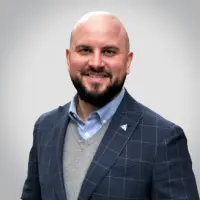
Paul Noble, As Founder and Chief Strategy Officer of Verusen, an innovator in supply chain data, inventory and procurement technology, Paul Noble oversees the company’s vision and strategic direction. He has extensive experience in the industrial supply chain and distribution space, as he was recognized as a Supply Chain Pros to Know by Supply and Demand Chain Executive in 2020, 2021 & 2022. Prior to founding Verusen, Noble spent over a decade with The Sherwin-Williams Company, where he specialized in supply chain/manufacturing and led its Eastern U.S. Industrial Distribution business unit. Noble graduated cum laude with a bachelor’s degree in Management and Marketing from Lincoln Memorial University in Harrogate, Tennessee. Connect with Paul on LinkedIn.
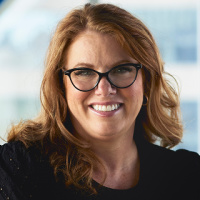
Christine Barnhart is the Chief Marketing and Industry Officer for Nulogy. In her role, Christine leverages her thought leadership and domain expertise to play a pivotal role in the way Nulogy speaks to the market and delivers customer value. Her extensive experience as a supply chain expert and seasoned software executive makes her uniquely positioned to incorporate sales, product, and customer success in the way marketing approaches its go-to-market, demand generation, and brand-building efforts. Under Christine’s guidance, Nulogy continues to shape and educate the market around the emerging space of Multi-Enterprise Collaboration. Christine’s previous roles include Vice President, Product Strategy and Go-To-Market at Verusen as well as Senior Director of Product and Industry Market Strategy for Infor. Christine holds a BSEE from the University of Evansville and an MBA from the University of Louisville. She is also an APICS-certified professional in Inventory and Production Management. Connect with Christine on LinkedIn.
